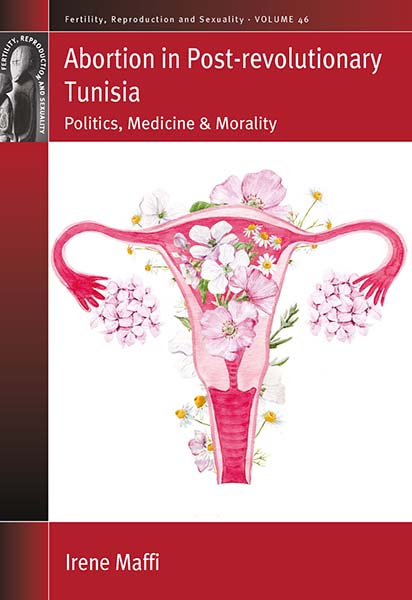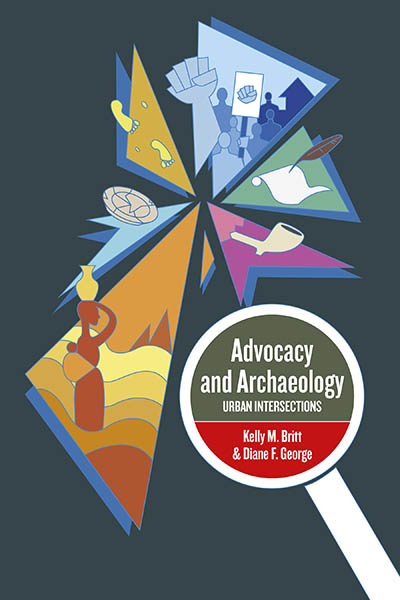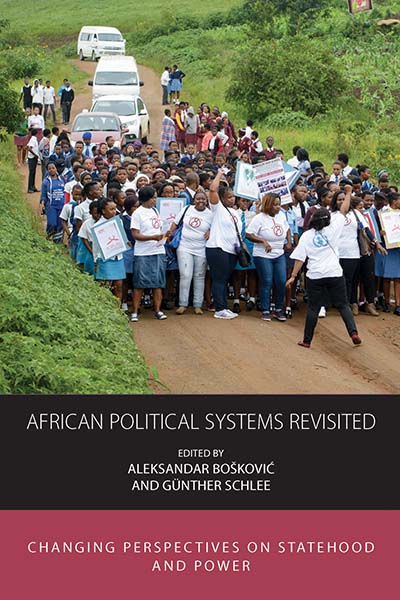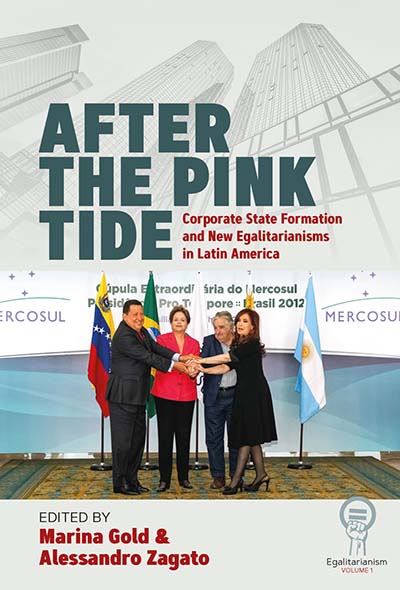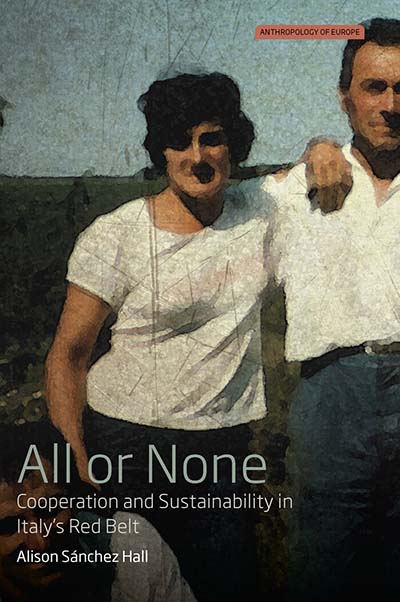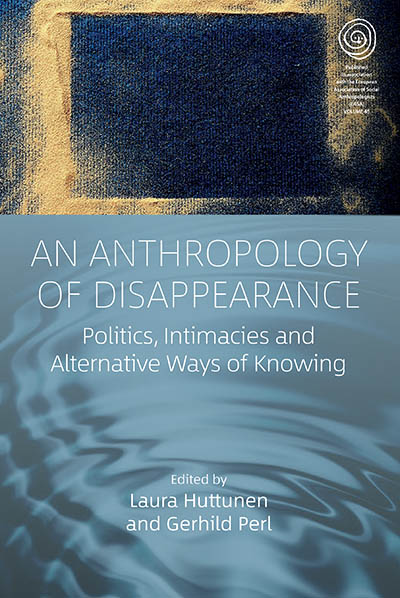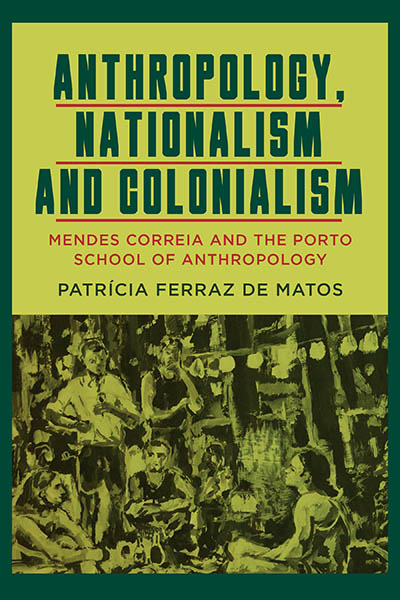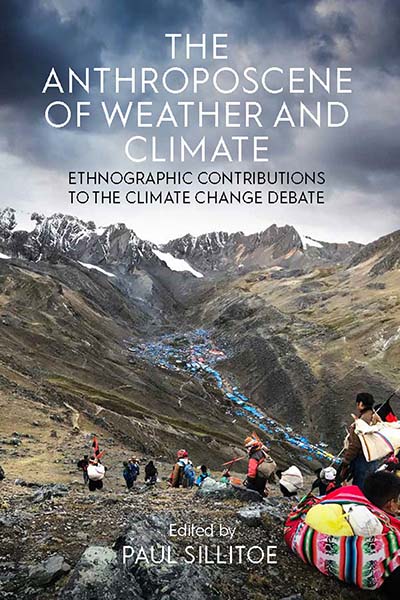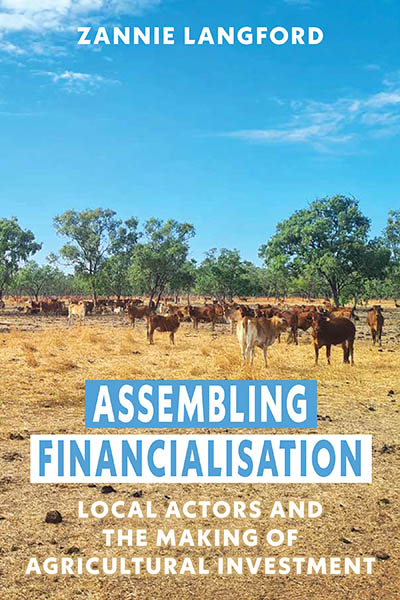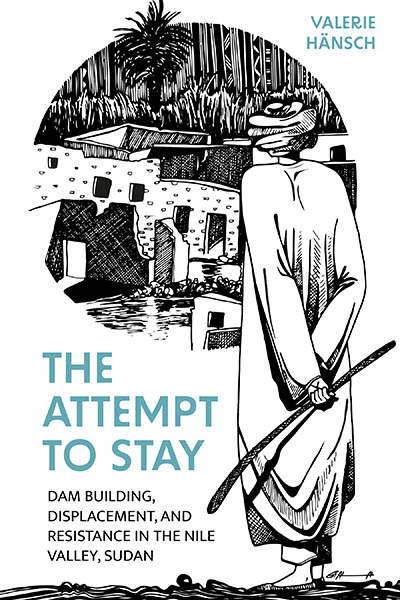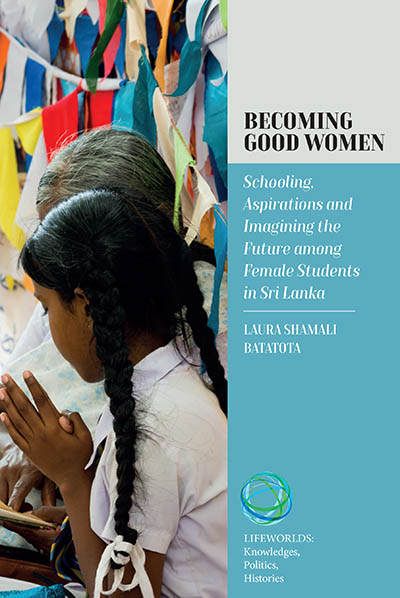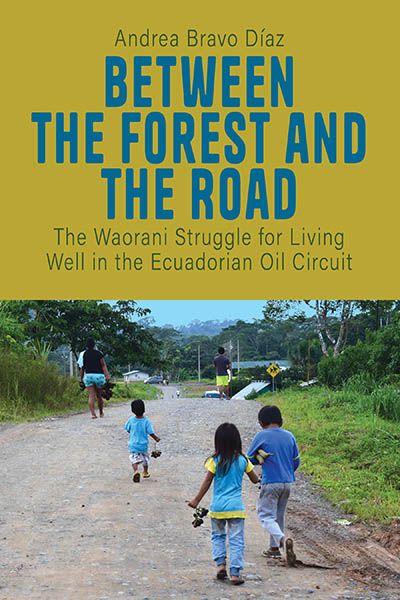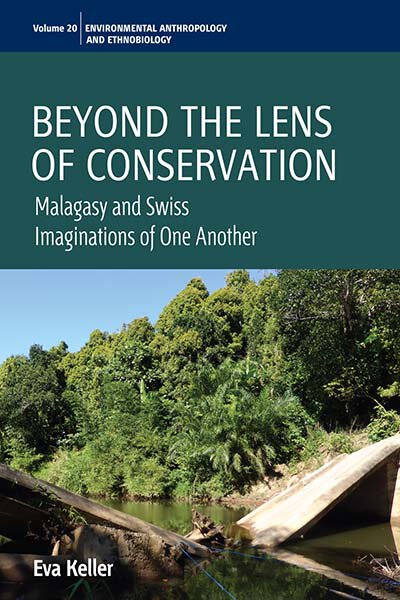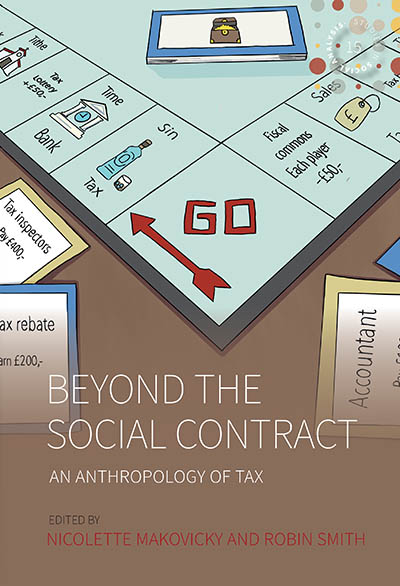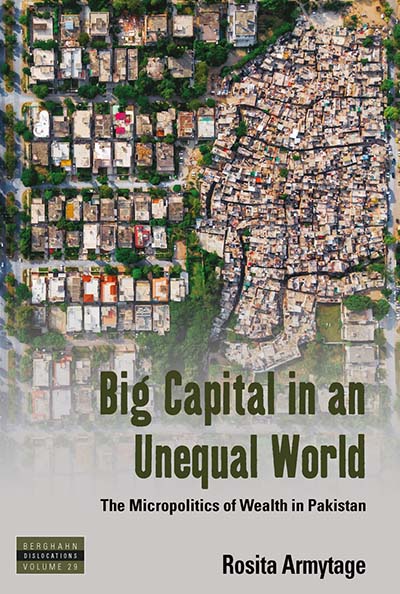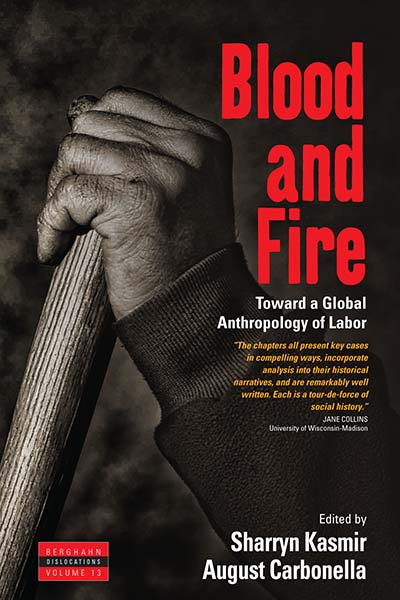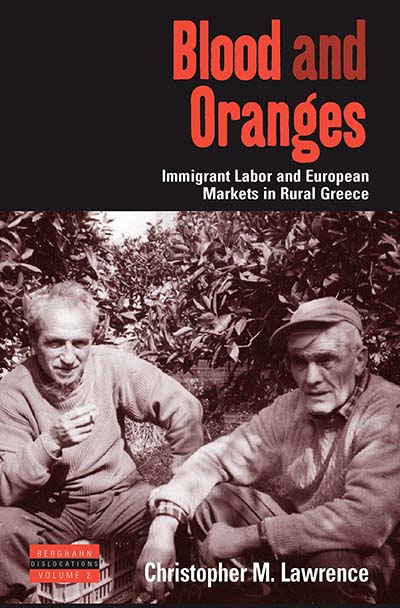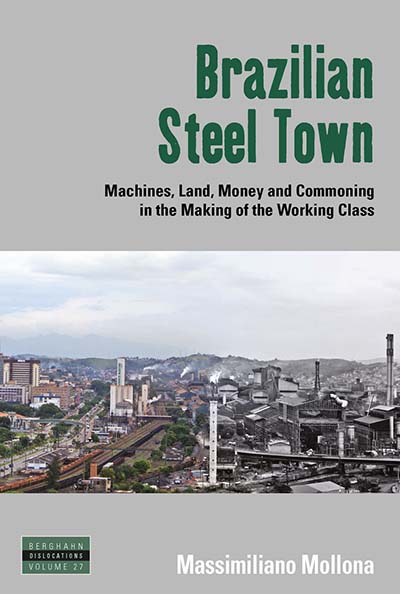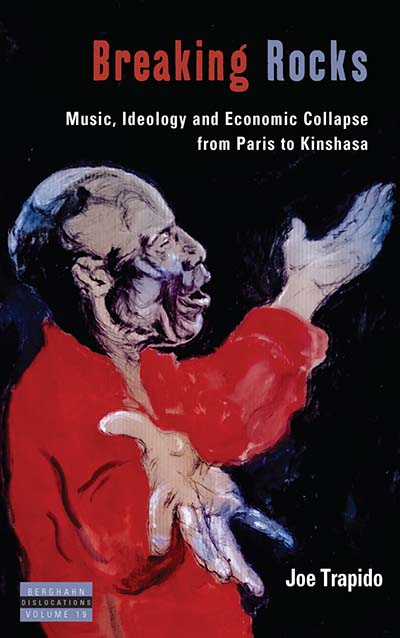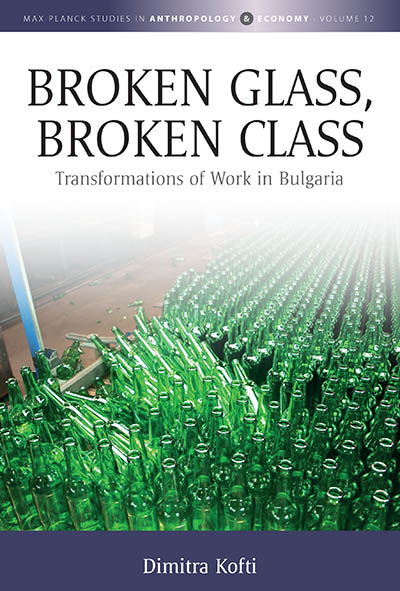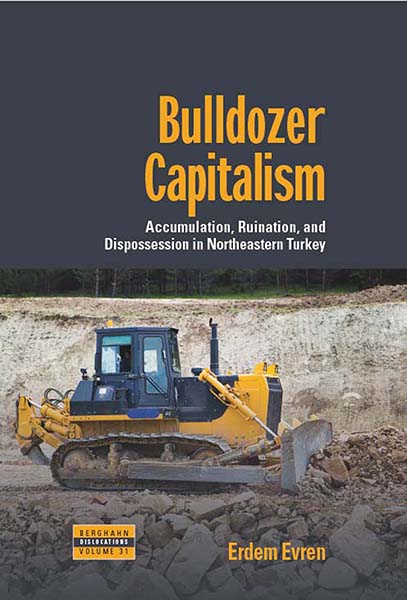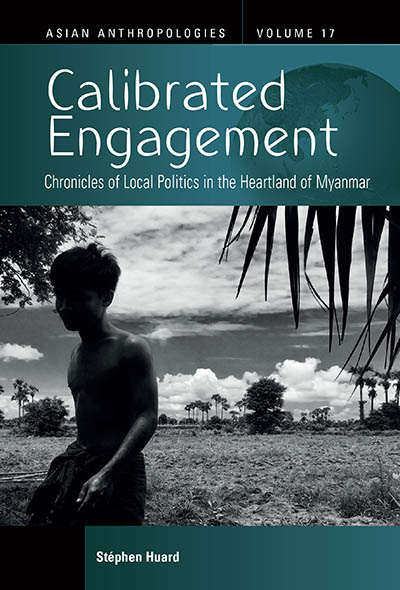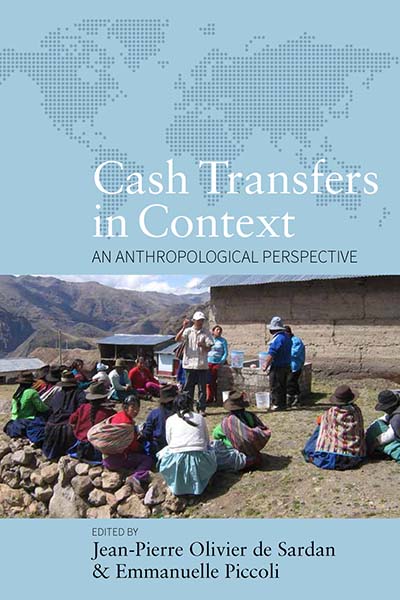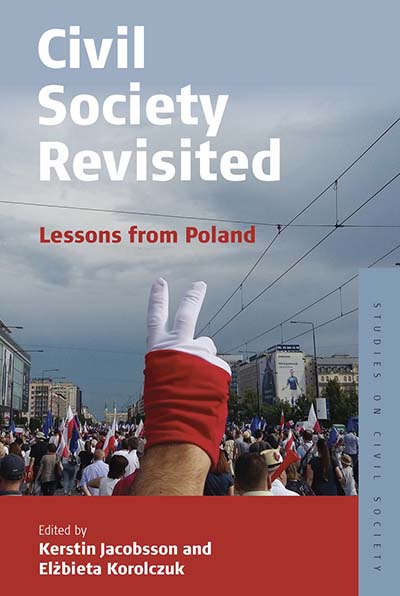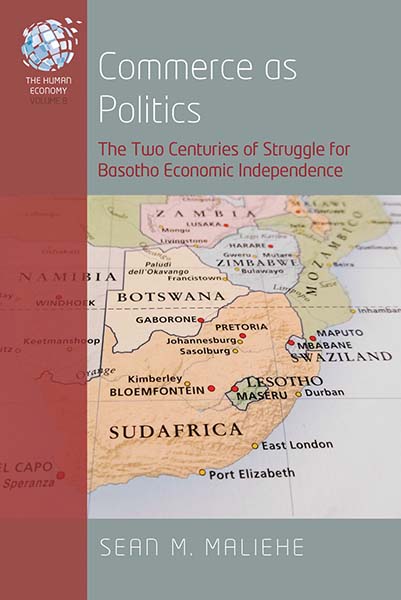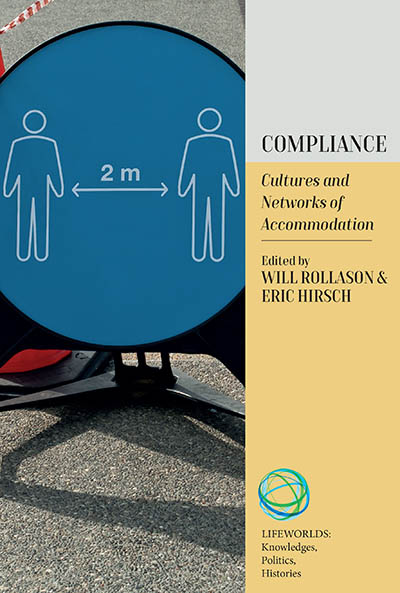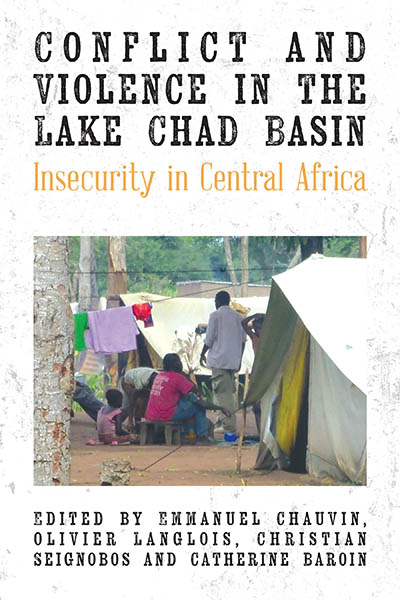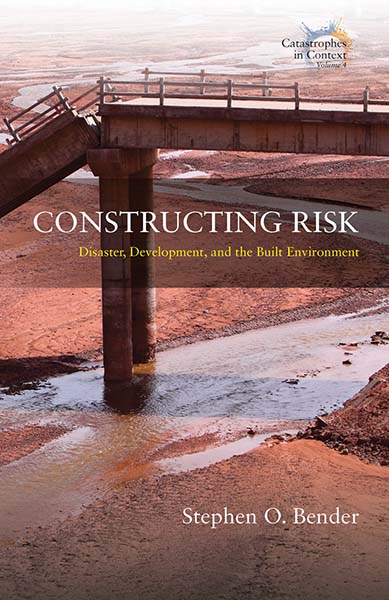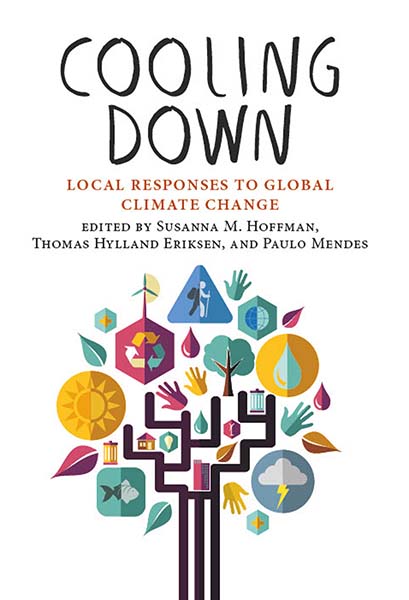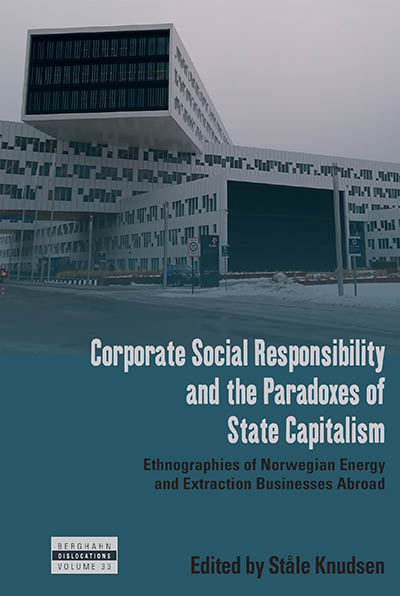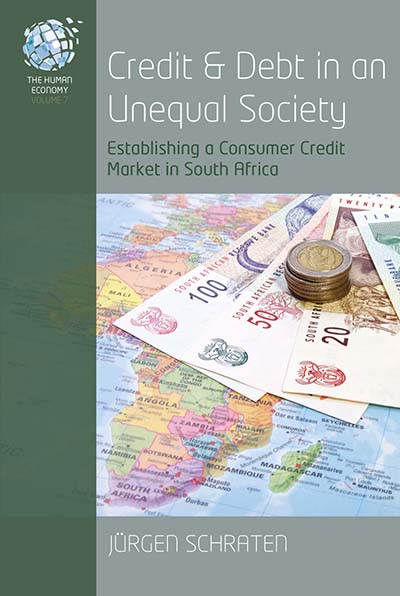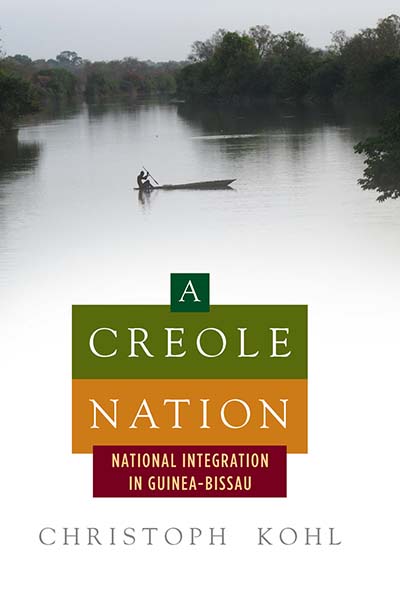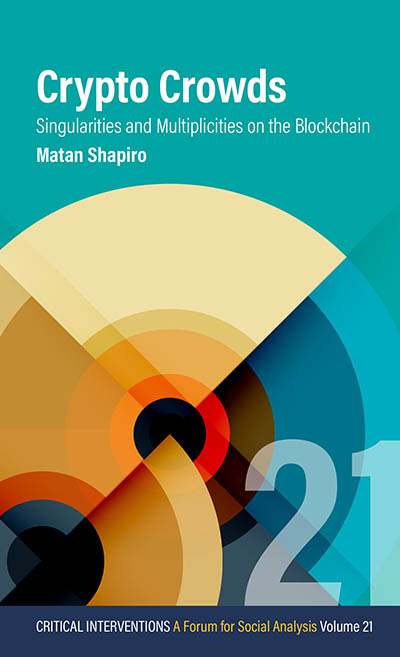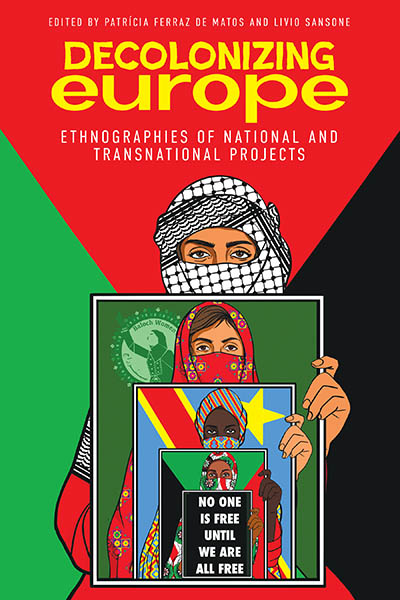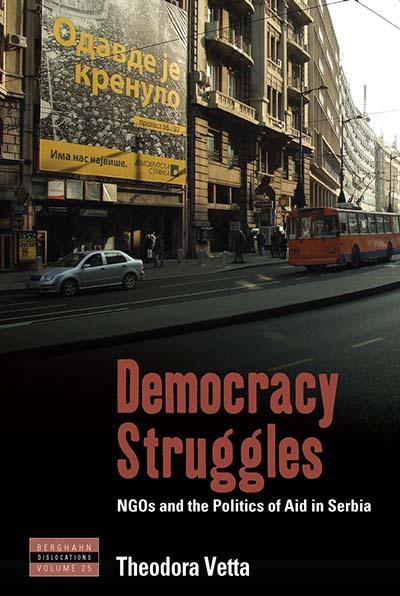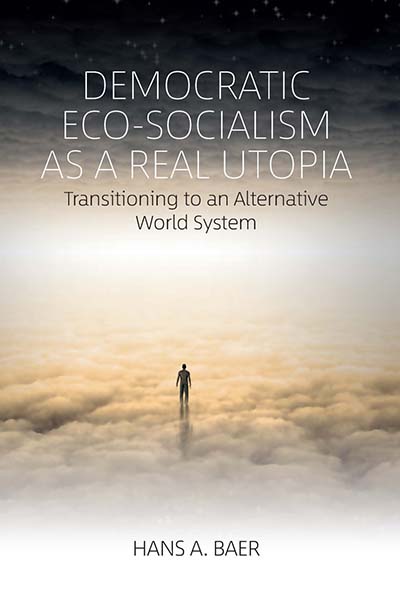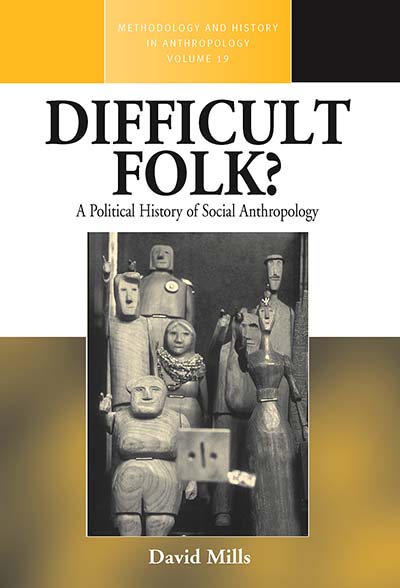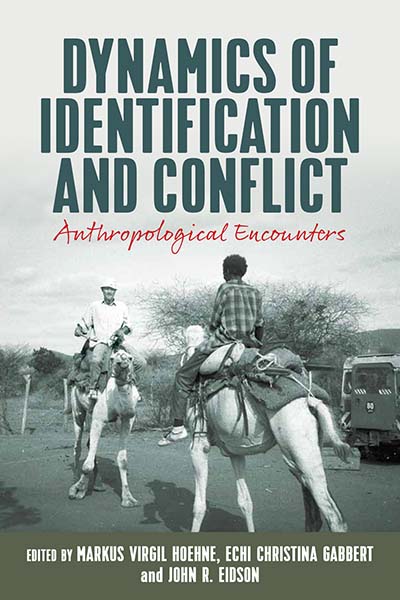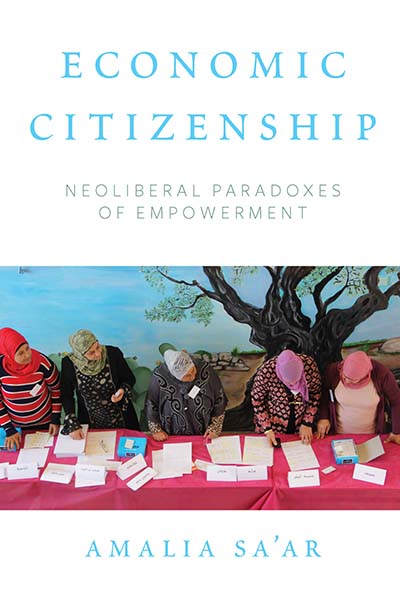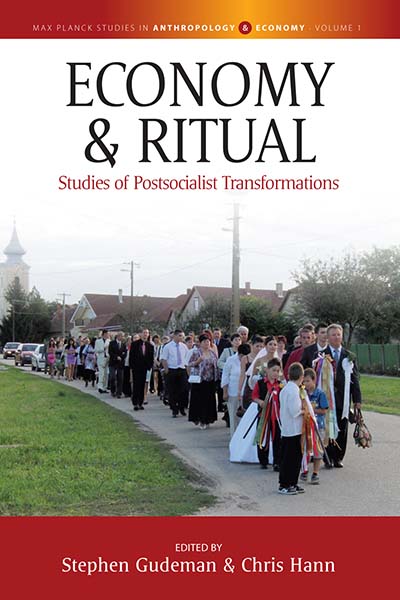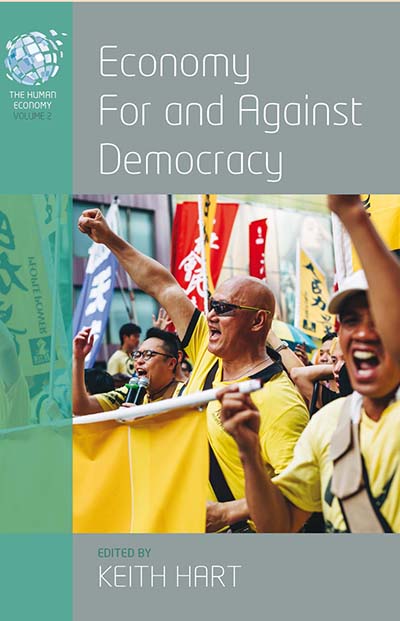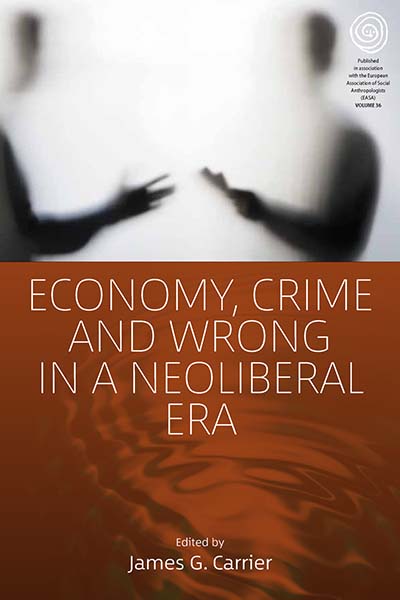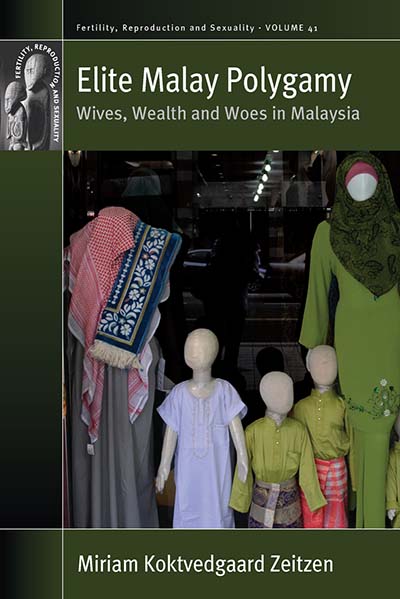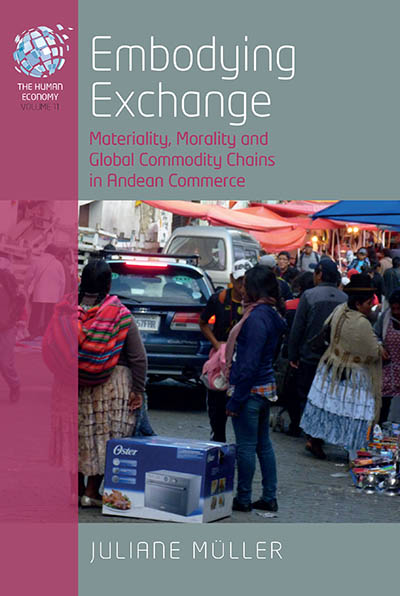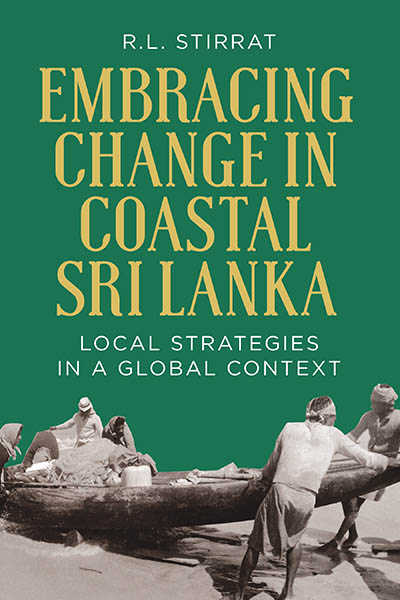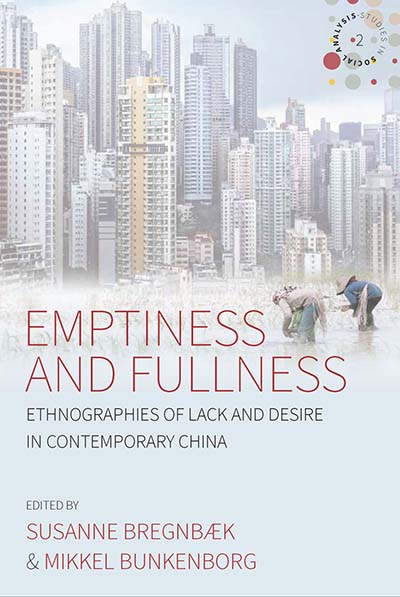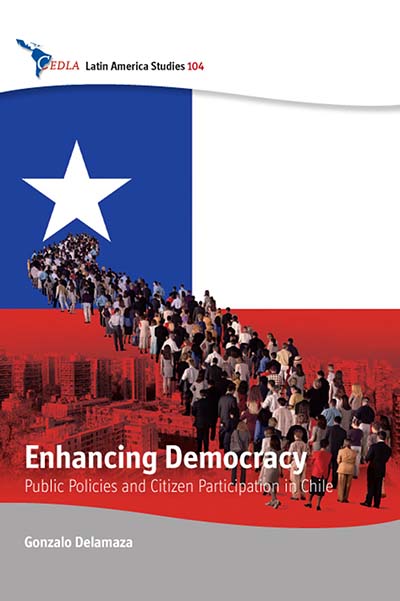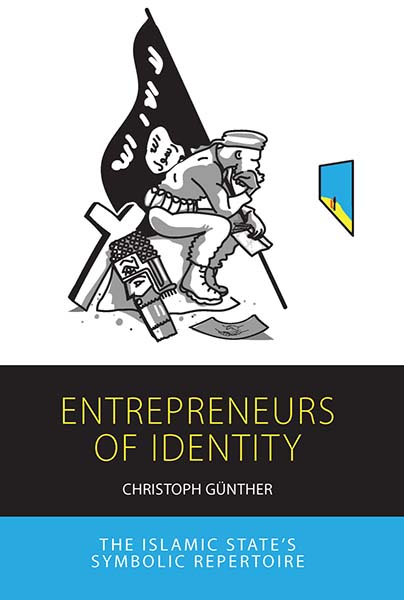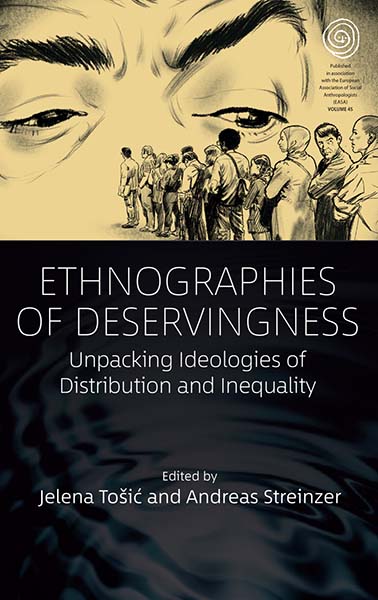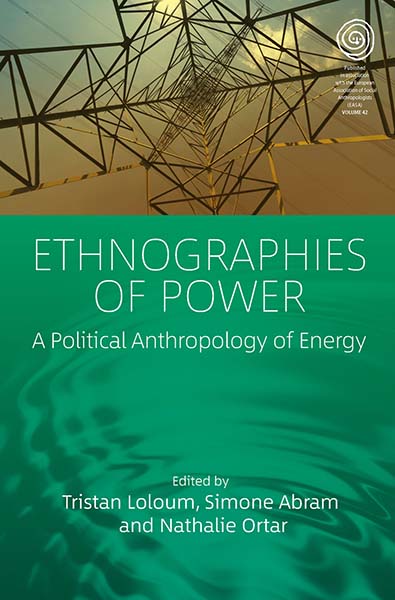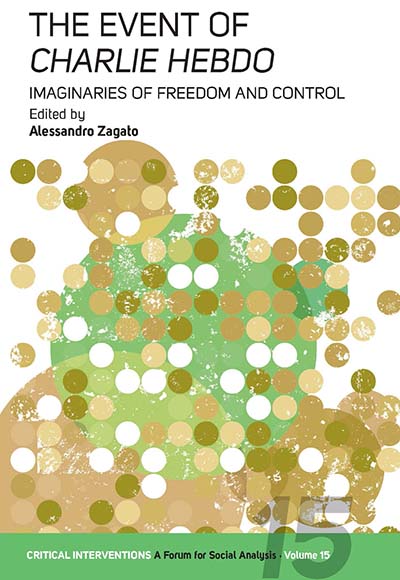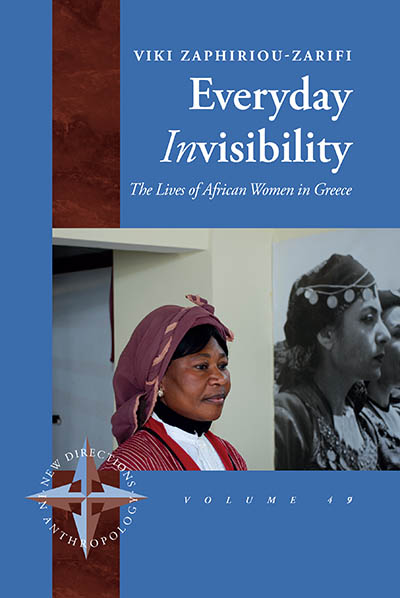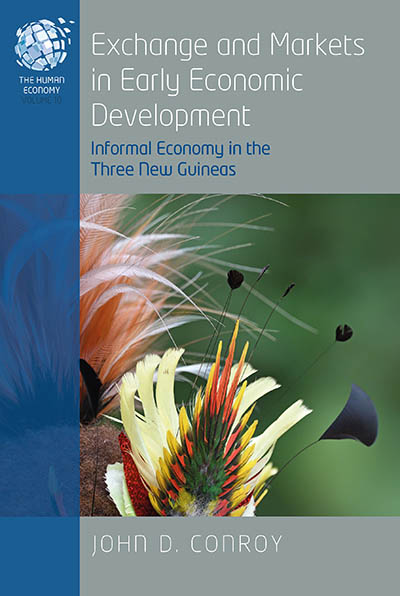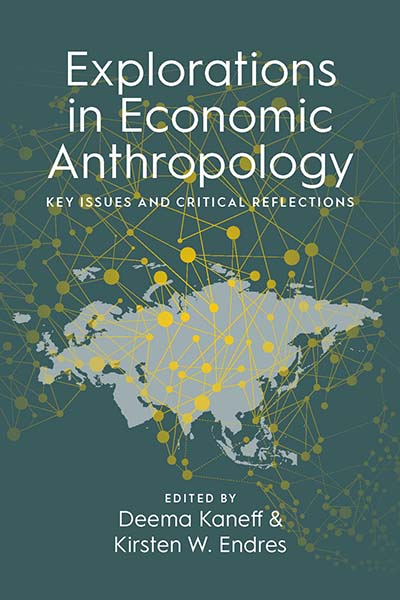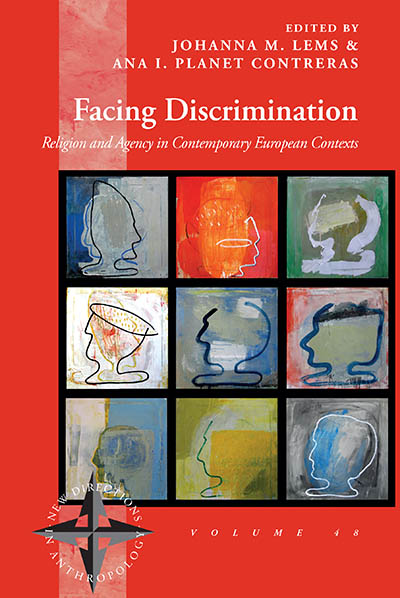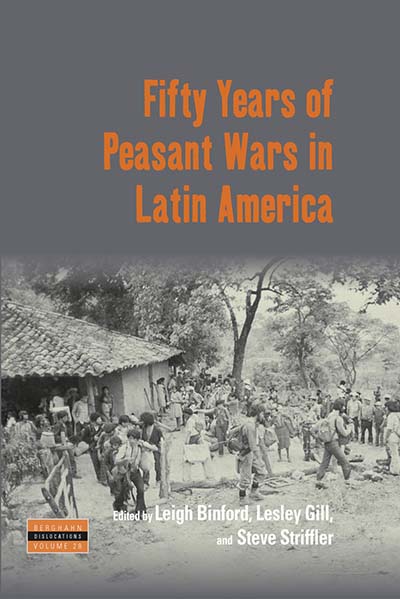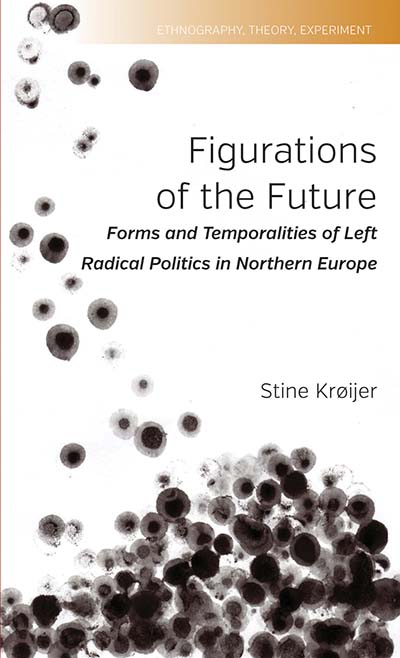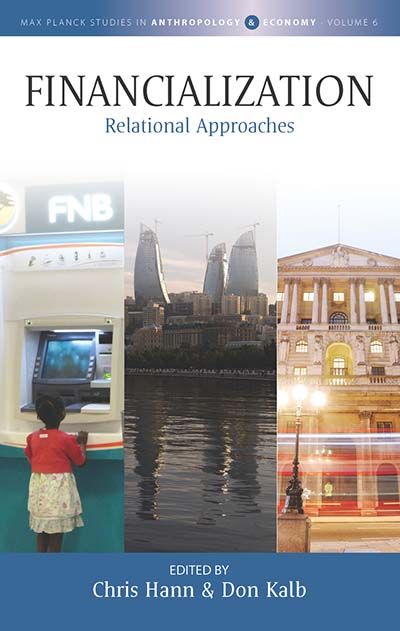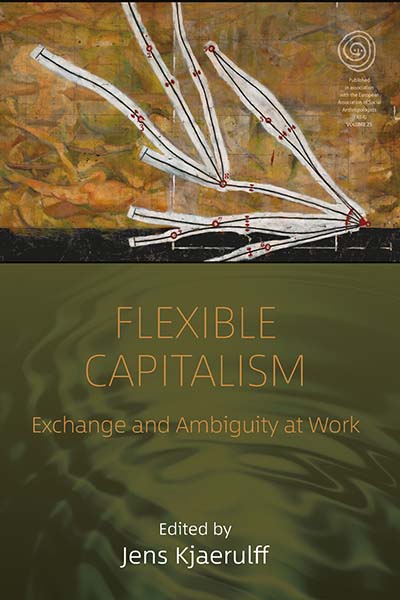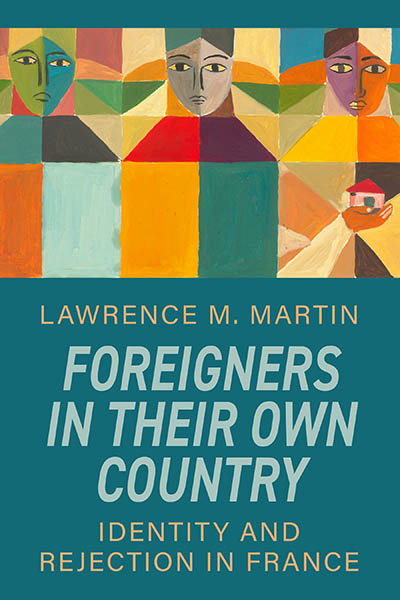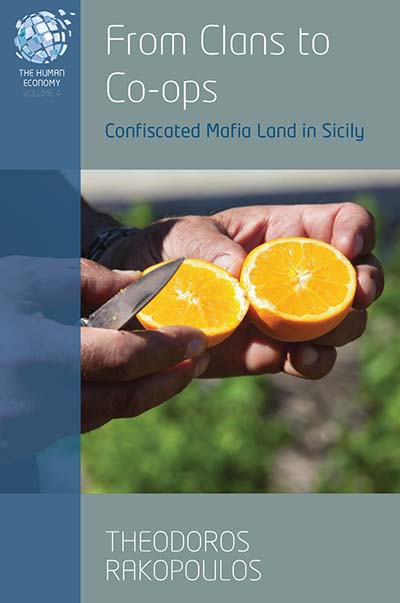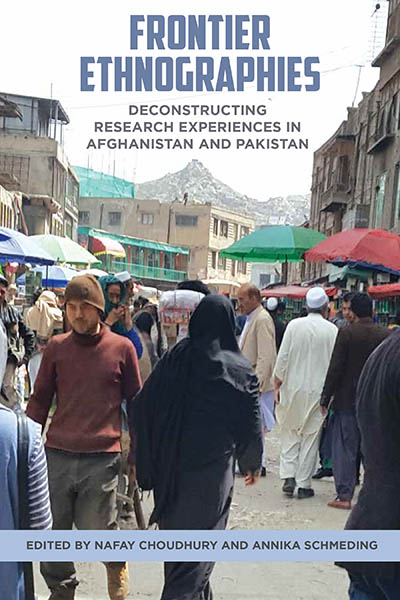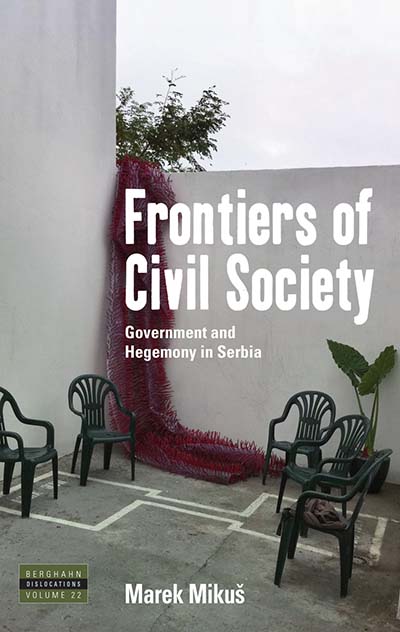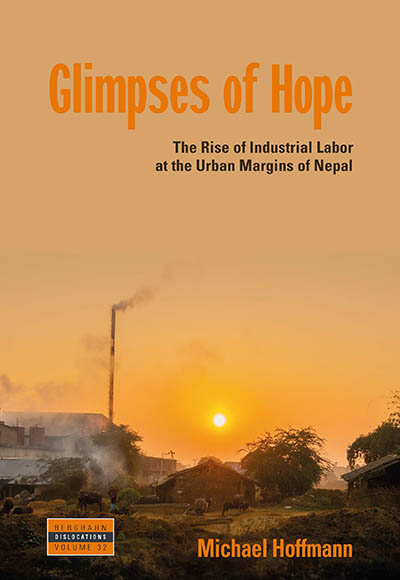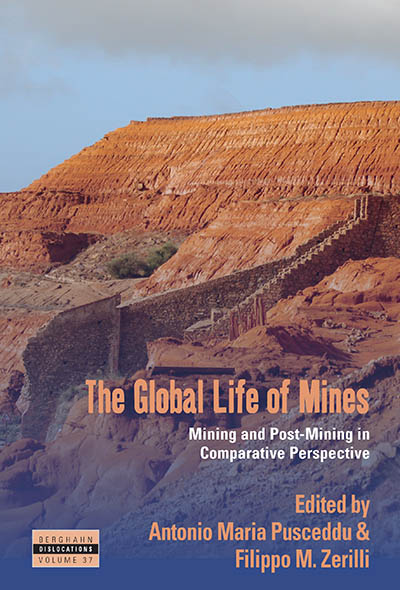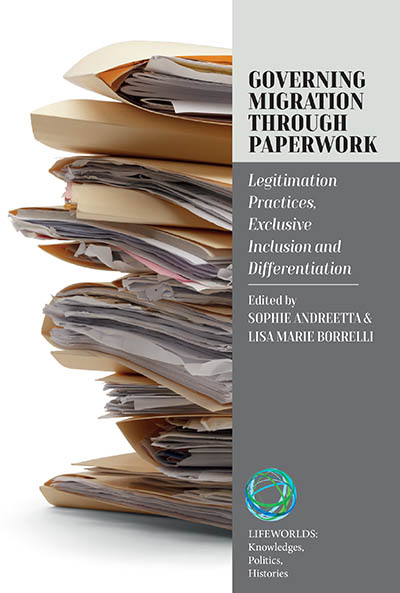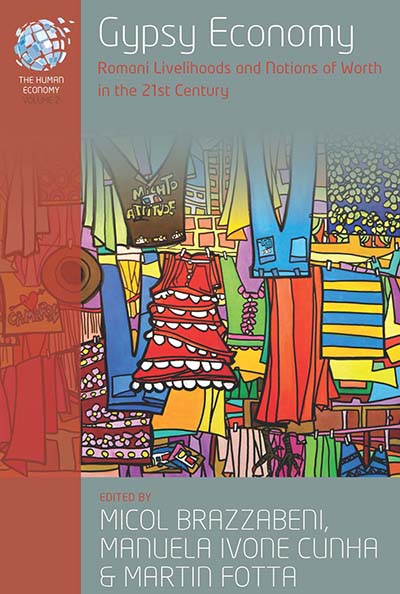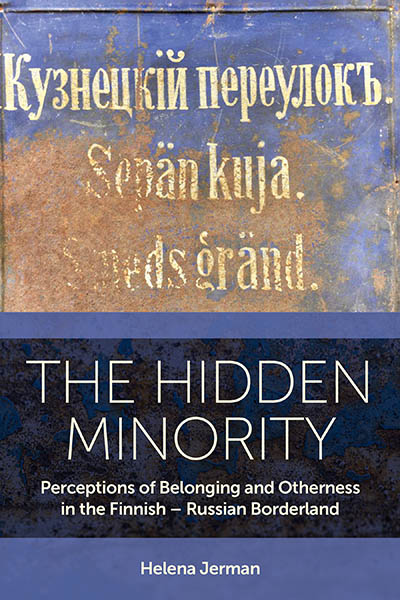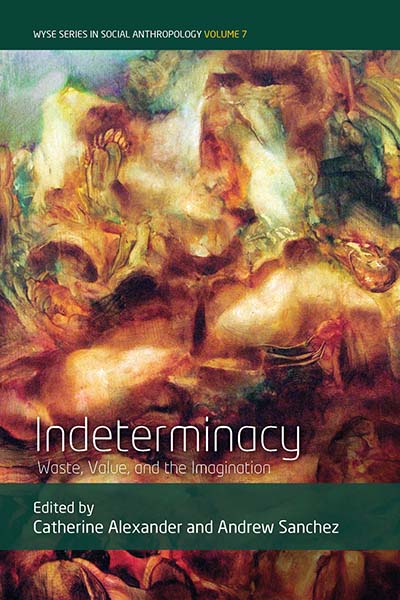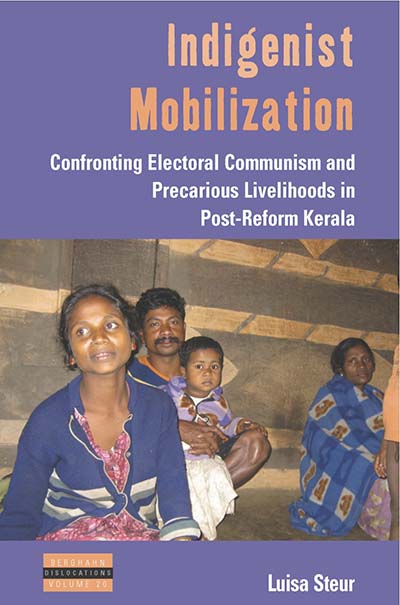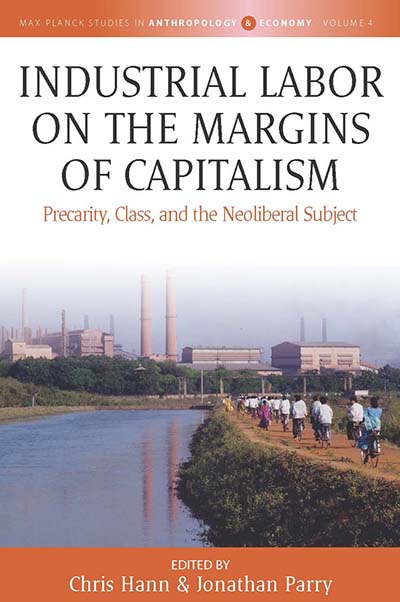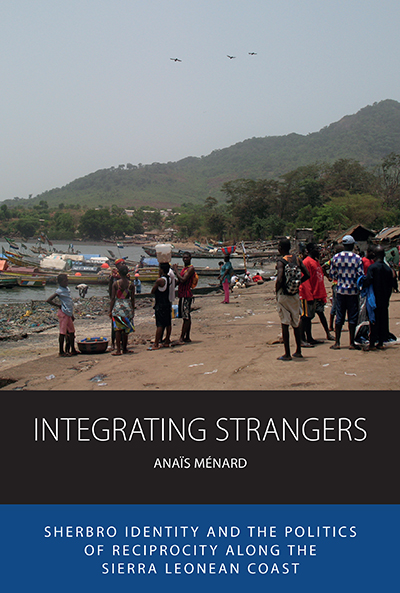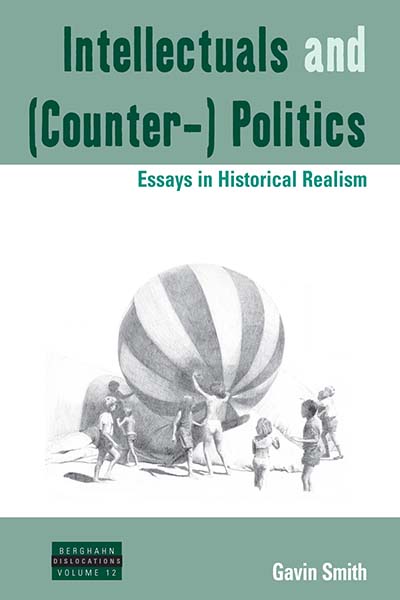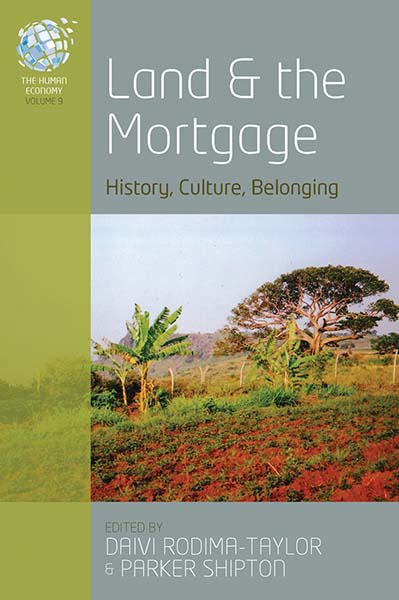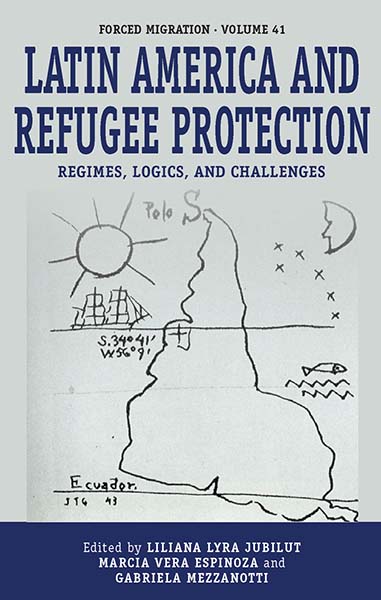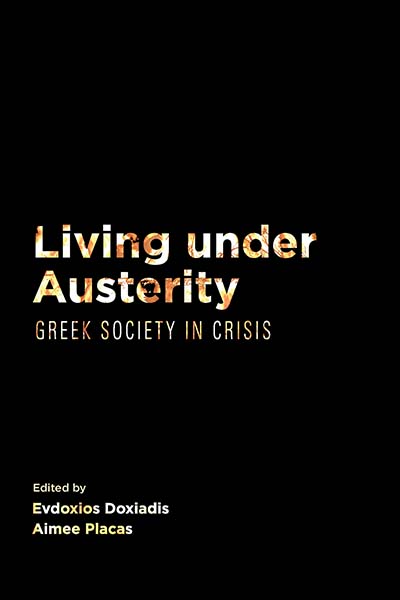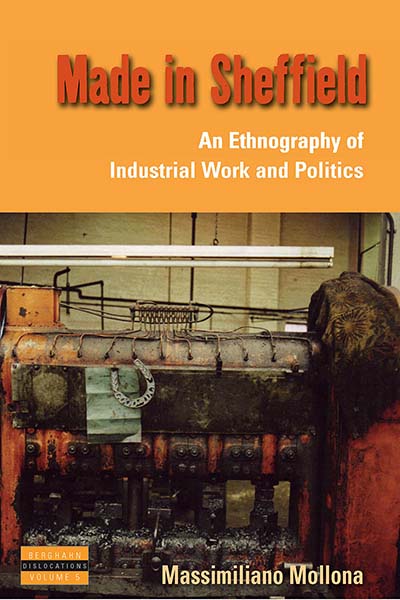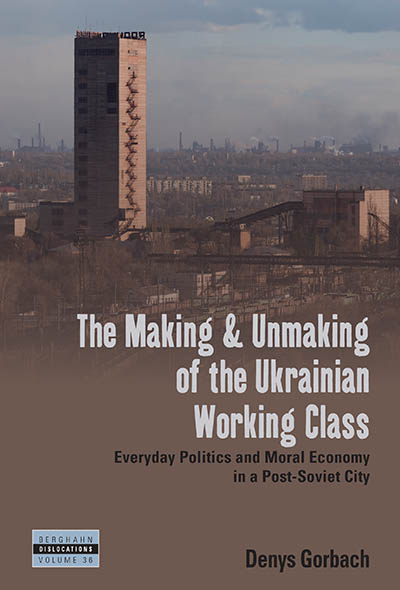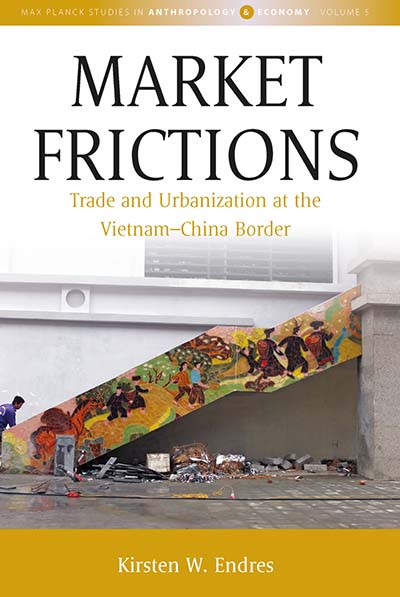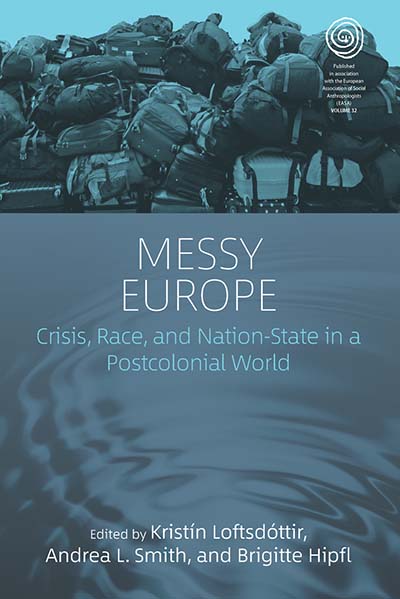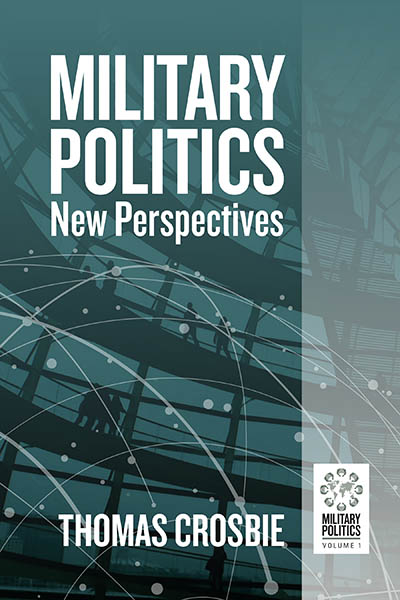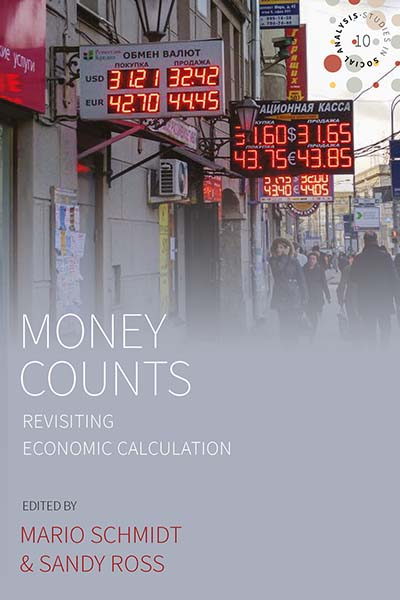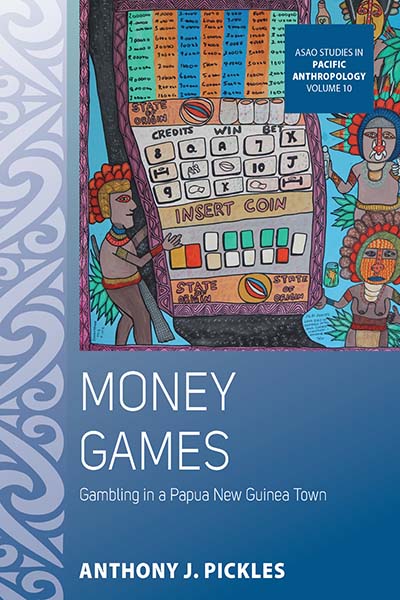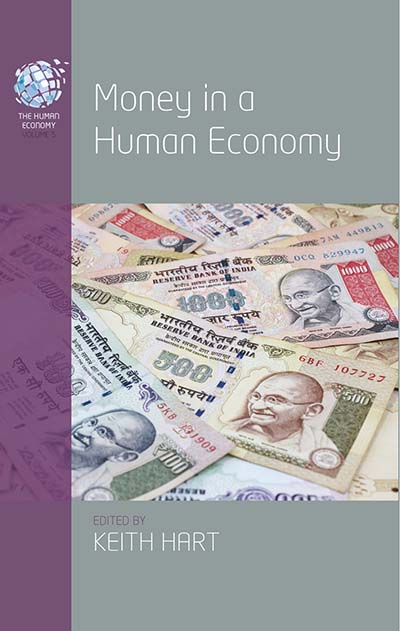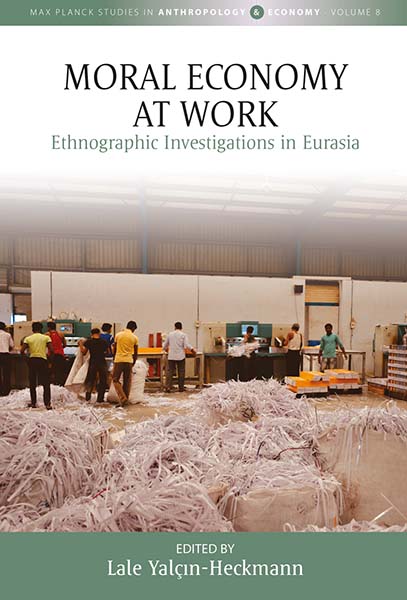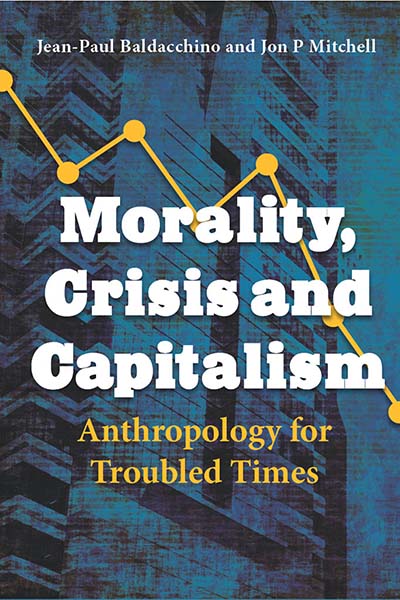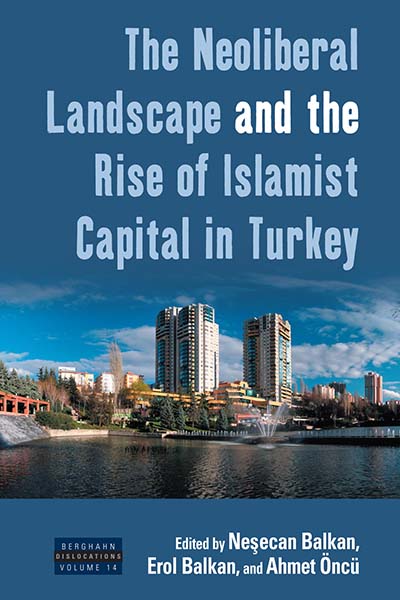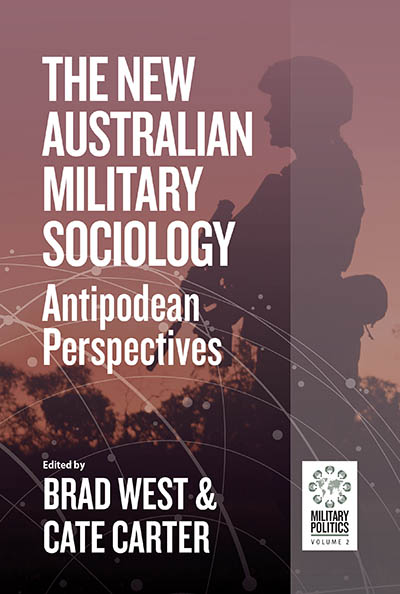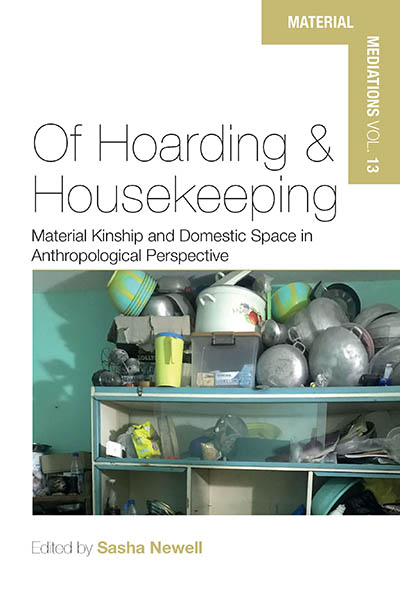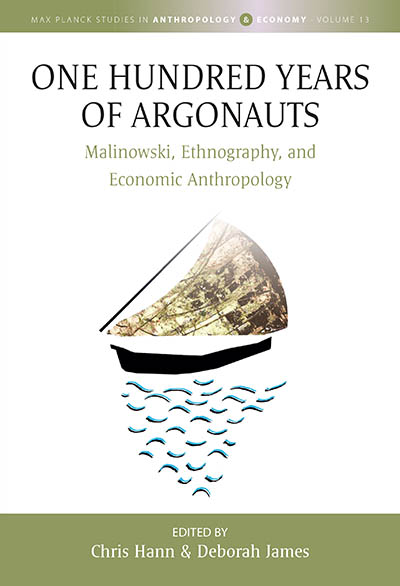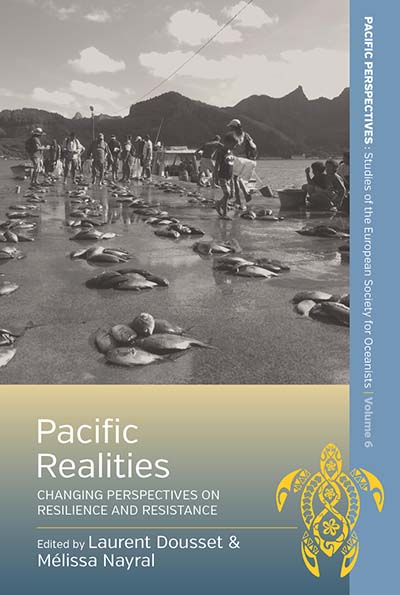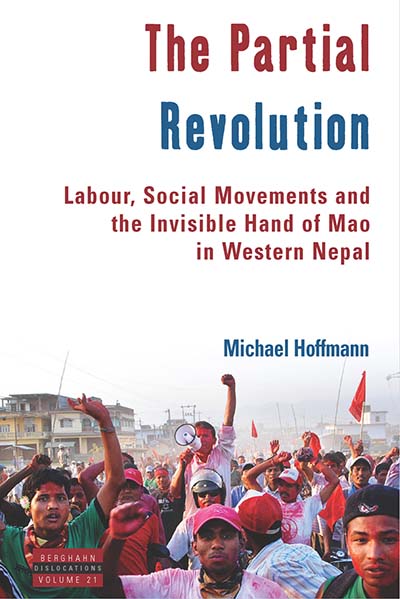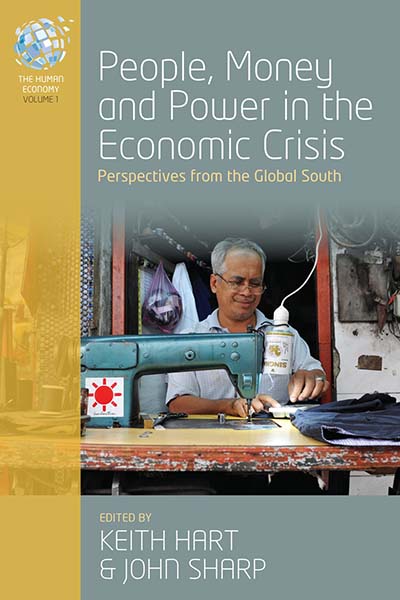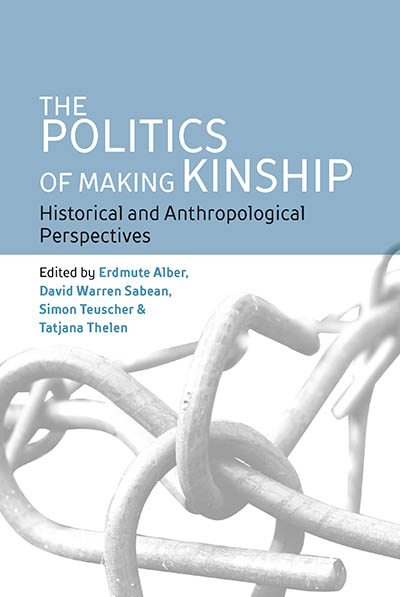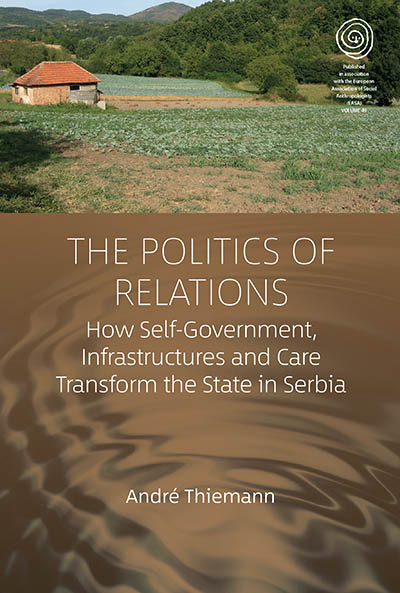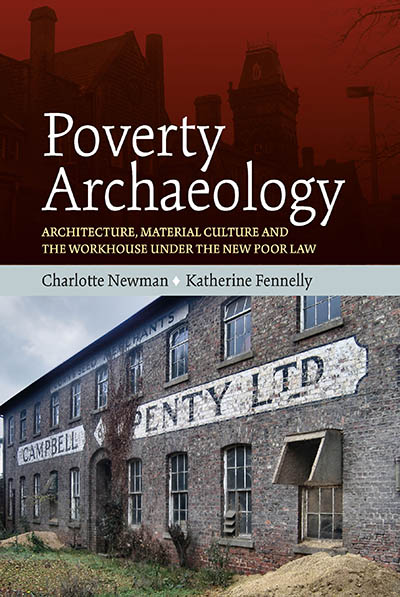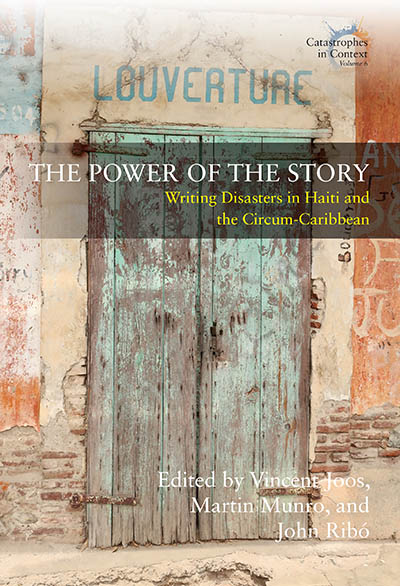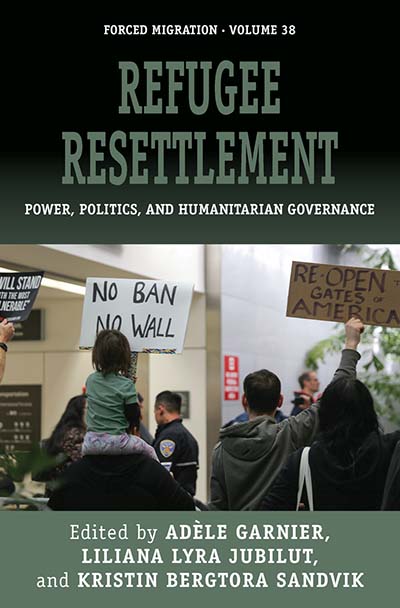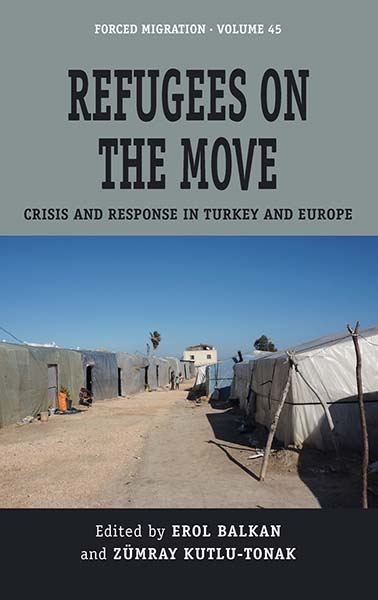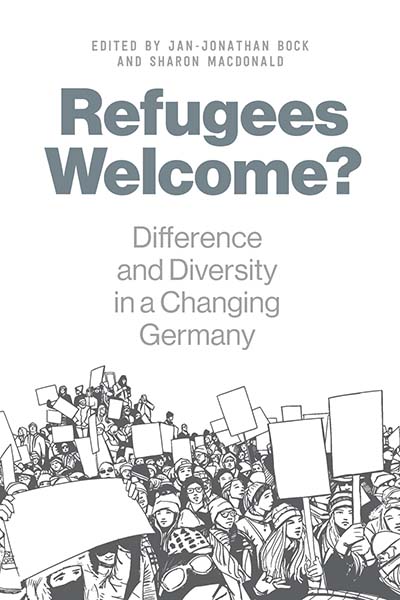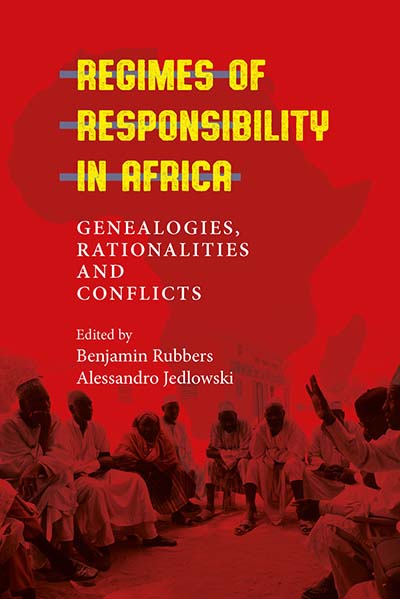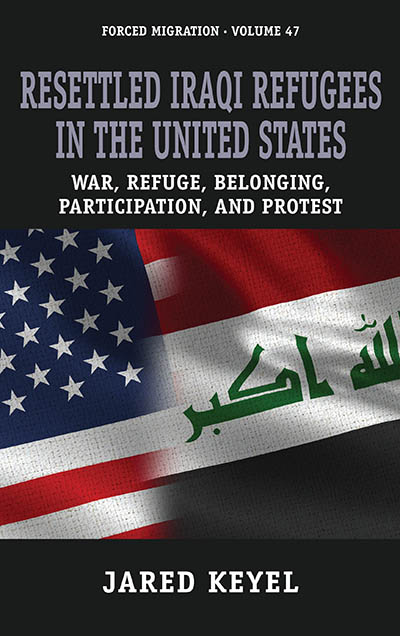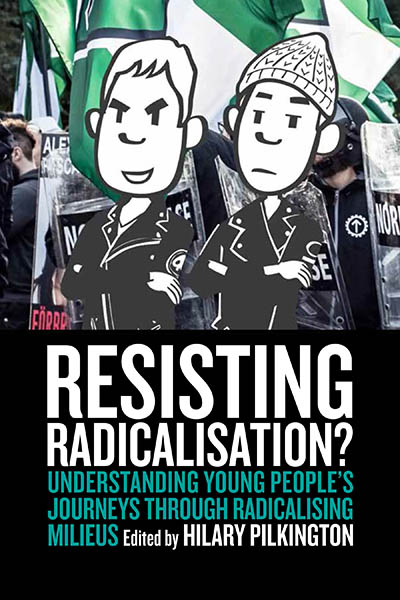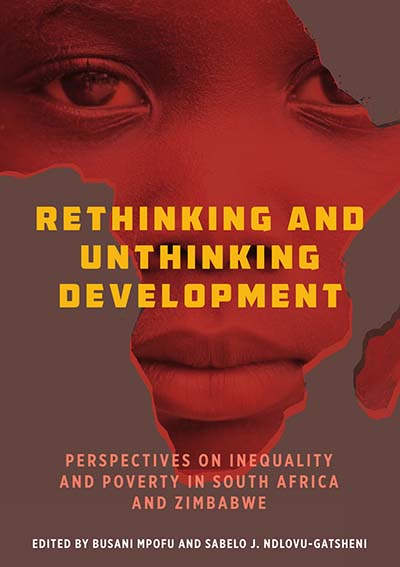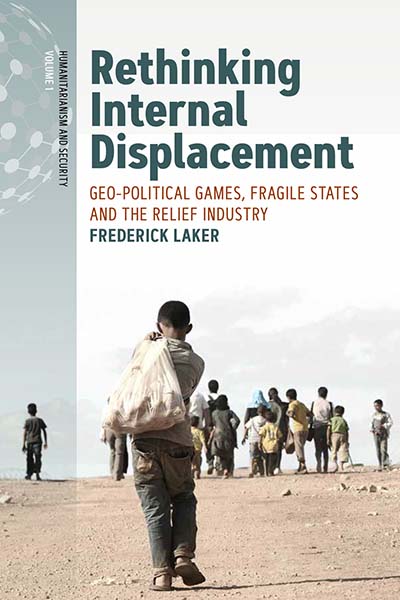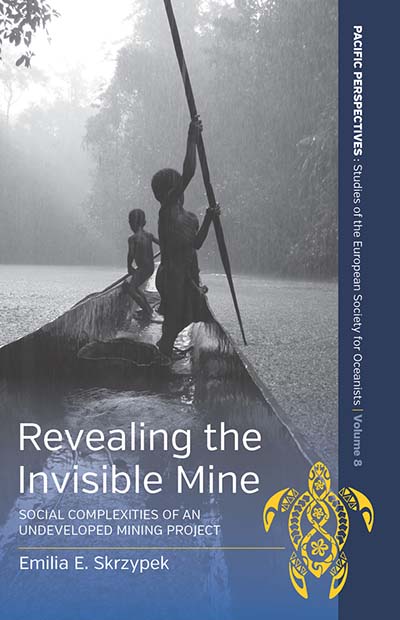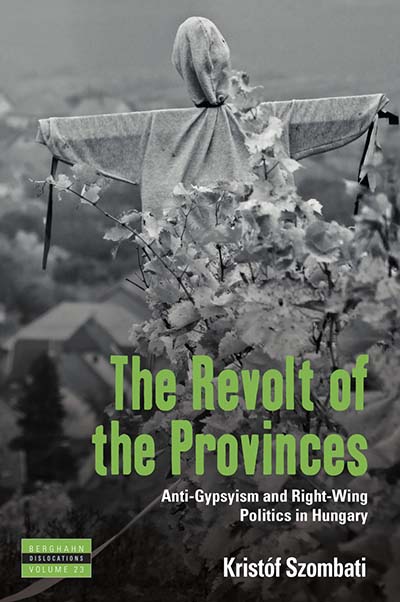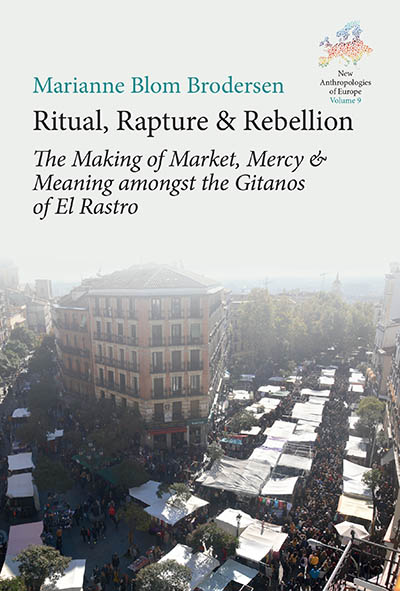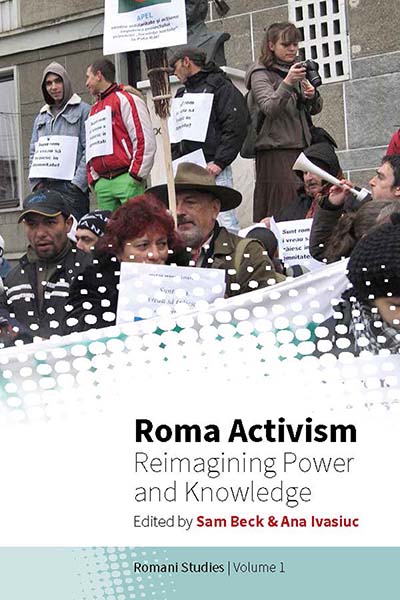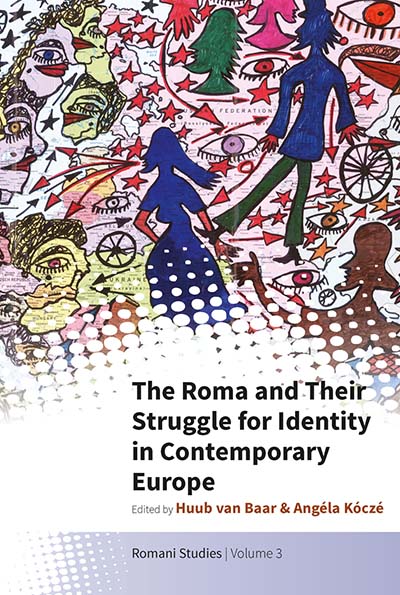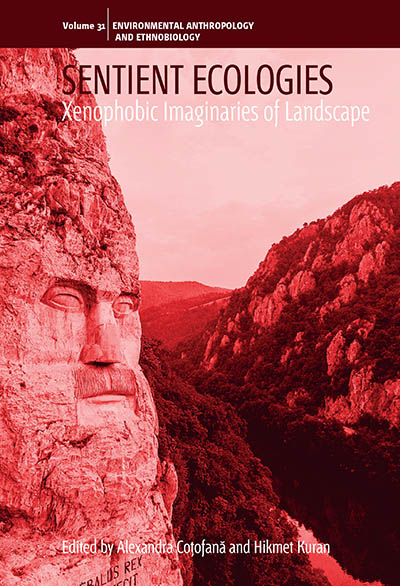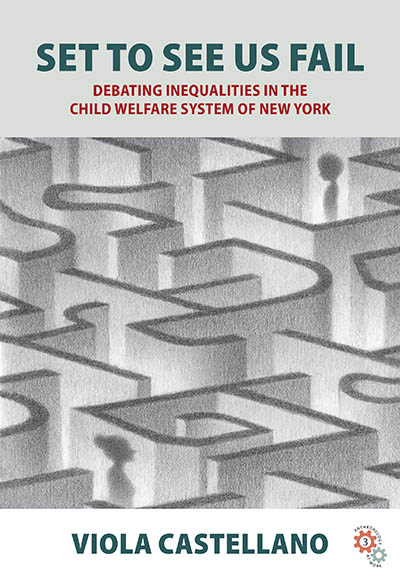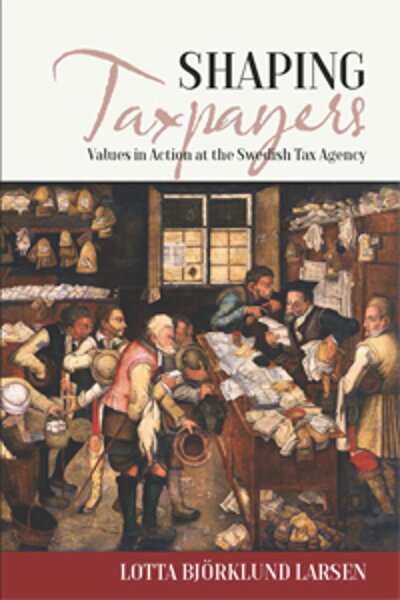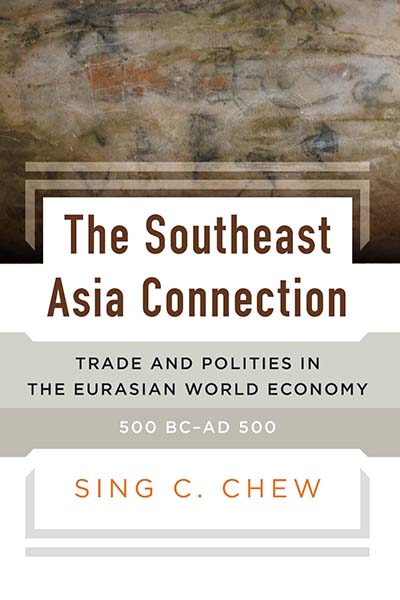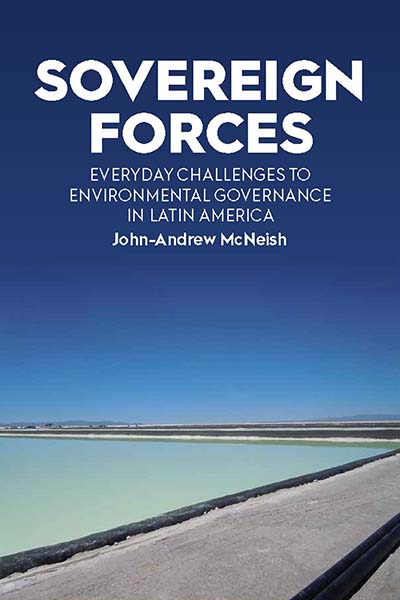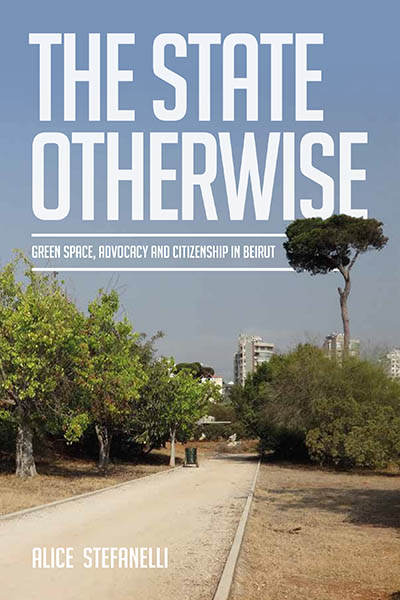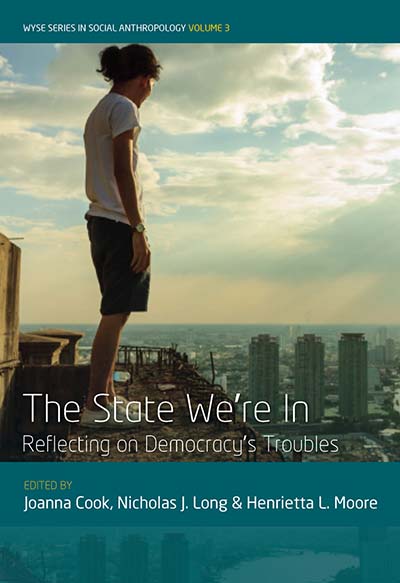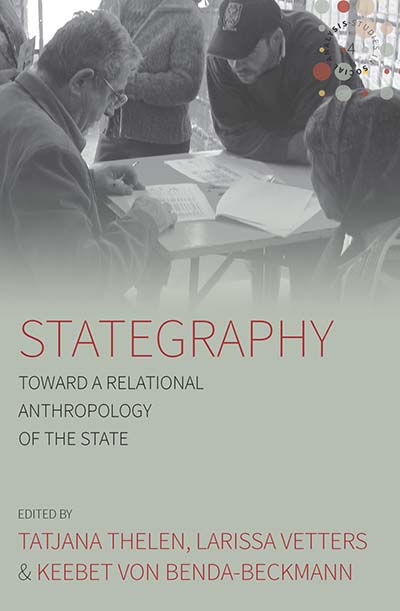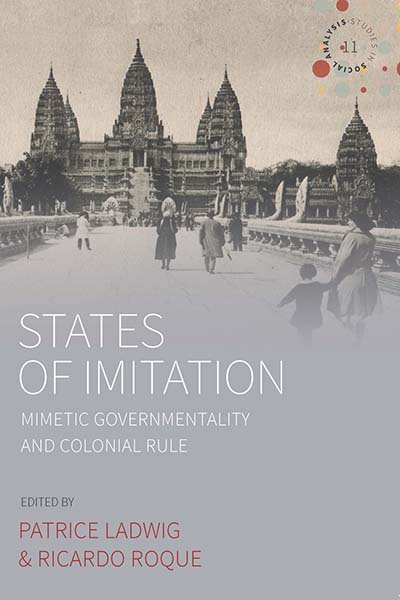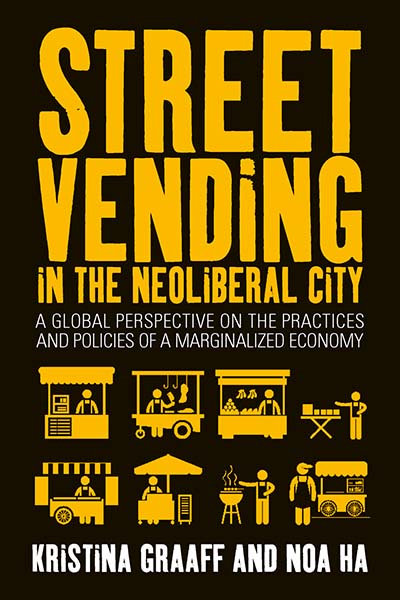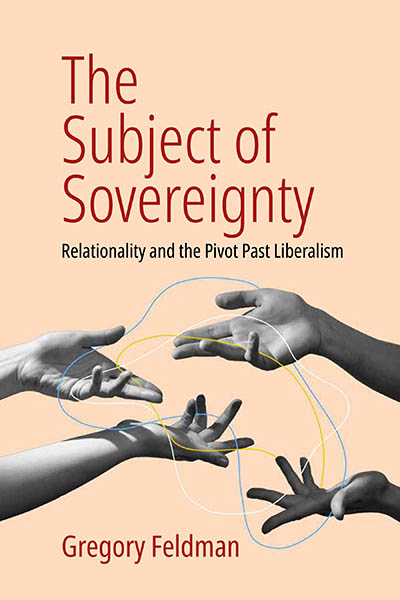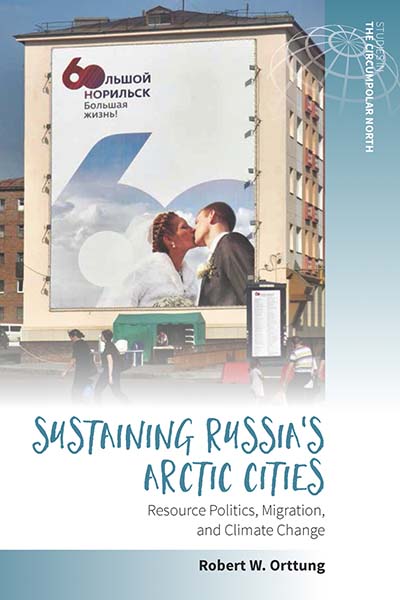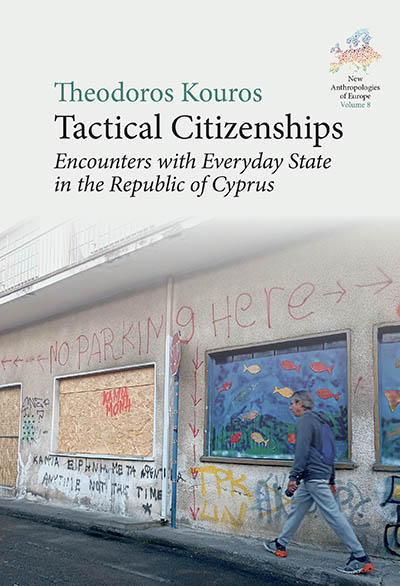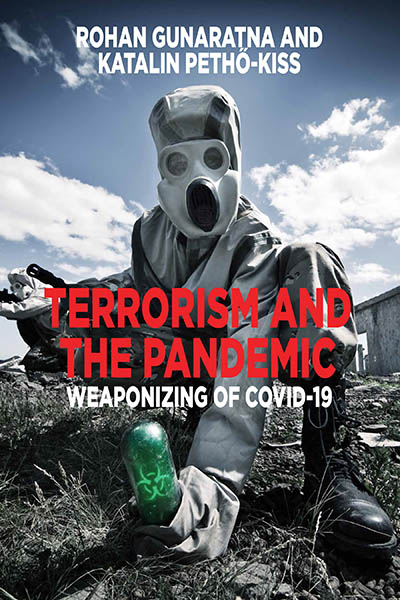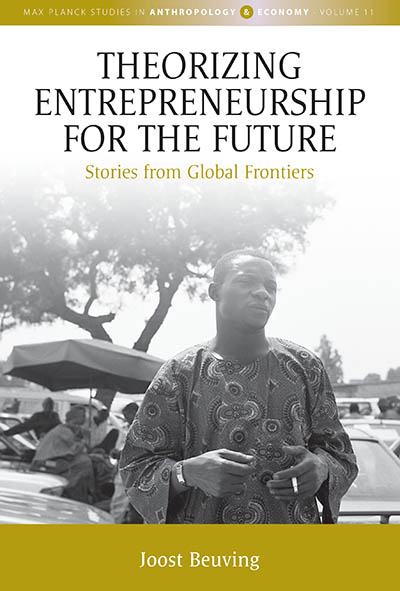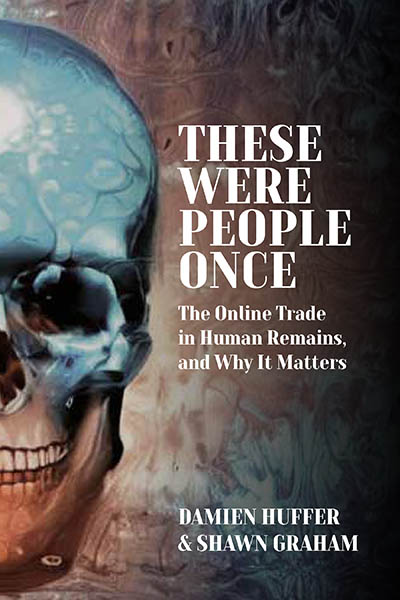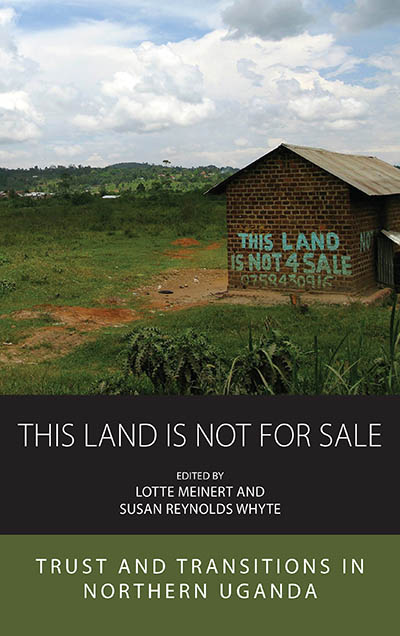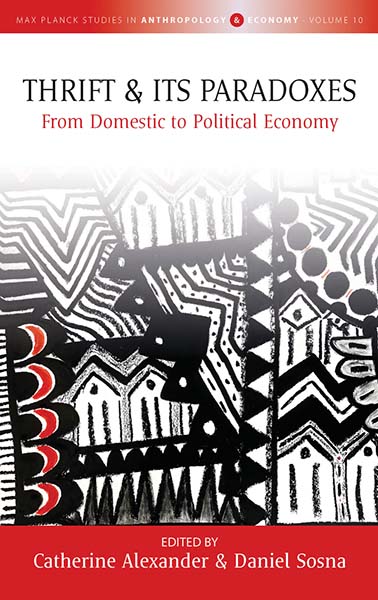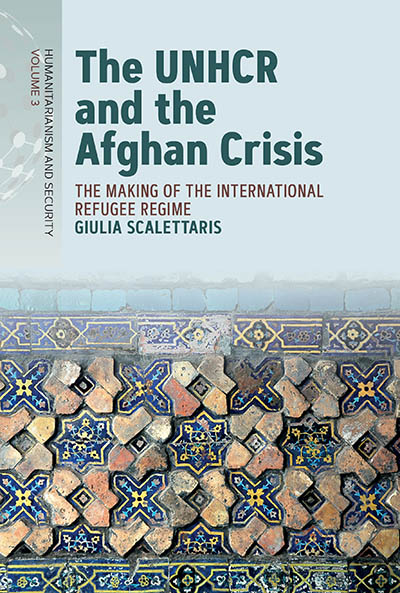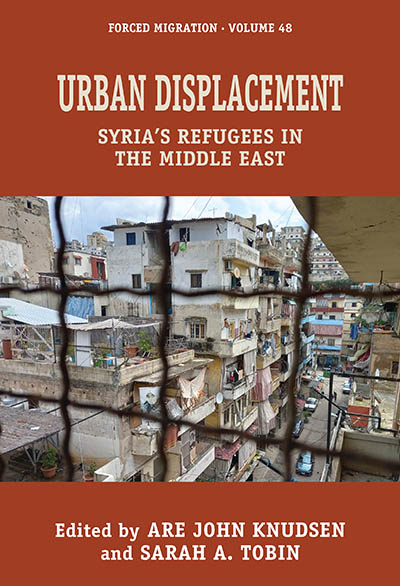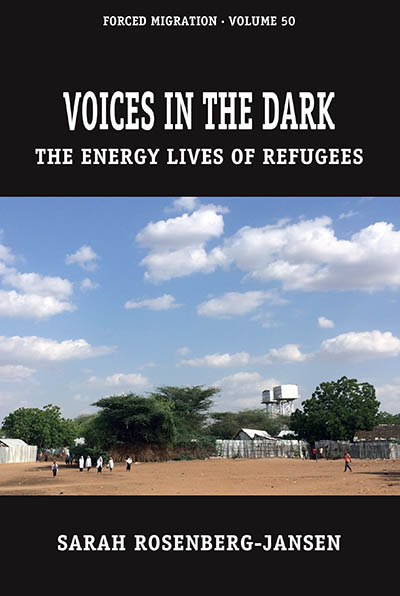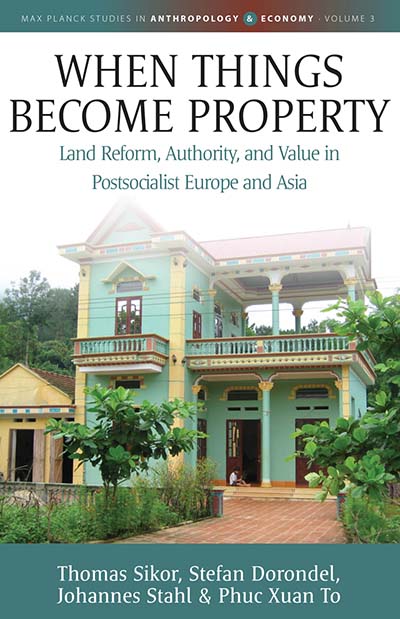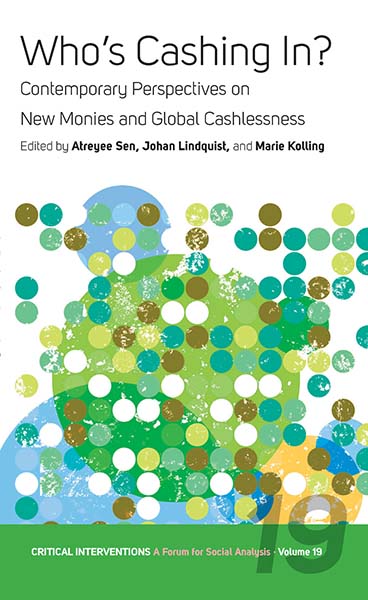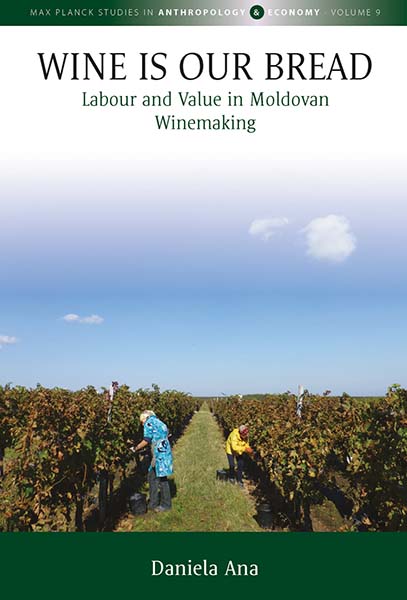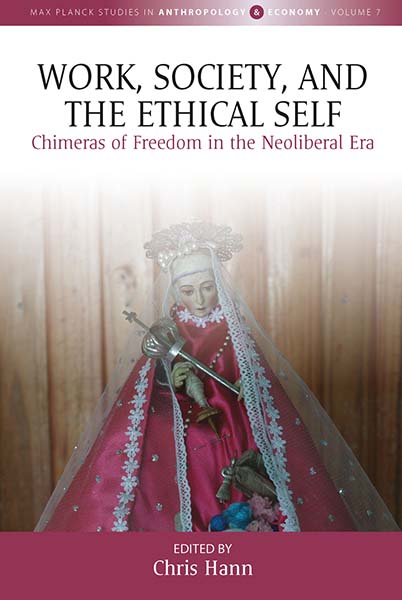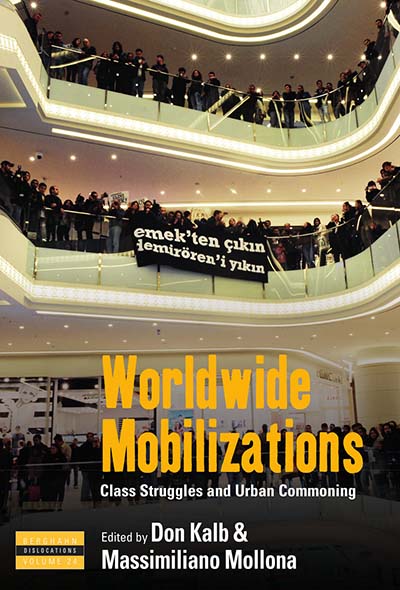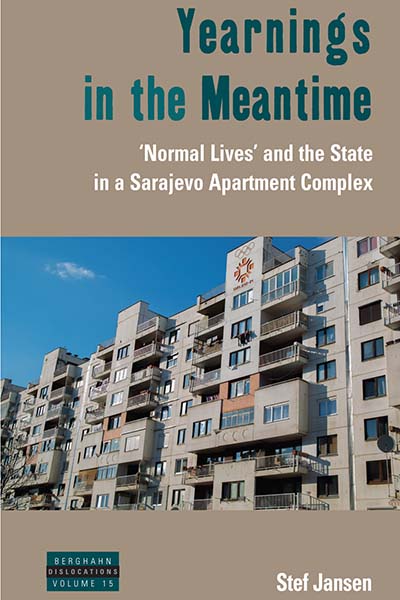Home -> Browse
-

Abortion in Post-revolutionary Tunisia
Politics, Medicine and Morality
Maffi, I.
After the revolution of 2011, the electoral victory of the Islamist party ‘Ennahdha’ allowed previously silenced religious and conservative ideas about women’s right to abortion to be expressed. This also allowed healthcare providers in the public sector to refuse abortion and contraceptive care. This book explores the changes and continuity in the local discourses and practices related to the body, sexuality, reproduction and gender relationships. It also investigates how the bureaucratic apparatus of government healthcare facilities affects the complex moral world of clinicians and patients.
Subjects: Medical Anthropology Gender Studies and Sexuality Political and Economic Anthropology
Area: Africa
-

Advocacy and Archaeology
Urban Intersections
Britt, K. M. & George, D. F. (eds)
Archaeologists have a history of being prime agents of change, particularly in advocating for protection and preservation of historical resources. As more social issues intersect with archaeology and historical sites, we see archaeologists and others continuing to advocate for not only historic resources, but for the larger social justice issues that threaten the communities in which these resources reside. Inspired by the idea of revolution and excitement about the ways archaeology is being used in social justice arenas, this volume seeks to visualize archaeology as part of a movement by redefining what archaeology is and does for the greater good.
Subjects: Archaeology History (General) Political and Economic Anthropology
Area: North America
-

African Political Systems Revisited
Changing Perspectives on Statehood and Power
Bošković, A. & Schlee, G. (eds)
Reexamining a classical work of social anthropology, African Political Systems (1940), edited by Fortes and Evans-Pritchard, this book looks at the colonial and academic context from which the work arose, as well as its reception and its subject matter, and looks at how the work can help with analysis of current politics in Africa. This book critically reflects upon the history of anthropology. It also contributes to a political anthropology which is aware of its antecedents, self-reflexive as a discipline, conscious of pitfalls and biases, and able to locate itself in its academic, social and political environment.
Subjects: Political and Economic Anthropology Colonial History Development Studies
Area: Africa
-

After the Pink Tide
Corporate State Formation and New Egalitarianisms in Latin America
Gold, M. & Zagato, A. (eds)
The left-wing Pink Tide movement that swept across Latin America seems now to be overturned, as a new wave of free-market thinkers emerge across the continent. This book analyses the emergence of corporate power within Latin America and the response of egalitarian movements across the continent trying to break open the constraints of the state. Through an ethnographically grounded and localized anthropological perspective, this book argues that at a time when the regular structures of political participation have been ruptured, the Latin American context reveals multiple expressions of egalitarian movements that strive (and sometimes momentarily manage) to break through the state’s apparatus.
Subjects: Political and Economic Anthropology Anthropology (General)
Area: Latin America and the Caribbean
-

All or None
Cooperation and Sustainability in Italy's Red Belt
Sánchez Hall, A.
At once a social history and anthropological study of the world’s oldest voluntary collective farms, All or None is a story of how landless laborers joined together in Ravenna, Italy to acquire land, sometimes by occupying private land in what they called a “strike in reverse,” and how they developed sophisticated land use plans, based not only on the goal of profit, but on the human value of providing work where none was available. It addresses the question of the viability of cooperative enterprise as a potential solution for displaced workers, and as a more humane alternative to capitalist agribusiness.
Subjects: Anthropology (General) Political and Economic Anthropology
Area: Southern Europe
-

An Anthropology of Disappearance
Politics, Intimacies and Alternative Ways of Knowing
Huttunen, L. & Perl, G. (eds)
All over the world, people disappear from their families, communities and the state’s bureaucratic gaze, as victims of oppressive regimes or while migrating along clandestine routes. This volume brings together scholars who engage ethnographically with such disappearances in various cultural, social and political contexts. It takes an anthropological perspective on questions about human life and death, absence and presence, rituals and mourning, liminality and structures, citizenship and personhood as well as agency and power. The chapters explore the political dimension of disappearances and address methodological, epistemological and ethical challenges of researching disappearances and the disappeared. The combination of disappearance through political violence, crime, voluntary disappearance and migration make this book a unique combination.
Subjects: Political and Economic Anthropology Refugee and Migration Studies Memory Studies
-

The Anthropology of Retirement
Life Beyond Work
Garvey, P. & Miller, D. (eds)
As a result of growing life expectancy, the period of retirement is likely to surpass the entire period of working life in many countries. There is little acknowledgement that retirement is not an event but an extended period of life that unfolds over several decades. Experiences vary considerably across the globe, from areas where most people cannot afford to retire to places where a multitude of new possibilities are being developed for retirees. This book is an anthropological approach to consider life beyond retirement in a wide range of contexts and consequences.
Subjects: Political and Economic Anthropology Sociology
-

Anthropology, Nationalism and Colonialism
Mendes Correia and the Porto School of Anthropology
Ferraz de Matos, P.
A major contribution to the history of European anthropology, this book highlights the Porto School of Anthropology and analyses the work of its main mentor, Mendes Correia (1888-1960). It goes beyond a Portuguese focus to present a wider comparative analysis in which the colonial empire, knowledge of origins, ethnic identity and cultural practices all receive special attention. The analysis takes into account the fact that nationalism, as associated with an ethno-racial paradigm, decisively influenced discourse and scientific and political practices.
Subjects: Anthropology (General) Colonial History Political and Economic Anthropology
Area: Southern Europe
-

The Anthroposcene of Weather and Climate
Ethnographic Contributions to the Climate Change Debate
Sillitoe, P. (ed)
While it is widely acknowledged that climate change is among the greatest global challenges of our times, it has local implications too. This volume forefronts these local issues, giving anthropology a voice in this great debate, which is otherwise dominated by natural scientists and policy makers. It shows what an ethnographic focus can offer in furthering our understanding of the lived realities of climate debates. Contributors from communities around the world discuss local knowledge of, and responses to, environmental changes that need to feature in scientifically framed policies regarding mitigation and adaptation measures if they are to be effective.
Subjects: Environmental Studies (General) Political and Economic Anthropology Urban Studies Sustainable Development Goals
-

Arctic Silk Roads
An Anthropology of the Unbuilt
Magnani, N. & Magnani, M. (Eds.)
As climate change accelerates, melting sea ice is fueling the global imagination and geopolitical anticipation of the Arctic region’s accessible transport routes and possibilities for resource extraction. “Silk Roads” are being conjured across the Circumpolar North, both as official Arctic and infrastructural policy, and as broader visions of global connectivity with other markets. Following the myriad ways that local economies and agencies are proliferating around the anticipation of large-scale infrastructural corridors and their often-unrealized arteries, Arctic Silk Roads examines the different conditions under which top-down infrastructural dreams facilitate or constrain individual agencies.
Subjects: Political and Economic Anthropology Environmental Studies (General) Development Studies Sustainable Development Goals
Area: Circumpolar
-

Assembling Financialisation
Local Actors and the Making of Agricultural Investment
Langford, Z.
Farmers, Indigenous organisations, government and private-sector intermediaries from remote Northern Australia often negotiate with private finance capital to gain funds for agricultural development.The concept of financialisation is used to explore the drivers and effects of agrifood restructuring in the area, while assemblage theory is applied to position local actors as potential sites of power in negotiating connections between local spaces and global finance. This book demonstrates that while financialisation is a useful signifier of patterns of global change, it is assembled by a diverse range of often contradictory work.
Subjects: Political and Economic Anthropology Sociology Sustainable Development Goals
Area: Asia-Pacific
-

The Attempt to Stay
Dam Building, Displacement, and Resistance in the Nile Valley, Sudan
Hänsch, V.
The construction of the Merowe Dam along the Nile in northern Sudan flooded local villages and forced thousands of inhabitants to flee to higher ground. Despite the radical social and environmental transformations and an uncertain future, the Manasir have tried to continue their peasant way of life and resisted relocating to state-run resettlement schemes. Rather than focusing on migration and resettlement, the author follows the people’s attempts to preserve their homeland and have meaningful lives along the emerging reservoir. The book grapples with the fundamental question of how to re-establish life in a world that is falling apart.
Subjects: Political and Economic Anthropology Development Studies Environmental Studies (General) Sustainable Development Goals
Area: Africa
-

Becoming Good Women
Schooling, Aspirations and Imagining the Future Among Female Students in Sri Lanka
Batatota, L. S.
For female Sinhalese students attending a national school in the Central Province of Sri Lanka, the school serves as a significant base for cultural production, particularly in reproducing ethno-religious hegemony under the guise of ‘good’ Buddhist girls. It illustrates that tuition space acts as an important site for placemaking, where students play out their cosmopolitan aspirations whilst acquiring educational capital. Drawing on theories of social reproduction, the book examines young people’s aspirations of ‘figuring out’ their identity and visions of the future against the backdrop of nation-building processes within the school.
Subjects: Political and Economic Anthropology Educational Studies Gender Studies and Sexuality Sustainable Development Goals
Area: Asia
-

Between the Forest and the Road
The Waorani Struggle for Living Well in the Ecuadorian Oil Circuit
Bravo Díaz, A.
During the past two decades Ecuadorians have engaged in a national debate around Buen Vivir (living well). This ethnography discusses one of the ways in which people experience well-being or aspire to live well in Ecuadorian Amazonia. Waponi Kewemonipa (living well) is a Waorani notion that embraces ideas of good conviviality, health and certain ecological relations. For the Waorani living along the oil roads, living well has taken many pathways. Notably, they have developed new spatial organizations as they move between several houses, and navigate between the economy of the market and the economy of the forest.
Subjects: Anthropology (General) Political and Economic Anthropology Environmental Studies (General) Sustainable Development Goals
Area: Latin America and the Caribbean
-

Beyond the Lens of Conservation
Malagasy and Swiss Imaginations of One Another
Keller, E.
The global agenda of Nature conservation has led to the creation of the Masoala National Park in Madagascar and to an exhibit in its support at a Swiss zoo, the centerpiece of which is a mini-rainforest replica. Does such a cooperation also trigger a connection between ordinary people in these two far-flung places? The study investigates how the Malagasy farmers living at the edge of the park perceive the conservation enterprise and what people in Switzerland see when looking towards Madagascar through the lens of the zoo exhibit. It crystallizes that the stories told in either place have almost nothing in common: one focuses on power and history, the other on morality and progress. Thus, instead of building a bridge, Nature conservation widens the gap between people in the North and the South.
Subjects: Anthropology (General) Environmental Studies (General) Development Studies Political and Economic Anthropology
Areas: Africa Europe
-

Beyond the Social Contract
An Anthropology of Tax
Makovicky, N. & Smith, R. (eds)
Tax and taxation are conventionally understood as the embodiment of social contract. This ground-breaking collection of essays challenges this truism, examining what tax might tell us about the limits of social-contract thinking. The contributors shed light on contemporary fiscal structures and public debates about the moralities, practices, and imaginaries of tax systems, using tax to explore the nature of citizenship, personal freedom, and moral and economic value. Their ethnographically grounded accounts show how taxation may be influenced by spaces of fiscal sovereignty that exist outside or alongside the state, taking various forms, from alternative religious communities to economic collectives.
Subject: Political and Economic Anthropology
-

Big Capital in an Unequal World
The Micropolitics of Wealth in Pakistan
Armytage, R.
Inside the hidden lives of the global “1%”, this book examines the networks, social practices, marriages, and machinations of Pakistan’s elite.
Benefitting from rare access and keen analytical insight, Rosita Armytage’s rich study reveals the daily, even mundane, ways in which elites contribute to and shape the inequality that characterizes the modern world. Operating in a rapidly developing economic environment, the experience of Pakistan’s wealthiest and most powerful members contradicts widely held assumptions that economic growth is leading to increasingly impersonalized and globally standardized economic and political structures.
Subjects: Political and Economic Anthropology Anthropology (General)
Area: Asia
-

Blood and Fire
Toward a Global Anthropology of Labor
Kasmir, S. & Carbonella, A. (eds)
Based on long-term fieldwork, six vivid ethnographies from Colombia, India, Poland, Spain and the southern and northern U.S. address the dwindling importance of labor throughout the world. The contributors to this volume highlight the growing disconnect between labor struggles and the advancement of the greater common good, a phenomenon that has grown since the 1980s. The collection illustrates the defeat and unmaking of particular working classes, and it develops a comparative perspective on the uneven consequences of and reactions to this worldwide project. Blood and Fire charts a course within global anthropology to address the widespread precariousness and the prevalence of insecure and informal labor in the twenty-first century.
Subjects: Anthropology (General) Political and Economic Anthropology
-

Blood and Oranges
Immigrant Labor and European Markets in Rural Greece
Lawrence, C. M.
A compelling account of the intersection of globalization and neo-racism in a rural Greek community, this book describes the contradictory political and economic development of the Greek countryside since its incorporation into the European Union, where increased prosperity and social liberalization have been accompanied by the creation of a vulnerable and marginalized class of immigrant laborers. The author analyzes the paradoxical resurgence of ethnic nationalism and neo-racism that has grown in the wake of European unification and addresses key issues of racism, neoliberalism and nationalism in contemporary anthropology.
Subjects: Refugee and Migration Studies Political and Economic Anthropology Anthropology (General) Sociology
Area: Southern Europe
-

Brazilian Steel Town
Machines, Land, Money and Commoning in the Making of the Working Class
Mollona, M.
Volta Redonda is a Brazilian steel town founded in the 1940s by dictator Getúlio Vargas on an ex-coffee valley as a powerful symbol of Brazilian modernization. The city’s economy, and consequently its citizen’s lives, revolves around the Companha Siderurgica Nacional (CSN), the biggest industrial complex in Latin America. Although the glory days of the CSN have long passed, the company still controls life in Volta Redonda today, creating as much dispossession as wealth for the community. Brazilian Steel Town tells the story of the people tied to this ailing giant – of their fears, hopes, and everyday struggles.
Subjects: Political and Economic Anthropology Urban Studies Sociology
Area: Latin America and the Caribbean
-

Breaking Rocks
Music, Ideology and Economic Collapse, from Paris to Kinshasa
Trapido, J.
Based on fieldwork in Kinshasa and Paris, Breaking Rocks examines patronage payments within Congolese popular music, where a love song dedication can cost 6,000 dollars and a simple name check can trade for 500 or 600 dollars. Tracing this system of prestige through networks of musicians and patrons – who include gangsters based in Europe, kleptocratic politicians in Congo, and lawless diamond dealers in northern Angola – this book offers insights into ideologies of power and value in central Africa’s troubled post-colonial political economy, as well as a glimpse into the economic flows that make up the hidden side of the globalization.
Subjects: Anthropology (General) Political and Economic Anthropology Cultural Studies (General)
Areas: Africa France
-

Broken Glass, Broken Class
Transformations of Work in Bulgaria
Kofti, D.
Based on a long-term study of the everyday postsocialist politics of labour in the wider context of intense socio-economic transformation in Bulgaria, this book tells the story of the flexibilization of production, the precaritization of work, shifting managerial practices, and ways in which people with different employment statuses live and work together. The ethnography starts with the rapidly moving conveyor belt of a glass factory, where a variety of global and local forces and workers’ divisions meet, and analyses how inequalities are reproduced both at the production site and back home.
Subjects: Political and Economic Anthropology Sociology Gender Studies and Sexuality
Area: Central/Eastern Europe
-

Bulldozer Capitalism
Accumulation, Ruination, and Dispossession in Northeastern Turkey
Evren, E.
Set in the resource frontier of northeastern Turkey, Bulldozer Capitalism studies the rise and decline of an anti-dam/anti-displacement campaign and the political responses to other extractive projects that it helped to shape in its aftermath. The book shows that people can accommodate their own dispossession and displacement if they are directed to negotiate, invest in, and speculate on the destruction of their built environment and nature, and their material and immaterial bonds, wealth, and activities.
Subjects: Political and Economic Anthropology Sociology Sustainable Development Goals
Area: Middle East & Israel
-

Calibrated Engagement
Chronicles of Local Politics in the Heartland of Myanmar
Huard, S.
For decades, the heartland of Myanmar has been configured as a pacified space under military surveillance. A closer look reveals how politics is enacted at distance with the state. Calibrated Engagement weaves together ethnography and history to chronicle the transformation of rural politics in Anya, the dry lands of central Myanmar. The book presents situations as varied as local elections, inheritance transmissions, land conflicts and ceremonies, to show that politics is about how people calibrate the way they engage with each other.
Subjects: Political and Economic Anthropology Development Studies
Area: Asia
-

Cambodian Journeys
Stories of Refugees Surviving the Khmer Rouge
Mamula, S. & Sutton, E.
Between 1975 and 1979, the Khmer Rouge genocide claimed an estimated 1.7 million lives. Survivors faced starvation, torture, and dangerous journeys through mountainous and mine-filled jungles. Upon arriving at refugee camps, they faced uncertainty and hardship before eventually moving to the USA where they struggled to adapt to urban life. This book tells the survival stories of seven Cambodians who endured the Khmer Rouge Genocide, their escape to Thailand, and their difficult resettlement in the United States. It is a collection of first-person oral histories, supplemented by images of documents and photographs, highlighting journeys of resilience, survival, and adaptation amidst profound trauma.
Subjects: Refugee and Migration Studies Political and Economic Anthropology Peace and Conflict Studies
Area: Asia
-

Can Academics Change the World?
An Israeli Anthropologist's Testimony on the Rise and Fall of a Protest Movement on Campus
Shokeid, M.
Moshe Shokeid narrates his experiences as a member of AD KAN (NO MORE), a protest movement of Israeli academics at Tel Aviv University, who fought against the Israeli occupation of Palestinian territories, founded during the first Palestinian Intifada (1987-1993). However, since the assassination of Prime Minister Rabin and the later obliteration of the Oslo accord, public manifestations of dissent on Israeli campuses have been remarkably mute. This chronicle of AD KAN is explored in view of the ongoing theoretical discourse on the role of the intellectual in society and is compared with other account of academic involvement in different countries during periods of acute political conflict.
Subjects: Political and Economic Anthropology Jewish Studies Anthropology (General) Educational Studies
Area: Middle East & Israel
-

Capitalism and Catastrophe
A Critical Disaster Studies Manifesto
Swamy, R.
Synthesizing critical perspectives on the impact of disasters with regard to social inequality, this book brings together key insights from political ecology and historical materialism. Querying assumptions about the “normal” conditions of life, it examines the exploitative structures and practices that shape everyday life using theoretical approaches such as rhythmanalysis, metabolic rift theory, and conjunctural analysis. While focusing on enduring historical processes that foster unequal social and ecological relationships in the present era, this book argues for a more expansive consideration of disasters, including within its scope catastrophes associated with structural violence, social conflict, war and destitution.
Subjects: Political and Economic Anthropology Sociology Development Studies Sustainable Development Goals
-

Cash Transfers in Context
An Anthropological Perspective
Olivier de Sardan, J.-P. & Piccoli, E. (eds)
Marginal in status a decade ago, cash transfer programs have become the preferred channel for delivering emergency aid or tackling poverty in low- and middle-income countries. While these programs have had positive effects, they are typical of top-down development interventions in that they impose on local contexts standardized norms and procedures regarding conditionality, targeting, and delivery. This book sheds light on the crucial importance of these contexts and the many unpredicted consequences of cash transfer programs worldwide - detailing how the latter are used by actors to pursue their own strategies, and how external norms are reinterpreted, circumvented, and contested by local populations.
Subjects: Anthropology (General) Development Studies Political and Economic Anthropology
-

Civil Society Revisited
Lessons from Poland
Jacobsson, K. & Korolczuk, E. (eds)
In much social scientific literature, Polish civil society has been portrayed as weak and passive. This volume offers a much-needed corrective, challenging this characterization on both theoretical and empirical grounds and suggesting new ways of conceptualizing civil society to better account for events on the ground as well as global trends such as neoliberalism, migration, and the renewal of nationalist ideologies. Focusing on forms of collective action that researchers have tended to overlook, the studies gathered here show how public discourse legitimizes certain claims and political actions as “true” civil society, while others are too often dismissed. Taken together, they critique a model of civil society that is ‘made from above’.
Subjects: Sociology Political and Economic Anthropology
Area: Central/Eastern Europe
-

Colonial Intervention and Destabilization of African Identities
Contours of Trusteeship and Organized Infantilism in Sub-Saharan Africa
Mfum-Mensah, O.
External forces and African elites impose trusteeship practices on Africans to construct and consolidate hierarchical power relations in African societies that infantilize Africans. They employ “trusteeship” and “organized infantilism” as two-pronged colonial intervention tools to keep Africans in subordinated positions by accepting and internalizing those practices as part of the “normal order of things.” This book takes an interdisciplinary approach for examining these different forms of power relations that exploit and dispossess African societies of their resources to accumulate their own wealth.
Subjects: Political and Economic Anthropology Sociology Development Studies
Area: Africa
-

Commerce as Politics
The Two Centuries of Struggle for Basotho Economic Independence
Maliehe, S. M.
This is the first comprehensive economic history of the Basotho people of Southern Africa (in colonial Basutoland, then Lesotho) and spans from the 1820s to the present day. The book documents what the Basotho have done on their own account, focusing on their systematic exclusion from trade and their political efforts to insert themselves into their country’s commerce. Although the colonial and post-colonial periods were unfavourable to the Basotho, they have, before and after colonial rule, launched impressive commercial initiatives of their own, which bring hope for greater development and freedom in their struggle for economic independence.
Subjects: History (General) Political and Economic Anthropology Colonial History
Area: Africa
-

Community in a Crowd
Bitcoin and the Quest for Liberty in Tel Aviv
Shapiro, M.
• Set in Tel Aviv’s ‘Bitcoin Embassy’ – a meeting hub established by bitcoin early-adopters at the heart of Israel’s financial epicentre – this book revisits bitcoin’s popular association with radical individualism. Based on two years of in-person encounters and participation in multiple public events, it focuses instead on the collective humanistic promise advocated by members of the local community. Unveiling the ideas, beliefs and myths that underpin bitcoiners’ pursuit of liberation from centralized economic hierarchies, this ethnography offers valuable insights into latter-day techno-utopian visions of society, along with their inherent paradoxes and ultimate nihilist potential.
Subject: Political and Economic Anthropology
Area: Middle East & Israel
-

Compliance
Cultures and Networks of Accommodation
Rollason, W. & Hirsch, E. (eds)
Exploring compliance from an anthropological perspective, this book offers a varied and international selection of chapters covering taxation, corporate governance, medicine, development, carbon offsetting, irregular migration and the building trade. Compliance emerges as more than the opposite of resistance: instead, it appears as a valuable heuristic approach for understanding collective life, as a means by which actors strive to accommodate themselves to others. This perspective transcends conventional distinctions between power and resistance, and offers to open up new avenues of anthropological enquiry.
Subjects: Anthropology (General) Political and Economic Anthropology Sociology Sustainable Development Goals
-

Conflict and Violence in the Lake Chad Basin
Insecurity in Central Africa
Chavin, E., Langlois, O., Seignobos, C., & Baroin, C. (eds)
Ranging from Boko Haram to the war in the Central African Republic, insecurity forms a major factor among societies in the Lake Chad Basin (Cameroon, Central African Republic, Niger, Nigeria, Chad). Marred by conflict and violence, these territories are difficult to access and not well-known, so they tend to be out of reach for scholarly study and development programs. The long-term and in-depth field studies that this volume presents offer a window on conflict analysis based on insights into local dynamics and the lived world of the people themselves.
Subjects: Political and Economic Anthropology Peace and Conflict Studies Sociology
Area: Africa
-

Constructing Risk
Disaster, Development, and the Built Environment
Bender, S. O.
Reviewing current policies and practices, the book assesses the financial, economic and physical risk of building in hazardous areas, and looks at how societies approach economic development while trying to create a more resilient built environment in spite of the dangers. It examines the vulnerability of economic and social infrastructure to natural hazard events, looks at policies which imperil infrastructure, and proposes new development approaches to be undertaken by sovereign states, international development banks, NGOs, and bilateral aid agencies.
Subjects: Environmental Studies (General) Development Studies Political and Economic Anthropology Sustainable Development Goals
-

Cooling Down
Local Responses to Global Climate Change
Hoffman, S. M., Eriksen, T. H., & Mendes, P. (eds)
Climate change is a slowly advancing crisis sweeping over the planet and affecting different habitats in strikingly diverse ways. While nations have signed treaties and implemented policies, most actual climate change assessments, adaptations, and countermeasures take place at the local level. People are responding by adjusting their practices, livelihoods, and cultures, protesting and migrating. This book portrays the diversity of explanations and remedies as expressed at the community level and its emphasis on the crucial importance of ethnographic detail in demonstrating how people in different parts of the world are scaling down the phenomenon of global warming.
Subjects: Environmental Studies (General) Political and Economic Anthropology Urban Studies Sustainable Development Goals
-

Corporate Social Responsibility and the Paradoxes of State Capitalism
Ethnographies of Norwegian Energy and Extraction Businesses Abroad
Knudsen, S. (ed)
Through a series of case studies in diverse regions of the world, this book explores how transnational Norwegian energy and extractive industries handle corporate social responsibility (CSR) when operating abroad in places such as China, Brazil, and Turkey. With significant state ownership and embeddedness in the Nordic societal model, Norwegian capitalism is often represented as “benign” or ethical. By tracing CSR policy and practice—from headquarters to operations—this volume critically explores the workings of Norwegian corporate capitalism and its engagement with key issues of responsibility, accountability, and sustainability.
Subjects: Political and Economic Anthropology Environmental Studies (General) Applied Anthropology Sustainable Development Goals
Area: Northern Europe
-

Credit and Debt in an Unequal Society
Establishing a Consumer Credit Market in South Africa
Schraten, J.
South Africa was one of the first countries in the Global South that established a financialized consumer credit market. This market consolidates rather than alleviates the extreme social inequality within a country. This book investigates the political reasons for adopting an allegedly self-regulating market despite its disastrous effects and identifies the colonialist ideas of property rights as a mainstay of the existing social order. The book addresses sociologists, political scientists, anthropologists and legal scholars interested in the interaction of economy and law in contemporary market societies.
Subjects: Political and Economic Anthropology Anthropology (General) Sociology
Area: Africa
-

A Creole Nation
National Integration in Guinea-Bissau
Kohl, C.
Despite high degrees of cultural and ethnic diversity as well as prevailing political instability, Guinea-Bissau’s population has developed a strong sense of national belonging. By examining both contemporary and historical perspectives, A Creole Nation explores how creole identity, culture, and political leaders have influenced postcolonial nation-building processes in Guinea-Bissau, and the ways in which the phenomenon of cultural creolization results in the emergence of new identities.
Subjects: Anthropology (General) Colonial History Political and Economic Anthropology
Area: Africa
-

Critiquing Neoliberalism
Art and Activism in Post-Recession Dublin
Morningstar, N.
Following the fallout of the 2008 recession in the Republic of Ireland, its creative economy is framed as a window onto a range of other shifts in contemporary Irish society, including the recent rise of Irish nationalism. This book follows a group of young activists and artists who were facing increasingly precarious housing and labour market and were involved in a range of activist campaigns – particularly for reproductive rights and social and affordable housing, critiquing what they referred to as ‘neoliberalism’.
Subjects: Political and Economic Anthropology Sociology Urban Studies
Area: Europe
-

Crypto Crowds
Singularities and Multiplicities on the Blockchain
Shapiro, M. (ed)
Ownership of cryptocurrencies features contrasting forms of mobilization. On one hand, it denotes association with a global crowd of unrelated individual investors, which expands as it attracts more members. On the other hand, it includes participation in grassroots communities, which are generally more insular. Crypto Crowds demonstrates how this tension generates political, economic and moral realities in different cultural and geographical contexts. Pioneering in its approach to cryptocurrency trading, this volume will inspire scholars interested in the sociality of decentralized business models, boom-and-bust cycles on the blockchain, libertarian utopias and other postmodern crowding phenomena.
Subjects: Political and Economic Anthropology Sociology
-

Decolonizing Europe
Ethnographies of National and Transnational Projects
Ferraz de Matos, P. & Sansone, L. (eds)
Inspired by the global resonance of the Black Lives Matter movement in 2020, this book adds to the current discussion on the idea of decolonizing Europe. Drawing inspiration from the study of colonialism, postcolonialism and the imperative to decolonize knowledge and practice, the editors bring together a group of scholars approaching these issues through ethnographic inquiry. The volume explores how race, colonial legacies and structural inequality are addressed across diverse European contexts – north, central, eastern and southern – as well as in their entanglements with regions beyond Europe. It offers critical, grounded insights into the possibilities and challenges of decolonial thinking today.
Subjects: Political and Economic Anthropology Colonial History
Area: Europe
-

Democracy Struggles
NGOs and the Politics of Aid in Serbia
Vetta, T.
Tracing the boom of local NGOs since the 1990s in the context of the global political economy of aid, current trends of neoliberal state restructuring, and shifting post-Cold War hegemonies, this book explores the “associational revolution” in post-socialist, post-conflict Serbia. Looking into the country’s “transition” through a global and relational analytical prism, the ethnography unpacks the various forms of dispossession and inequality entailed in the democracy-promotion project.
Subjects: Anthropology (General) Development Studies Political and Economic Anthropology
Area: Central/Eastern Europe
-

Democratic Eco-Socialism as a Real Utopia
Transitioning to an Alternative World System
Baer, H. A.
As global economic and population growth continues to skyrocket, increasingly strained resources have made one thing clear: the desperate need for an alternative to capitalism. In Democratic Eco-Socialism as a Real Utopia, Hans Baer outlines the urgent need to reevaluate historical definitions of socialism, commit to social equality and justice, and prioritize environmental sustainability. Democatic eco-socialism, as he terms it, is a system capable of mobilizing people around the world, albeit in different ways, to prevent on-going human socio-economic and environmental degradation, and anthropogenic climate change.
Subjects: Environmental Studies (General) Political and Economic Anthropology Anthropology (General)
-

Difficult Folk?
A Political History of Social Anthropology
Mills, D.
How should we tell the histories of academic disciplines? All too often, the political and institutional dimensions of knowledge production are lost beneath the intellectual debates. This book redresses the balance. Written in a narrative style and drawing on archival sources and oral histories, it depicts the complex pattern of personal and administrative relationships that shape scholarly worlds.
Focusing on the field of social anthropology in twentieth-century Britain, this book describes individual, departmental and institutional rivalries over funding and influence. It examines the efforts of scholars such as Bronislaw Malinowski, Edward Evans-Pritchard and Max Gluckman to further their own visions for social anthropology. Did the future lie with the humanities or the social sciences, with addressing social problems or developing scholarly autonomy? This new history situates the discipline's rise within the post-war expansion of British universities and the challenges created by the end of Empire.
Subjects: Theory and Methodology Political and Economic Anthropology
-

Dynamics of Identification and Conflict
Anthropological Encounters
Hoehne, M. V., Gabbert, E. C., & Eidson, J. R. (eds)
Dealing with the dynamics of identification and conflict, this book uses theoretical orientations ranging from political ecology to rational choice theory, interpretive approaches, Marxism and multiscalar analysis. Case studies set in Africa, Europe and Central Asia are grouped in three sections devoted to pastoralism, identity and migration. What connects all of these anthropological explorations is a close focus on processes of identification and conflict at the level of particular actors in relation to the behaviour of large aggregates of people and to systemic conditions.
Subjects: Anthropology (General) Political and Economic Anthropology Refugee and Migration Studies
-

Economic Citizenship
Neoliberal Paradoxes of Empowerment
Sa'ar, A.
With the spread of neoliberal projects, responsibility for the welfare of minority and poor citizens has shifted from states to local communities. Businesses, municipalities, grassroots activists, and state functionaries share in projects meant to help vulnerable populations become self-supportive. Ironically, such projects produce odd discursive blends of justice, solidarity, and wellbeing, and place the languages of feminist and minority rights side by side with the language of apolitical consumerism. Using theoretical concepts of economic citizenship and emotional capitalism, Economic Citizenship exposes the paradoxes that are deep within neoliberal interpretations of citizenship and analyzes the unexpected consequences of applying globally circulating notions to concrete local contexts.
Subjects: Anthropology (General) Gender Studies and Sexuality Sociology Political and Economic Anthropology
Area: Middle East & Israel
-

Economy and Ritual
Studies of Postsocialist Transformations
Gudeman, S. & Hann, C. (eds)
According to accepted wisdom, rational practices and ritual action are opposed. Rituals drain wealth from capital investment and draw on a mode of thought different from practical ideas. The studies in this volume contest this view. Comparative, historical, and contemporary, the six ethnographies extend from Macedonia to Kyrgyzstan. Each one illuminates the economic and ritual changes in an area as it emerged from socialism and (re-)entered market society. Cutting against the idea that economy only means markets and that market action exhausts the meaning of economy, the studies show that much of what is critical for a people’s economic life takes place outside markets and hinges on ritual, understood as the negation of the everyday world of economising.
Subjects: Anthropology (General) Political and Economic Anthropology
Area: Central/Eastern Europe
-

Economy for and Against Democracy
Hart, K. (ed)
Political constitutions alone do not guarantee democracy; a degree of economic equality is also essential. Yet contemporary economies, dominated as they are by global finance and political rent-seekers, often block the realization of democracy. The comparative essays and case studies of this volume examine the contradictory relationship between the economy and democracy and highlight the struggles and visions needed to make things more equitable. They explore how our collective aspirations for greater democracy might be informed by serious empirical research on the human economy today. If we want a better world, we must act on existing social realities.
Subjects: Political and Economic Anthropology Anthropology (General)
-

Economy, Crime and Wrong in a Neoliberal Era
Carrier, J. G. (ed)
Corporate scandals since the 1990s have made it clear that economic wrongdoing is more common in Western societies than might be expected. This volume examines the relationship between such wrong-doing and the neoliberal orientations, policies, and practices that have been influential since around 1980, considering whether neoliberalism has affected the likelihood that people and firms will act in ways that many people would consider wrong. It furthermore asks whether ideas of economic right and wrong have become so fragmented and localized that collective judgement has become almost impossible.
Subjects: Anthropology (General) Sociology Political and Economic Anthropology
-

Education, Aspiration and Social Mobility
Uncertain Futures for Rural Youth in India
Froerer, P.
Informed by over two decades of anthropological research in Chhattisgarh, Education, Aspiration and Social Mobility brings ethnographic nuance to the contradictory ways in which education represents both a strategy for social mobility and a very tangible risk, whose transformative potential is not as straightforward as proponents suggest. This book examines the relationship between education, aspiration and social mobility amongst marginalized Adivasi (tribal) youth in rural India and how young people navigate the tensions and uncertainty that emanate from this contradiction – fashioning their own meanings and understandings of education against a backdrop of structural constraints and a future in flux.
Subjects: Political and Economic Anthropology Educational Studies Mobility Studies Sociology
Area: Asia
-

Elite Malay Polygamy
Wives, Wealth and Woes in Malaysia
Zeitzen, M. K.
Elite Malay women’s polygamy narratives are multiple and varied, and their sentiments regarding the practice are conflicted, as they are often torn between personal and religious convictions. This volume explores the ways in which this increasingly prominent practice impacts Malay gender relations. As Muslims, elite Malay women may be forced to accept polygamy, but they mostly condemn it as women and wives, as it forces them to manage their lives and loves under the “threat” of polygamy from a husband able to marry another woman without their knowledge or consent; a husband that is married but available.
Subjects: Anthropology (General) Sociology Gender Studies and Sexuality Political and Economic Anthropology
Area: Asia-Pacific
-

Embodying Exchange
Materiality, Morality and Global Commodity Chains in Andean Commerce
Müller, J.
Addressing the infrastructural, social and legal complexities of a global commodity chain, this book uses an ethnographic analysis of the encounter between multinational corporations and popular traders in the Bolivian Andes. It offers a situated account of the everyday work of chain (un)making, and practices of translation, accommodation and contention. It highlights traders’ collective action, understanding of economic concepts and regulatory principles, and traces the circulation of goods and money beyond market exchange. All in all, it aims to comprehend the reproduction of the native trading system amid global connections, and to humanize our understanding of the economy by grounding it in everyday life, bottom-up socio-material infrastructures and morality.
Subjects: Political and Economic Anthropology Development Studies
Area: Latin America and the Caribbean
-

Embracing Change in Coastal Sri Lanka
Local Strategies in a Global Context
Stirrat, R. L.
Focused on social change in a coastal village in Sri Lanka, this book emphasizes processes over structures, based on the fundamental premise that society is defined by change rather than stasis. In the village, change emerged as a response to broader economic and political forces, yet the people were far from passive victims of these external influences. Instead, they actively engaged with shifting circumstances, seizing new opportunities as they arose. Change was generally perceived in a positive light, reflecting the community’s resilience and adaptability.
Subjects: Development Studies Political and Economic Anthropology
Area: Asia
-

Emptiness and Fullness
Ethnographies of Lack and Desire in Contemporary China
Bregnbæk, S. & Bunkenborg, M. (eds)
As critical voices question the quality, authenticity, and value of people, goods, and words in post-Mao China, accusations of emptiness render things open to new investments of meaning, substance, and value. Exploring the production of lack and desire through fine-grained ethnography, this volume examines how diagnoses of emptiness operate in a range of very different domains in contemporary China: In the ostensibly meritocratic exam system and the rhetoric of officials, in underground churches, housing bubbles, and nationalist fantasies, in bodies possessed by spirits and evaluations of jade, there is a pervasive concern with states of lack and emptiness and the contributions suggest that this play of emptiness and fullness is crucial to ongoing constructions of quality, value, and subjectivity in China.
Subjects: Anthropology (General) Political and Economic Anthropology
Area: Asia-Pacific
-

Enhancing Democracy
Public Policies and Citizen Participation in Chile
Delamaza, G.
Since the end of the Pinochet regime, Chilean public policy has sought to rebuild democratic governance in the country. This book examines the links between the state and civil society in Chile and the ways social policies have sought to ensure the inclusion of the poor in society and democracy. Although Chile has gained political stability and grown economically, the ability of social policies to expand democratic governance and participation has proved limited, and in fact such policies have become subordinate to an elitist model of democracy and resulted in a restrictive form of citizen participation.
Subjects: Sociology Political and Economic Anthropology
Area: Latin America and the Caribbean
-

Enlightening Encounters
The Journeys of an Anthropologist
Gudeman, S.
One of the world's top anthropologists recounts his formative experiences doing fieldwork in this accessible memoir ideal for anyone interested in anthropology.
Drawing on his research in five Latin American countries, Steve Gudeman describes his anthropological fieldwork, bringing to life the excitement of gaining an understanding of the practices and ideas of others as well as the frustrations. He weaves into the text some of his findings as well as reflections on his own background that led to better fieldwork but also led him astray.
This readable account, shorn of technical words, complicated concepts, and abstract ideas shows the reader what it is to be an anthropologist enquiring and responding to the unexpected.
From the Preface:
Growing up I learned about making do when my family was putting together a dinner from leftovers or I was constructing something with my father. In fieldwork I saw people making do as they worked in the fields, repaired a tool, assembled a meal or made something for sale. Much later, I realized that making do captures some of my fieldwork practices and their presentation in this book.Subjects: Anthropology (General) Theory and Methodology Political and Economic Anthropology
-

Entrepreneurs of Identity
The Islamic State’s Symbolic Repertoire
Günther, C.
Describing the Islamic State’s ideologues as ‘entrepreneurs of identity’, this book explores how the group defined categories of social identity and used them as tools of communicative and cognitive structuring. Based on a wide dossier of original texts, speeches, images, and videos, the book examines how these ideologues have built a symbolic repertoire around the black flag as well as ideas and social practices such as the dictum to command good and forbid wrong, the supervision of public behaviour, and the oath of allegiance to the Caliph.
Subjects: Anthropology of Religion Political and Economic Anthropology Peace and Conflict Studies
Area: Middle East & Israel
-

Ethnographies of Deservingness
Unpacking Ideologies of Distribution and Inequality
Tošić, J. & Streinzer, A. (eds)
Claims around 'who deserves what and why' moralise inequality in the current global context of unprecedented wealth and its ever more selective distribution. Ethnographies of Deservingness explores this seeming paradox and the role of moralized assessments of distribution by reconnecting disparate discussions in the anthropology of migration, economic anthropology and political anthropology. This edited collection provides a novel and systematic conceptualization of Deservingness and shows how it can serve as a prime and integrative conceptual prism to ethnographically explore transforming welfare states, regimes of migration, as well as capitalist social reproduction and relations at large.
Subjects: Political and Economic Anthropology Refugee and Migration Studies Sociology Sustainable Development Goals
-

Ethnographies of Power
A Political Anthropology of Energy
Loloum, T., Abram, S., & Ortar, N. (eds)
Energy related infrastructures are crucial to political organization. They shape the contours of states and international bodies, as well as corporations and communities, framing their material existence and their fears and idealisations of the future. Ethnographies of Power brings together ethnographic studies of contemporary entanglements of energy and political power. Revisiting classic anthropological notions of power, it asks how changing energy related infrastructures are implicated in the consolidation, extension or subversion of contemporary political regimes and discovers what they tell us about politics today.
Subjects: Anthropology (General) Political and Economic Anthropology Environmental Studies (General) Sustainable Development Goals
-

The Event of Charlie Hebdo
Imaginaries of Freedom and Control
Zagato, A. (ed)
The January 2015 shooting at the headquarters of satirical magazine Charlie Hebdo in Paris and the subsequent attacks that took place in the Île-de-France region were staggeringly violent events. They sparked an enormous discussion among citizens and intellectuals from around Europe and beyond. By analyzing the effects the attacks have had in various spheres of social life, including the political, ideology, collective imaginaries, the media, and education, this collection of essays aims to serve as a contribution as well as a critical response to that discussion. The volume observes that the events being attributed to Charlie Hebdo go beyond sensationalist reports of the mainstream media, transcend the spatial confines of nation states, and lend themselves to an ever-expanding number of mutating discursive formations.
Subjects: Anthropology (General) Cultural Studies (General) Media Studies Political and Economic Anthropology
Area: France
-

Everyday Invisibility
The Lives of African Women in Greece
Zaphiriou-Zarifi, Viki
Greece’s economic collapse of 2008, compounded by years of austerity, soaring unemployment and increasing anti-migrant sentiment, intensified the vulnerabilities of African women in Athens. This book explores their everyday lives, showing how processes of gendered racialization render them both invisible and hyper-visible, heightening exposure to discrimination and precarity. Drawing on rich ethnographic material, it highlights the strategies they deploy to counter the disadvantages they face and secure livable lives. Resisting exclusion, liminality and marginalization, these women challenge who can and who cannot belong in contemporary Athens. The book offers a compelling account of resilience, agency and the creative ways in which people navigate conditions of economic crisis and rising xenophobia.
Subjects: Political and Economic Anthropology Gender Studies and Sexuality
Area: Southern Europe
-

The Everyday Politics of Food Co-ops
Care, Aid and Community in Austerity Britain
Plender, C.
National politics has a significant impact on organizing and accessing community welfare. This book engages with notions of everyday politics within two London-based food co-ops emerging from different political environments and ideologies. It provides a careful and engaging examination of the experiences of political and economic change in Austerity Britain, revealing how national politics came to punctuate everyday lives within the co-ops. It highlights the political resonances that practices of care, aid and community organizing came to have within the food co-ops at a time of rapid welfare withdrawal, as well as the tensions between more radical and neoliberal imaginaries that played out within them.
Subjects: Political and Economic Anthropology Sociology
Area: Northern Europe
-

Exchange and Markets in Early Economic Development
Informal Economy in the Three New Guineas
Conroy, J. D.
The idea of an informal economy emerged from, and is a critique of, the ideology of ‘economic development’. It originated from Keith Hart’s recognition of informal economic activity in 1960s Ghana. In the context of four colonialisms – German, British, Australian and Dutch – this book recounts Hart’s effort in 1972 to introduce the informal ‘sector’ into development planning in Papua New Guinea. This was problematic, because ‘the market’ was scarcely institutionalized, and traditional modes of exchange persisted stubbornly. Rather than conforming with post-colonial economic ideology, the subjected people pushed back against imposed bureaucracy to practice informal and hybrid modes of economic activity.
Subjects: Political and Economic Anthropology Development Studies Colonial History
Area: Asia-Pacific
-

Explorations in Economic Anthropology
Key Issues and Critical Reflections
Kaneff, D. & Endres, K. W. (eds)
At a time of rising global economic precarity and social inequality, the field of economic anthropology offers solutions through the study of local and contextualized economic practices. This book is made up of an exciting collection of succinct essays authored by leading scholars primarily from the field of economic anthropology, but also featuring contributions from sociology and history. The chapters engage with debates at the cutting edge of research on the topics of Eurasia, the anthropology of postsocialism and the embeddedness of economic practices.
Subjects: Political and Economic Anthropology Sociology Sustainable Development Goals
-

Facing Discrimination
Religion and Agency in Contemporary European Contexts
Lems, J. & Planet Contreras, A. (eds)
Across Europe, racialised groups and other minorities are often subject to discriminatory policies and practices. Facing Discrimination offers insight into the dynamics of religious beliefs and practices among those who are discriminated against, showing how religion as a source of agency interacts with processes of marginalization. Six micro-level studies from Spain, Portugal and the Netherlands examine stigmatised groups and individuals, analysing how religious involvement in its multiple forms and interpretations, affects the capacity to respond to exclusion and shape the acceptance or rejection of imposed categories.
Subjects: Anthropology of Religion Political and Economic Anthropology
Area: Europe
-

Facing the Crisis
Ethnographies of Work in Italian Industrial Capitalism
D'Aloisio, F. & Ghezzi, S. (eds)
Among the founding nations of the European Union, no nation has experienced a more devastating affect from the 2008 economic crisis than Italy. Although its recovery has recently begun, Italy has fallen even further behind EU economic leaders and the EU average. Looking at how and why this happened, Facing the Crisis brings together ethnographic material from anthropological research projects carried out in various Italian industrial locations. With its wide breadth of locations and industries, the volume looks at all corners of the diverse Italian manufacturing system.
Subjects: Anthropology (General) Political and Economic Anthropology Sociology
Area: Southern Europe
-

Fifty Years of Peasant Wars in Latin America
Binford, L., Gill, L., & Striffler, S. (eds)
Informed by Eric Wolf’s Peasant Wars of the Twentieth Century, published in 1969, this book examines selected peasant struggles in seven Latin American countries during the last fifty years and suggests the continuing relevance of Wolf’s approach. The seven case studies are preceded by an Introduction in which the editors assess the continuing relevance of Wolf’s political economy. The book concludes with Gavin Smith’s reflection on reading Eric Wolf as a public intellectual today.
Subjects: Political and Economic Anthropology Anthropology (General)
Area: Latin America and the Caribbean
-

Figurations of the Future
Forms and Temporalities of Left Radical Politics in Northern Europe
Krøijer, S.
Built around key events, from the eviction of a self-managed social centre in Copenhagen in 2007 to the Climate Summit protests in 2009, this book contributes to anthropological literature on contemporary Euro-American politics foreshadowing recent waves of public dissent. Stine Krøijer explores political forms among left radical and anarchist activists in Northern Europe focusing on how forms of action engender time. Drawing on anthropological literature from both Scandinavia and the Amazon, this ethnography recasts theoretical concerns about body politics, political intentionality, aesthetics, and time.
Subjects: Anthropology (General) Political and Economic Anthropology
Area: Northern Europe
-

Financialization
Relational Approaches
Hann, C. & Kalb, D. (eds)
Beginning with an original historical vision of financialization in human history, this volume then continues with a rich set of contemporary ethnographic case studies from Europe, Asia and Africa. Authors explore the ways in which finance inserts itself into relationships of class and kinship, how it adapts to non-Western religious traditions, and how it reconfigures legal and ecological dimensions of social organization, and urban social relations in general. Central themes include the indebtedness of individuals and households, the impact of digital technologies, the struggle for housing, financial education, and political contestation.
Subjects: Anthropology (General) Political and Economic Anthropology History (General)
-

Flexible Capitalism
Exchange and Ambiguity at Work
Kjaerulff, J. (ed)
Approaching “work” as at heart a practice of exchange, this volume explores sociality in work environments marked by the kind of structural changes that have come to define contemporary “flexible” capitalism. It introduces anthropological exchange theory to a wider readership, and shows how the perspective offers new ways to enquire about the flexible capitalism’s social dimensions. The essays contribute to a trans-disciplinary scholarship on contemporary economic practice and change by documenting how, across diverse settings, “gift-like” socialities proliferate, and even sustain the intensified flexible commoditization that more commonly is touted as tearing social relations apart. By interrogating a keenly debated contemporary work regime through an approach to sociality rooted in a rich and distinct anthropological legacy, the volume also makes a novel contribution to the anthropological literature on work and on exchange.
Subjects: Anthropology (General) Political and Economic Anthropology
-

Food Beyond Terroir
Tasting Place and Placing Taste in Global Perspective
Colquhoun, A. & Graf, K. (eds)
From winemaking in occupied territories to fishing in polluted seas, home cooking in refugee communities, and vegan cheesemaking, this collection explores the complex ways taste and place intersect with political, ecological, social, and economic issues. Through diverse ethnographic case studies, leading food scholars examine the meaning and making of place and taste. In doing so, the book challenges terroir-inspired notions of a fixed taste of place and pushes the boundaries of what we think we know about taste-place relations.
Subjects: Food & Nutrition Political and Economic Anthropology Anthropology (General)
-

Foreigners in Their Own Country
Identity and Rejection in France
Martin, L. M.
Based on in-depth interviews with people throughout France who trace their origins to non-European countries, Foreigners in Their Own Country reports on the experience of not being seen as “French” because of one’s physical appearance. Paying close attention to how individuals speak about themselves and their feelings of acceptance or rejection, this book provides an intimate account of the challenges faced by the millions of people in France—and throughout Western Europe—who fully participate in the life of their country but are often not seen as belonging there.
Subjects: Political and Economic Anthropology Refugee and Migration Studies Sociology
Area: France
-

From Clans to Co-ops
Confiscated Mafia Land in Sicily
Rakopoulos, T.
From Clans to Co-ops explores the social, political, and economic relations that enable the constitution of cooperatives operating on land confiscated from mafiosi in Sicily, a project that the state hails as arguably the greatest symbolic victory over the mafia in Italian history. Rakopoulos’s ethnographic focus is on access to resources, divisions of labor, ideologies of community and food, and the material changes that cooperatives bring to people’s lives in terms of kinship, work and land management. The book contributes to broader debates about cooperativism, how labor might be salvaged from market fundamentalism, and to emergent discourses about the ‘human’ economy.
Subjects: Anthropology (General) Political and Economic Anthropology Food & Nutrition
Area: Southern Europe
-

Frontier Ethnographies
Deconstructing Research Experiences in Afghanistan and Pakistan
Choudhury, N. & Schmeding, A. (eds)
Ethnography destabilizes the notion of the frontier as merely a geographic space and conveys its limitations—that lead researchers to reflect on their methodological approaches. Frontier Ethnographies explores the ethnographic edges of contemporary anthropological inquiry in Afghanistan and Pakistan by assembling voices of emerging scholars who have conducted field research within the region in the past two decades. Through examining moments of insecurity, vulnerability, doubt, fear, failure, and daydreaming, researchers reflect on their own experiences of field research and how—faced with frontiers—they have been forced to reimagine or reconstruct their understanding of the social world.
Subjects: Theory and Methodology Political and Economic Anthropology
Area: Asia
-

Frontiers of Civil Society
Government and Hegemony in Serbia
Mikuš, M.
In Serbia, as elsewhere in postsocialist Europe, the rise of “civil society” was expected to support a smooth transformation to Western models of liberal democracy and capitalism. More than twenty years after the Yugoslav wars, these expectations appear largely unmet. Frontiers of Civil Society asks why, exploring the roles of multiple civil society forces in a set of government “reforms” of society and individuals in the early 2010s, and examining them in the broader context of social struggles over neoliberal restructuring and transnational integration.
Subjects: Anthropology (General) Political and Economic Anthropology History: 20th Century to Present
Area: Central/Eastern Europe
-

Girls Take Action
Activism Networks by, for, and with Girls and Young Women
Vanner, C. (ed)
The repression of the rights of girls and women is continuously threatened in a wide range of global cultural contexts. From the rise in laws restricting reproductive freedom to the growth in essentialist ideas about gender and the backlash to the #MeToo movement, the challenges facing girls and young women are as diverse as the activism networks established to address them. Girls Take Action shines light on the myriad ways girls and young women are exercising agency in the face of injustice, considering especially the role of community and collaboration in fostering activism networks and ultimately a more transnational understanding of girlhood.
Subjects: Gender Studies and Sexuality Political and Economic Anthropology Sociology
-

Glimpses of Hope
The Rise of Industrial Labor at the Urban Margins of Nepal
Hoffmann, M.
Over the last decade, Nepal has witnessed significant urban growth and an expanding urban middle class. Glimpses of Hope tells the story of the people who enable some of the middle-class consumer practices in urban Nepal. The book focuses on workers in areas such as modern food-processing, water-bottling, housebuilding, and sand-mining industries and explores how workers see such forms of work, where union organization can help, and how work opportunities emerge along lines of gender and ethnicity. Although global labor relations have been mostly in decline for decades, this ethnography offers insights and glimpses of hope in terms of labor dynamics and the opportunities various jobs may afford.
Subjects: Political and Economic Anthropology Anthropology (General) Sociology
Area: Asia
-

The Global Life of Mines
Mining and Post-Mining in Comparative Perspective
Pusceddu, A. M. & Zerilli, F. M. (eds)
Resource extraction exists in diverse settings across the world and is carried out through different practices. The Global Life of Mines provides a comprehensive framework examining the spatial and temporal relationships between mining and postmining as interrelated and coexisting features within the global minescape. The book brings together scholars from various fields, such as anthropology, geography, sociology and political science, examining ethnographic case studies throughout the Americas (Bolivia, Brazil, Peru, USA), Africa (Democratic Republic of Congo) and Europe (Italy, Arctic Norway and Spain).
Subjects: Political and Economic Anthropology Sociology Development Studies
-

Governing Migration Through Paperwork
Legitimation Practices, Exclusive Inclusion and Differentiation
Andreetta, S. & Borrelli, L. M. (eds)
To better understand migration governance and the concrete, daily practices of civil servants tasked with enforcing state laws and policies, it is important to focus on documents, which are core artefacts of bureaucratic work. These can include certificates, letters, reports, case files, decisions, internal guidelines and judgements in both digital and paper form. Based on ethnographic studies in various geographical and bureaucratic contexts, this collection shows how civil servants produce statehood, restrict migrants’ movements and engage with migrants’ strategies to make themselves legible. It contributes to the study of the state as documentary practice and highlights the role of paperwork as a powerful practice of migration control.
Subjects: Refugee and Migration Studies Political and Economic Anthropology
-

Groundwater Politics
Advanced Extractivism and Slow Resistance
Babidge, S.
The mining industry is an expanding socio-ecological and political problem worldwide, not least in Atacameño-Likanantay (Indigenous) territories in the hyper-arid Salar de Atacama, Chile. Groundwater Politics addresses the social, technical and political conditions it calls ‘advanced extractivism’ to reveal how groundwater extraction sustains both ecological damage and mining economies. It richly describes the area's copper and lithium industries as historically linked with Indigenous communities and their ecological and economic futures. Based on over a decade of ethnographic research, the book casts community strategies to control water and territory as 'slow resistance’, the structural and multifaceted practices that generate a material future amid potential resource exhaustion.
Subjects: Environmental Studies (General) Political and Economic Anthropology Development Studies Sustainable Development Goals
Area: Latin America and the Caribbean
-

Gypsy Economy
Romani Livelihoods and Notions of Worth in the 21st Century
Brazzabeni, M., Ivone Cunha, M., & Fotta, M. (eds)
Economic arrangements of Romanies are complexly related to their social position. The authors of this volume explore these complexities, including how economic exchanges forge key social relationships of gender and ethnicity, how economic opportunities are constructed and seized, and how economic success and failure are transformed into attributes of social persons. They explore how, despite — or perhaps because of — their unstable and ambiguous position within the market economy, shared today with a growing number of people facing precarity and informalisation, Roma and Gypsy communities continuously re-create more or less viable economic strategies. The ethnographically based chapters share accounts of socially and economically vulnerable populations that face their situation with self-determination and creativity.
Subjects: Anthropology (General) Political and Economic Anthropology
-

Haunting Futures
Crisis, Migration and Anticipation in Iceland
Pawlak, M.
The 2008 economic collapse in Iceland sent its residents into a destabilising crisis with far-reaching, temporal and affective consequences. Haunting Futures explores how the complex relationships of this unstable past and the anticipatory modes of the ongoing present keep Icelanders and the Polish migrant community in their midst alert to looming futures in crisis. It offers insights into timely crisis-ridden impacts and imaginings, migration processes and social understandings and practices. Through its attention to how people engage with crisis temporally and affectively, the book presents the crisis not simply as an isolated and distressing event but as a spectre embodied in time through ongoing anticipation.
Subjects: Political and Economic Anthropology Sociology History: 20th Century to Present Sustainable Development Goals
Area: Northern Europe
-

The Hidden Minority
Perceptions of Belonging and Otherness in the Finnish – Russian Borderland
Jerman, H.
Looking at the Finnish–Russian borderland as a transnational space and claiming that there is a need to understand the long-term effects of migration – a continuing process spanning several generations – The Hidden Minority takes a multi-temporal perspective on mobility and belonging. The focus of this ethnographic study is the Russian minority in Finland, which is socially, economically, politically and culturally heterogeneous.The Russian minority in Finland is imbued with ’being hidden‘ or ’hiding oneself‘. The book explores informants’ reflections, together with the author, on the mental and physical crossing of national borders. Perceptions of belonging and/or Otherness and lived experience reveal a complex relationship of embodied memory, history, time and a multi-national social space.
Subjects: Refugee and Migration Studies Political and Economic Anthropology Sociology
Area: Northern Europe
-

Images from Paradise
The Visual Communication of the European Union's Federalist Utopia
Salgó, E.
Drawing upon the disciplines of politics, anthropology, psychoanalysis, aesthetics and cinema studies, Salgó presents a new way of looking at the “art of European unification.” The official visual narratives of the European Union constitute the main object of inquiry – the iconography of the new series of euro banknotes and the videos through which the supranational elite seek to generate “collective effervescence,” allow for a European carnival to take place, and prompt citizens to pledge allegiance to the sacred dogma of the “ever closer union,” thereby strengthening the mythical sources of the organization’s legitimacy. The author seeks to illustrate how and why the federalist utopia turned into a political soteriology after the outbreak of the 2008 crisis.
Subjects: Anthropology (General) Political and Economic Anthropology Media Studies
Area: Europe
-

Immigrant Industry
Building Postwar Australia
Pieris, A., Lozanovska, M., Dellios, A., Saniga, A., & Beynon, D.
After the end of the Second World War, migrants were critical to the spatial making of modern Australia. Major federally funded industries driving postwar nation-building programs depended on the employment of large numbers of people who had been displaced by the war. Directed to remote, rural and urban industrial sites, migrant labor and resettlement altered the nation’s physical landscape, providing Australia with its contemporary economic base. While the immigrant contribution to nation-building in cultural terms is well-known, its everyday spatial, architectural and landscape transformations remain unexamined. This book aims to bring to the foreground postwar industry and immigration to comprehensively document a uniquely Australian shaping of the built environment.
Subjects: Refugee and Migration Studies Political and Economic Anthropology
Area: Asia-Pacific
-

Indeterminacy
Waste, Value, and the Imagination
Alexander, C. & Sanchez, A. (eds)
What happens to people, places and objects that do not fit the ordering regimes and progressive narratives of modernity? Conventional understandings imply that progress leaves such things behind, and excludes them as though they were valueless waste. This volume uses the concept of indeterminacy to explore how conditions of exclusion and abandonment may give rise to new values, as well as to states of despair and alienation. Drawing upon ethnographic research about a wide variety of contexts, the chapters here explore how indeterminacy is created and experienced in relationship to projects of classification and progress.
Subjects: Anthropology (General) Sociology Political and Economic Anthropology
-

Indigenist Mobilization
Confronting Electoral Communism and Precarious Livelihoods in Post-Reform Kerala
Steur, L.
In Kerala, political activists with a background in Communism are now instead asserting political demands on the basis of indigenous identity. Why did a notion of indigenous belonging come to replace the discourse of class in subaltern struggles? Indigenist Mobilization answers this question through a detailed ethnographic study of the dynamics between the Communist party and indigenist activists, and the subtle ways in which global capitalist restructuring leads to a resonance of indigenist visions in the changing everyday working lives of subaltern groups in Kerala.
Subjects: Anthropology (General) Sociology Political and Economic Anthropology
Area: Asia
-

Indigenous Experiences with Collaborative Governance
Moving Toward Equitable Partnerships
Companion, M. & Rivera, J. D. (eds)
Governance processes often fail to integrate Indigenous perspectives or address issues such as sovereignty, self-determination, and decolonization, making successful policy outcomes difficult to achieve. It is vital for Indigenous and non-Indigenous governments to collaborate in producing sustainable, mutually beneficial outcomes. This volume highlights the importance of authentic Indigenous inclusion in governance processes at national and subnational levels worldwide. Through case studies and best-practice models, it examines the opportunities and barriers Indigenous Peoples face in collaborative governance. In doing so, it offers recommendations for practice and policy that promote social equity.
Subjects: Sociology Political and Economic Anthropology Applied Anthropology
-

Industrial Labor on the Margins of Capitalism
Precarity, Class, and the Neoliberal Subject
Hann, C. & Parry, J. (eds)
Bringing together ethnographic case studies of industrial labor from different parts of the world, Industrial Labor on the Margins of Capitalism explores the increasing casualization of workforces and the weakening power of organized labor. This division owes much to state policies and is reflected in local understandings of class. By exploring this relationship, these essays question the claim that neoliberal ideology has become the new ‘commonsense’ of our times and suggest various propositions about the conditions that create employment regimes based on flexible labor.
Subjects: Anthropology (General) Political and Economic Anthropology
-

Insidious Capital
Frontlines of Value at the End of a Global Cycle
Kalb, D. (ed)
With a team of anthropologists and geographers, Insidious Capital explores “value and values” in what may well be the last phase of capitalist globalization. In a global perspective of fast-transforming social spaces that move from East to West, the book explores the struggles around the exploitation and valuation of labor, environmental politics, expansion of the ground rent, new hierarchies, the contradictions of higher education, the offshoring of “immaterial” labor, the illiberal right, and the mobilizations against it. This is a book about the variegated frontlines of value within an uneven, but not random, geography of capitalist expansion.
Subjects: Political and Economic Anthropology Sociology Sustainable Development Goals
-

Institutionalised Dreams
The Art of Managing Foreign Aid
Drążkiewicz, E.
Using examples from Poland, Elżbieta Drążkiewicz explores the question of why states become donors and individuals decide to share their wealth with others through foreign aid. She comes to the conclusion that the concept of foreign aid requires the establishment of a specific moral economy which links national ideologies and local cultures of charitable giving with broader ideas about the global political economy. It is through these processes that faith in foreign aid interventions as a solution to global issues is generated. The book also explores the relationship linking a state institution with its NGO partners, as well as international players such as the EU or OECD.
Subjects: Political and Economic Anthropology Anthropology (General) Sustainable Development Goals
Area: Central/Eastern Europe
-

Integrating Strangers
Sherbro Identity and The Politics of Reciprocity along the Sierra Leonean Coast
Ménard, A.
Drawing on an ethnography of Sherbro coastal communities in Sierra Leone, this book analyses the politics and practice of identity through the lens of the reciprocal relations that exist between socio-ethnic groups. Anaïs Ménard examines the implications of the social arrangement that binds landlords and strangers in a frontier region, the Freetown Peninsula, characterized by high degrees of individual mobility and social interactions. She showcases the processes by which Sherbro identity emerged as a flexible category of practice, allowing individuals the possibility to claim multiple origins and perform ethnic crossovers while remaining Sherbro.
Subjects: Anthropology (General) Political and Economic Anthropology Development Studies
Area: Africa
-

Intellectuals and (Counter-) Politics
Essays in Historical Realism
Smith, G.
Contemporary forms of capitalism and the state require close analytic attention to reveal the conditions of possibility for effective counter-politics. On the other hand the practice of collective politics needs to be studied through historical ethnography if we are to understand what might make people’s actions effective. This book suggests a research agenda designed to maximize the political leverage of ordinary people faced with ever more remote states and technologies that make capitalism increasingly rapacious. Gavin Smith opens and closes this series of interlinked essays by proposing a concise framework for untangling what he calls “the society of capital” and subsequently a potentially controversial way of seeing its contemporary features. This book tackles the political conundrums of our times and asks what roles intellectuals might play therein.
Subjects: Anthropology (General) Political and Economic Anthropology
Areas: Latin America and the Caribbean Southern Europe
-

Keywords of the Balkan Route
The European Irregularized Migration Regime at the Periphery
Hameršak, M., Pleše, I., & Škokić, T. (eds)
Shaped by the criminalization of migration and control over movement, the Balkan Route has emerged as a key site of border violence and migrant resistance along the southeastern edges of the European Union. Keywords of the Balkan Route explores the vocabularies structuring this regime by tracing the meanings, overlaps, and tensions of terms such as Autonomy, Route, Waiting, Game, and Solidarity. Featuring contributors from Croatia, Slovenia, and Serbia, the volume draws on ethnographic research and interdisciplinary approaches to examine restricted mobilities and border struggles through critically engaged perspectives and experimental analytical formats.
Subjects: Refugee and Migration Studies Political and Economic Anthropology
Area: Europe
-

Land and the Mortgage
History, Culture, Belonging
Rodima-Taylor, D. & Shipton, P. (eds)
The mortgaging of land is not just economic and legal but also social and cultural. Here, anthropologists, historians, and economists explore origins, variations, and meanings of the land mortgage, and the risks to homes and livelihoods. Combining findings from archives, printed records, and live ethnography, the book describes the changing and problematic assumptions surrounding mortgage. It shows how mortgages affect people on the ground, where local forms of mutuality mix with larger bureaucracies. The outcomes of mortgage in Africa, Europe, Asia, and America challenge economic development orthodoxies, calling for a human-centered exploration of this age-old institution.
Subjects: Political and Economic Anthropology Anthropology (General)
-

Language and Political Subjectivity
Stancemaking, Power and Politics in Chile and Venezuela
Makihara, M. & Rodríguez, J. L.
Politics and power are understood as interconnected yet opposed forms of agency that do not exist without each other and depend on transgressions and the upholding of social boundaries. Language and Political Subjectivity is an ethnographic and historical piece of research that considers how Indigenous and diasporic communities, with their political subjectivities, expand over significant sociohistorical changes, debates, and struggles in the transformation of Chilean democracy and Venezuela’s Bolivarian Revolution. It offers an innovative approach to stancemaking as a rhetorical semiotic process that produces truth, beliefs, and certainties about social realities and relations.
Subject: Political and Economic Anthropology
Area: Latin America and the Caribbean
-

Latin America and Refugee Protection
Regimes, Logics, and Challenges
Jubilut, L. L., Vera Espinoza, M., & Mezzanotti, G. (eds)
Looking at refugee protection in Latin America, this landmark edited collection assesses what the region has achieved in recent years. It analyses Latin America’s main documents in refugee protection, evaluates the particular aspects of different regimes, and reviews their emergence, development and effect, to develop understanding of refugee protection in the region. Drawing from multidisciplinary texts from both leading academics and practitioners, this comprehensive, innovative and highly topical book adopts an analytical framework to understand and improve Latin America’s protection of refugees.
Subjects: Refugee and Migration Studies Political and Economic Anthropology Sustainable Development Goals
Area: Latin America and the Caribbean
-

Living Under Austerity
Greek Society in Crisis
Doxiadis, E. & Placas, A. (eds)
Since its sovereign debt crisis in 2009, Greece has been living under austerity, with no apparent end in sight. This volume explores the effects of policies pursued by the Greek state since then (under the direction of the Troika), and how Greek society has responded. In addition to charting the actual effects of the Greek crisis on politics, health care, education, media, and other areas, the book both examines and challenges the “crisis” era as the context for changing attitudes and developments within Greek society.
Subjects: Anthropology (General) Sociology Political and Economic Anthropology
Area: Southern Europe
-

Lurking Cold War
Life Through Historical Communion
Pipyrou, S.
Lasting traces of the Cold War continue to shape the social landscape in Italy and Greece. Lurking Cold War critiques the connections between global categories and individual experiences, foregrounding Cold War resonances through materiality, imagination, speculation, and affect – in literature, bureaucracy, and the family. Introducing a theory of methexi, it explores how people and history are brought into communion, blurring the boundaries between the known and unknown, reality and imagination, form and interpretation. The result is an articulation of history that not only reveals the ongoing presence of the Cold War but shows how and why it still matters today.
Subjects: Political and Economic Anthropology Peace and Conflict Studies History: 20th Century to Present
Area: Southern Europe
-

Made in Sheffield
An Ethnography of Industrial Work and Politics
Mollona, M.
In 1900, Sheffield was the tenth largest city in the world. Cutlery “made in Sheffield” was used across the globe, and the city built armored plate for the navy in the run-up to the First World War. Today, however, Sheffield’s derelict Victorian shop floors and industrial buildings are hidden behind new leisure developments and shopping centers.
Based on an extended period of research in two local steel factories, this book combines a lively, descriptive account with a wide-ranging critique of post-industrial capitalism. Its central argument is that recent government attempts to engineer Britain’s transition to a post-industrial and classless society have instead created volatile post-industrial spaces marked by informal labor, industrial sweatshops and levels of risk and deprivation that divide citizens along lines of gender, age, and class. The author discovers a link between production and reproduction, and demonstrates the centrality of kinship relations, child and female labor, and intra-household exchanges to the economic process of de-industrialization. Paradoxically, government policies have reinvigorated working-class militancy, spawned local industrial clusters and re-embedded the economy in the spatial and social structure of the neighborhood.
Subjects: Urban Studies Political and Economic Anthropology
Area: Europe
-

The Making and Unmaking of the Ukrainian Working Class
Everyday Politics and Moral Economy in a Post-Soviet City
Gorbach, D.
Industrial workers in Ukraine have a complex political lifeworld because their political action aimed at bringing radical social change coexists with a demobilizing stance that condemns all political participation as corrupt. This contradictory attitude to politics defines the character of populist mass mobilizations that shook Ukraine in 2004 and 2014, as well as the electoral overhaul of 2019 and the popular response to the Russian invasion in 2022. Based on three years of fieldwork in the city of Kryvyi Rih, the book focuses on the moral economy that constitutes the working class and structures its relations with other social groups.
Subjects: Political and Economic Anthropology Sociology Urban Studies
Area: Central/Eastern Europe
-

Market and Monastery
Capitalism in Manangi Trade Diaspora
Ratanapruck, P.
In the established historiography of trade in Asia, the emergence of Western trading empires invariably triggered the decline and dispersal of old trading networks. In this transregional ethnographic history of the Manangi, a Buddhist trading community from northern Nepal, Prista Ratanapruck provides counter evidence, elucidating how kinship, social, and religious institutions have facilitated the expansion of Manangi trade across South and Southeast Asia. Expounding on how social and moral values shape capital production, accumulation, and redistribution, Market and Monastery examines the entwining relationship between trade and the Manangi’s pursuit of social and spiritual aspirations, ultimately illuminating an intriguing form of capitalism.
Subjects: Political and Economic Anthropology Development Studies Anthropology (General)
Area: Asia
-

Market Frictions
Trade and Urbanization at the Vietnam-China Border
Endres, K. W.
Based on ethnographic research conducted over several years, Market Frictions examines the tensions and frictions that emerge from the interaction of global market forces, urban planning policies, and small-scale trading activities in the Vietnamese border city of Lào Cai. Here, it is revealed how small-scale traders and market vendors experience the marketplace, reflect upon their trading activities, and negotiate current state policies and regulations. It shows how “traditional” Vietnamese marketplaces have continually been reshaped and adapted to meet the changing political-economic circumstances and civilizational ideals of the time.
Subjects: Political and Economic Anthropology Anthropology (General) Sociology
Area: Asia-Pacific
-

Marketing Hope
Get-Rich-Quick Schemes in Siberia
Schiffauer, L.
Multilevel marketing and pyramid schemes promote the idea that participants can easily become rich. These popular economies turn ordinary people into advocates of their interests and missionaries of the American Dream. Marketing Hope looks at how different types of get-rich-quick schemes manifest themselves in a Siberian town. By focusing on their social dynamics, Leonie Schiffauer provides insights into how capitalist logic is learned and negotiated, and how it affects local realities in a post-Soviet environment.
Subjects: Political and Economic Anthropology Anthropology (General) Sociology
Area: Asia
-

Messy Europe
Crisis, Race, and Nation-State in a Postcolonial World
Loftsdóttir, K., Smith, A. L., & Hipfl, B. (eds)
Using the economic crisis as a starting point, Messy Europe offers a critical new look at the issues of race, gender, and national understandings of self and other in contemporary Europe. It highlights and challenges historical associations of Europe with whiteness and modern civilization, and asks how these associations are re-envisioned, re-inscribed, or contested in an era characterized by crises of different kinds. This important collection provides a nuanced exploration of how racialized identities in various European regions are played out in the crisis context, and asks what work “crisis talk” does, considering how it motivates public feelings and shapes bodies, boundaries and communities.
Subjects: Anthropology (General) Sociology Refugee and Migration Studies Political and Economic Anthropology
Area: Europe
-

Military Politics
New Perspectives
Crosbie, T. (ed)
Bringing together new research by leading scholars, this volume rethinks the role played by militaries in politics. It introduces new theories of military politics, arguing against the inherited theories and practices of civil-military relations, and presents rich new data on senior officership and on the intersection of military politics and military operations. As the first volume in Berghahn Books’ Military Politics series, it provides a blueprint for a new research paradigm dedicated to tracing how militaries shape their political environments, focusing particularly on the core democratic questions raised by politically-effective (and ineffective) militaries.
Subjects: Sociology Peace and Conflict Studies Political and Economic Anthropology
-

Money at the Margins
Global Perspectives on Technology, Financial Inclusion, and Design
Maurer, B., Musaraj, S., & Small, I. V. (eds)
Mobile money, e-commerce, cash cards, retail credit cards, and more—as new monetary technologies become increasingly available, the global South has cautiously embraced these mediums as a potential solution to the issue of financial inclusion. How, if at all, do new forms of dematerialized money impact people’s everyday financial lives? In what way do technologies interact with financial repertoires and other socio-cultural institutions? How do these technologies of financial inclusion shape the global politics and geographies of difference and inequality? These questions are at the heart of Money at the Margins, a groundbreaking exploration of the uses and socio-cultural impact of new forms of money and financial services.
Subjects: Anthropology (General) Political and Economic Anthropology Cultural Studies (General)
-

Money Counts
Revisiting Economic Calculation
Schmidt, M. & Ross, S. (eds)
Traditionally viewed as an abstraction, the quantitative nature of money is essential in evaluating the relationship between monetary systems and society. Money Counts moves beyond abstraction, exploring the conceptual diversity and everyday enactment of money’s quantity. Drawing from case studies including British jewelers, blood-money payments in Germanic law codes, and the quotidian use of money in cosmopolitical Moscow, a Western Kenyan village, and socialist Havana, the chapters in this volume offer new theoretical and empirical interpretations of money’s quantitative nature as it relates to abstraction, sociality, materiality, freedom, and morality.
Subjects: Sociology Political and Economic Anthropology
-

Money Games
Gambling in a Papua New Guinea Town
Pickles, A. J.
Gambling in Papua New Guinea, despite being completely absent prior to the Colonial era, has come to supersede storytelling as the region’s main nighttime activity. Money Games is an ethnographic monograph which reveals the contemporary importance of gambling in urban Papua New Guinea. Rich ethnographic detail is coupled with cross-cultural comparison which span the globe. This anthropological study of everyday economics in Melanesia thereby intersects with theories of money, value, play, informal economy, social change and leadership.
Subjects: Anthropology (General) Political and Economic Anthropology Cultural Studies (General)
Area: Asia-Pacific
-

Money in a Human Economy
Hart, K. (eds)
A human economy puts people first in emergent world society. Money is a human universal and now takes the divisive form of capitalism. This book addresses how to think about money (from Aristotle to the daily news and the sexual economy of luxury goods); its contemporary evolution (banking the unbanked and remittances in the South, cross-border investment in China, the payments industry and the politics of bitcoin); and cases from 19th century India and Southern Africa to contemporary Haiti and Argentina. Money is one idea with diverse forms. As national monopoly currencies give way to regional and global federalism, money is a key to achieving economic democracy.
Subjects: Anthropology (General) Political and Economic Anthropology
-

Moral Economy at Work
Ethnographic Investigations in Eurasia
Yalçın-Heckmann, L. (ed)
The idea of a moral economy has been explored and assessed in numerous disciplines. The anthropological studies in this volume provide a new perspective to this idea by showing how the relations of workers, employees and employers, and of firms, families and households are interwoven with local notions of moralities. From concepts of individual autonomy, kinship obligations, to ways of expressing mutuality or creativity, moral values exert an unrealized influence, and these often produce more consent than resistance or outrage.
Subjects: Political and Economic Anthropology Sociology
-

Morality, Crisis and Capitalism
Anthropology for Troubled Times
Baldacchino, J.-P. & Mitchell, J. P. (eds)
'May you live in interesting times’ was made famous by Sir Austen Chamberlain. The premise is that ‘interesting times’ are times of upheaval, conflict and insecurity - troubled times. With the growing numbers of displaced populations and the rise in the politics of fear and hate, we are facing challenges to our very ‘species-being’. Papers in the volume include ethnographic studies on the ‘refugee crisis’, the ‘financial crisis’ and the ‘rule of law crisis' in the Mediterranean as well as the crisis of violence and hunger in South America.
Subjects: Political and Economic Anthropology Peace and Conflict Studies
-

The Neoliberal Landscape and the Rise of Islamist Capital in Turkey
Balkan, N., Balkan, E. & Öncü, A. (eds)
Islamist capital accumulation has split the Turkish bourgeoisie and polarized Turkish society into secular and religious social groupings, giving rise to conflicts between the state and political Islam. By providing a long-term historical perspective on Turkey's economy and its relationship to Islamism, this volume explores how Islamism as a political ideology has been utilized by the conservative bourgeoisie in Turkey, and elsewhere, to establish hegemony over labor. The contributors analyze the relationship between neoliberalism and the political fortunes of the Islamist Justice and Development Party (AKP), and examine the similarities and differences amongst new factions in the secular and Islamic middle class that have benefited economically, socially, and culturally during the AKP's reign. The articles also investigate the impact of the Gülen Movement and the role of the media in shaping the contours of intra-class struggle within contemporary Turkish political and social life.
Subject: Political and Economic Anthropology
Area: Middle East & Israel
-

The New Australian Military Sociology
Antipodean perspectives
West, B. & Carter, C. (eds)
Civil-military relations have changed over time with respect to changing demographics, new domestic and international responsibilities, Industry-Defence cooperation, women in the armed forces and contemporary veteran wellbeing.The New Australian Military Sociology aims to provide an antipodean view to theorising civil-military entanglements and uses Australia’s unique geographic, political and cultural context to serve as a case study for other countries.
Subjects: Sociology Peace and Conflict Studies Political and Economic Anthropology
Area: Asia-Pacific
-

Nothing Without Tourism
Local Dependency, Time and Nativism in the Swiss Alps
Leitenberg, D.
For centuries, locals in many Swiss Alpine villages have depended on visitors’ wanderlust to sustain their livelihoods. Based on ethnographic fieldwork conducted in a German-speaking village and tourist resort between 2017 and 2023, this book explores people’s everyday experience of tourism as a volatile yet vital industry, where successes and failures in the past, present and future intersect in puzzling ways. Following ‘native’ locals, migrant hospitality workers from (mostly) Southern and Eastern Europe, as well as tourism lobbyists in this globalized mountain village, it examines how power imbalance among those dependent on tourism elicits different responses to the dilemmas of tourism.
Subjects: Political and Economic Anthropology Travel and Tourism
Area: Europe
-

Of Hoarding and Housekeeping
Material Kinship and Domestic Space in Anthropological Perspective
Newell, S. (ed)
Hoarding has largely been approached from a psychological and universal perspective, and decluttering from an aesthetic and ecological one, while little work has been done to think about the cultural and global economic aspects of these phenomena. Of Hoarding and Housekeeping provides an anthropological, global, and comparative angle to the understanding of hoarding and decluttering using cases from a variety of countries including US, Japan, India, Cameroon, and Argentina. Focusing on the house, with careful attention to material flows in and out, this book examines practices of accumulation, storage, decluttering, and waste as practices of kinship and the objects themselves as material kin.
Subjects: Political and Economic Anthropology Sociology Cultural Studies (General)
-

One Hundred Years of Argonauts
Malinowski, Ethnography and Economic Anthropology
Hann, C. & James, D. (eds)
Malinowski’s Argonauts of the Western Pacific was a major contribution to anthropological theory and method, while simultaneously establishing the sub-field of economic anthropology. Even a century after its publication, Malinowski’s pioneering work remains critical for anthropology in a postcolonial age. This volume uses ethnographic studies from around the world to contextualize the work politically and intellectually, examining its gestation and influence from multiple perspectives. It critically explores the meaning of “economy” for Malinowski from his formation in the Austro-Hungarian Empire to his path-breaking fieldwork in Melanesia and ensuing career in London.
Subjects: Political and Economic Anthropology Theory and Methodology Anthropology (General)
Area: Asia-Pacific
-

Pacific Realities
Changing Perspectives on Resilience and Resistance
Dousset, L. & Nayral, M. (eds)
Throughout the Pacific region, people are faced with dramatic changes, often described as processes of “glocalization”; individuals and groups espouse multilayered forms of identity, in which global modes of thinking and doing are embedded in renewed perceptions of local or regional specificities. Consequently, new forms of resistance and resilience – the processes by which communities attempt to regain their original social, political, and economic status and structure after disruption or displacement – emerge. Through case studies from across the Pacific which transcend the conventional “local-global” dichotomy, this volume aims to explore these complex and interwoven phenomena from a new perspective.
Subjects: Anthropology (General) Development Studies Political and Economic Anthropology
Area: Asia-Pacific
-

The Partial Revolution
Labour, Social Movements and the Invisible Hand of Mao in Western Nepal
Hoffmann, M.
Located in the far-western Tarai region of Nepal, Kailali has been the site of dynamic social and political change in recent history. The Partial Revolution examines Kailali in the aftermath of Nepal’s Maoist insurgency, critically examining the ways in which revolutionary political mobilization changes social relations—often unexpectedly clashing with the movement’s ideological goals. Focusing primarily on the end of Kailali’s feudal system of bonded labor, Hoffmann explores the connection between politics, labor, and Mao’s legacy, documenting the impact of changing political contexts on labor relations among former debt-bonded laborers.
Subjects: Political and Economic Anthropology Development Studies Peace and Conflict Studies
Area: Asia
-

Participating in the Global Enterprise
Anthropological Research at Automobili Lamborghini
D'Aloisio, F.
Viewed through an anthropological lens, Automobili Lamborghini, the renowned Italian factory of super cars, presents a compelling case study. As an ethnography spanning three years, the book focuses on the different perspectives of the managers and the workers and the effects of the organization on their lives. It highlights the increasing value of Automobili Lamborghini for the VW Group globally and analyzes the organizational structure and the industrial relations (IR) system, the so-called Mitbestimmung (co-determination), which represents an interesting and original amalgamation between the German model of IR and the Italian tradition of both managerial and trade-union action and behaviour.
Subject: Political and Economic Anthropology
-

People, Money and Power in the Economic Crisis
Perspectives from the Global South
Hart, K. & Sharp, J. (eds)
The Cold War was fought between “state socialism” and “the free market.” That fluctuating relationship between public power and private money continues today, unfolding in new and unforeseen ways during the economic crisis. Nine case studies -- from Southern Africa, South Asia, Brazil, and Atlantic Africa – examine economic life from the perspective of ordinary people in places that are normally marginal to global discourse, covering a range of class positions from the bottom to the top of society. The authors of these case studies examine people’s concrete economic activities and aspirations. By looking at how people insert themselves into the actual, unequal economy, they seek to reflect human unity and diversity more fully than the narrow vision of conventional economics.
Subjects: Anthropology (General) Development Studies Political and Economic Anthropology
-

Pilgrimage and Political Economy
Translating the Sacred
Coleman, S. & Eade, J. (eds)
Pilgrimage has always had a tendency to follow—and sometimes create—trade routes. This volume explores how wider factors behind transnational and global mobility have impacted on pilgrimage activity across the world, and examines the ways in which pilgrimage relates to migration, diaspora, and political cooperation or conflict across nation-states. Furthermore, it brings together case studies that explore forms of mobility where pilgrimage is juxtaposed, complements, or is in intimate association with other forms of movement.
Subjects: Anthropology (General) Anthropology of Religion Political and Economic Anthropology
-

The Politics of Making Kinship
Historical and Anthropological Perspectives
Alber, E. (ed)
The long tradition of Western political thought included kinship in models of public order, but the social sciences excised it from theories of the state, public sphere, and democratic order. Kinship has, however, neither completely disappeared from the political cultures of the West nor played the determining social and political role ascribed to it elsewhere. Exploring the issues that arise once the divide between kinship and politics is no longer taken for granted, The Politics of Making Kinship demonstrates how political processes have shaped concepts of kinship over time and, conversely, how political projects have been shaped by specific understandings, idioms and uses of kinship. Taking vantage points from the post-Roman era to early modernity, and from colonial imperialism to the fall of the Berlin Wall and beyond this international set of scholars place kinship centerstage and reintegrate it with political theory.
Subjects: History (General) Political and Economic Anthropology Anthropology (General)
Area: Europe
-

The Politics of Relations
How Self-Government, Infrastructures, and Care Transform the State in Serbia
Thiemann, A.
Rethinking the contributions of the Manchester School of Social Anthropology for political ethnography, the Politics of Relations elaborates its relational approach to the state along four interlaced axes of research – embeddedness, boundary work, modalities and strategic selectivity – that enable thick comparisons across spatio-temporal scales of power.
In Serbia local experiences of self-government, infrastructure and care motivate its citizens to “become the state” while cursing it heartily. While both officials and citizens strive for a state that enables a “normal life,” they navigate the increasingly illiberal politics enacted by national parties and which are tolerated by trans-national donors.Subjects: Political and Economic Anthropology Sociology
Area: Central/Eastern Europe
-

Poverty Archaeology
Architecture, Material Culture and the Workhouse under the New Poor Law
Newman, C. & Fennelly, K.
The Poor Laws in the United Kingdom left a built and material legacy of over two centuries of legislative provision for the poor and infirm. Workhouses represent the first centralized, state-organized system for welfare, though they maintain a notorious historical reputation. Workhouses were intended to be specialized institutions, with dedicated subdivisions for the management of different categories of inmate. Examining the workhouse provision from an archaeological perspective, the authors demonstrate the heterogeneity of the Poor Law system from a built heritage perspective. This volume forms a social archaeology of the lived experience of poverty and health in the nineteenth century.
Subjects: Archaeology History (General) Political and Economic Anthropology
Area: Europe
-

The Power of the Story
Writing Disasters in Haiti and the Circum-Caribbean
Joos, V., Munro, M. & Ribó, J. (eds)
A cross-disciplinary volume that combines and puts into dialogue perspectives on disasters, this book includes contributions from anthropology, history, cultural studies, sociology, and literary studies. Offering a rich and diverse set of arguments and analyses on the ever-relevant theme of catastrophe in the circum-Caribbean, it will encourage debate and collaboration between scholars working on disasters from a range of disciplinary perspectives.
Subjects: Political and Economic Anthropology Cultural Studies (General) Sociology
Area: Latin America and the Caribbean
-

Punks and Skins United
Identity, Class and the Economics of an Eastern German Subculture
Venstel, A.
Germany has one of the liveliest and well-developed punk scenes in the world. However, punk in this country is not just a style-based music community. This book provides an anthropological examination of how punk reflects the larger changes and contradictions in post-reunification Germany, such as social segmentation, east-west tensions and local politics. Punk in eastern Germany is a reaction to the marginalization of the working class. As a cultural, social and economic niche, punks create their own controversial “substitute society” to compensate for their low status in mainstream society.
Subjects: Anthropology (General) Sociology Cultural Studies (General) Political and Economic Anthropology
Area: Germany
-

Queer and Trans Life
Anthropological Futures
Posocco, S., Gonzalez-Polledo, E.J., Aaberg, L., & Altay, T. (eds)
Against a background marked by endless ordinary crises, widespread precarity, and disrupting critical events, Queer and Trans Life charts queer investments for the future. It examines the challenges and pleasures in marginal everyday experiences of gender and sexual dissidence and the labours of care and endurance which sustain a sense of sociality and community, often against all odds. It presents queer and trans anthropological research from emerging European contexts. Though occasionally posited as non-belonging, the volume demonstrates that queer anthropology in Europe continues to thrive by providing textured ethnographic analysis and timely interventions in anthropological theory.
Subjects: Political and Economic Anthropology Gender Studies and Sexuality
-

Reconstruction of the Pakhtun Code of Life in a Changing Pakistan
Khan, A.
Since the 1970s, the transformation of Pakhtun areas has brought far-reaching changes to all aspects of society. This book investigates evolving patterns of social relations among Pakhtuns, focusing on the practice of gham khadee (participation in sorrows and joys) as a key mode of social and political engagement. Given that political standing among Pakhtuns is tied to honour, the book also explores how gham khadee and the doing of favours enable leaders to build profiles and political followings. Offering a faithful account of Pakhtun reality, this study contests the stereotypical representation of Pakhtunwali and considers gham khadee to be a manifestation of the code of life.
Subjects: Political and Economic Anthropology Cultural Studies (General) Sociology
Area: Asia
-

Refugee Protection in Southeast Asia
Between Humanitarianism and Sovereignty
Kneebone, S., Mariñas, R., Missbach, A. & Walden, M. (eds)
Despite being long-term hosts to refugee populations, Indonesia, Thailand and Malaysia are not yet part of the 1951 Refugee Convention. In all three states, refugees are regulated as discretionary humanitarian exceptions to immigration legislation. With contributions from scholars within and outside the region, this book promotes new thinking on protection of refugees and on resolving tensions between states, actors and institutions in the region. It evaluates the key concepts of sovereignty, security and humanitarianism in this context, the different bases of protection by state and non-state actors and the meaning of responsibility and regionalism in Southeast Asia.
Subjects: Refugee and Migration Studies Political and Economic Anthropology Sustainable Development Goals
Area: Asia
-

Refugee Resettlement
Power, Politics, and Humanitarian Governance
Garnier, A., Jubilut, L. L., & Sandvik, K. B.
Examining resettlement practices worldwide and drawing on contributions from anthropology, law, international relations, social work, political science, and numerous other disciplines, this ground-breaking volume highlights the conflicts between refugees’ needs and state practices, and assesses international, regional and national perspectives on resettlement, as well as the bureaucracies and ideologies involved. It offers a detailed understanding of resettlement, from the selection of refugees to their long-term integration in resettling states, and highlights the relevance of a lifespan approach to resettlement analysis.
Subjects: Refugee and Migration Studies Anthropology (General) Political and Economic Anthropology
-

Refugees on the Move
Crisis and Response in Turkey and Europe
Balkan, E. & Kutlu Tonak, Z. (eds)
Refugees on the Move highlights and explores the profound complexities of the current refugee issue by focusing specifically on Syrian refugees in Turkey and other European countries and responses from the host countries involved. It examines the causes of the movement of refugee populations, the difficulties they face during their journeys, the daily challenges and obstacles they experience, and host governments’ attempts to manage and overcome the so-called “refugee crisis.”
Subjects: Refugee and Migration Studies Political and Economic Anthropology
Area: Central/Eastern Europe
-

Refugees Welcome?
Difference and Diversity in a Changing Germany
Bock, J.-J. & Macdonald, S. (eds)
The arrival in 2015 and 2016 of over one million asylum seekers and refugees in Germany had major social consequences and gave rise to extensive debates about the nature of cultural diversity and collective life. This volume examines the responses and implications of what was widely seen as the most significant and contested social change since German reunification in 1990. It combines in-depth studies based on anthropological fieldwork with analyses of the longer trajectories of migration and social change. Its original conclusions have significance not only for Germany but also for the understanding of diversity and difference more widely.
Subjects: Sociology Refugee and Migration Studies Political and Economic Anthropology
Area: Germany
-

Regimes of Responsibility in Africa
Genealogies, Rationalities and Conflicts
Rubbers, B. & Jedlowski, A. (eds)
Regimes of Responsibility in Africa analyses the transformations that discourses and practices of responsibility have undergone in Africa. By doing so, this collection develops a stronger grasp of the specific political, economic and social transformations taking place today in Africa. At the same time, while focusing on case studies from the African continent, the work enters into a dialogue with the emerging corpus of studies in the field of ethics, adding to it a set of analytical perspectives that can help further enlarge its theoretical and geographical scope.
Subjects: Political and Economic Anthropology Anthropology (General)
Area: Africa
-

Resettled Iraqi Refugees in the United States
War, Refuge, Belonging, Participation, and Protest
Keyel, J.
The American war against Iraq has caused hundreds of thousands of deaths and displaced millions of people. Between 20 March 2003 and 30 September 2017, more than 172,000 Iraqis resettled in the United States. This book explores the experiences of fifteen Iraqis who resettled in the US after 2003. It examines the long war against Iraq that began in 1991 and the decisions some Iraqis made to leave their homes and seek refuge in the United States. The book also delves into the possibilities for belonging and cultural exchange for this cohort of Iraqis and their political engagement with non-profit organizations, advocacy, and activism against the 2017 Travel Ban.
Subjects: Refugee and Migration Studies Political and Economic Anthropology Anthropology (General)
Area: North America
-

Resisting Radicalisation?
Understanding Young People's Journeys through Radicalising Milieus
Pilkington, H. (ed)
This landmark volume of extensive empirical research conducted across Europe explains how, and why, young people become engaged in radical(ising) milieus but also resist radicalisation into violent extremism.
Offering a critical perspective on the concept of radicalisation, this volume views it from the perspective of social actors who engage in radicalising milieus but for the most part have not crossed the threshold into violent extremism. It brings together contributions conducted as part of a cross-European (including France, Germany, the Netherlands, Greece, Russia, Turkey, the UK, and beyond) study of young people's engagement in ‘extreme right’ and ‘Islamist’ milieus.
It argues that radicalisation is best understood as a relational concept reflecting a social process rooted in relational inequalities but also shaped by interactional and situational dynamics, which not only facilitate but also constrain radicalisation.
Subjects: Sociology Political and Economic Anthropology
Area: Europe
-

Rethinking and Unthinking Development
Perspectives on Inequality and Poverty in South Africa and Zimbabwe
Mpofu, B. & Ndlovu-Gatsheni, S. J. (eds)
Development has remained elusive in Africa. Through theoretical contributions and case studies focusing on Southern Africa’s former white settler states, South Africa and Zimbabwe, this volume responds to the current need to rethink (and unthink) development in the region. The authors explore how Africa can adapt Western development models suited to its political, economic, social and cultural circumstances, while rejecting development practices and discourses based on exploitative capitalist and colonial tendencies. Beyond the legacies of colonialism, the volume also explores other factors impacting development, including regional politics, corruption, poor policies on empowerment and indigenization, and socio-economic and cultural barriers.
Subjects: Development Studies Political and Economic Anthropology Sustainable Development Goals
Area: Africa
-

Rethinking Internal Displacement
Geo-political Games, Fragile States and the Relief Industry
Laker, F.
Internal displacement has become one of the most pressing geo-political concerns of the twenty-first century. There are currently over 45 million internally displaced people worldwide due to conflict, state collapse and natural disaster in such high profile cases as Syria, Yemen and Iraq. To tackle such vast human suffering, in the last twenty years a global United Nations regime has emerged that seeks to replicate the long-established order of refugee protection by applying international law and humanitarian assistance to citizens within their own borders. This book looks at the origins, structure and impact of this new UN regime and whether it is fit for purpose.
Subjects: Refugee and Migration Studies Political and Economic Anthropology Peace and Conflict Studies
-

Revealing the Invisible Mine
Social Complexities of an Undeveloped Mining Project
Skrzypek, E. E.
Exploring the social complexities of the Frieda River Project in Papua New Guinea, this book tells the story of local stakeholder strategies on the eve of industrial development, largely from the perspective of the Paiyamo – one of the project’s so-called ‘impact communities’. Engaging ideas of knowledge, belief and personhood, it explains how fifty years of encounters with exploration companies shaped the Paiyamo’s aspirations, made them revisit and re-examine their past, and develop new strategies to move towards a better, more prosperous future.
Subjects: Anthropology (General) Political and Economic Anthropology Sustainable Development Goals
Area: Asia-Pacific
-

A Revelatory Pandemic
Crisis, Agency, and COVID in Latin America
Barrios, R. & García-Acosta, V. (eds)
Political leaders and the news media described the public-health catastrophe of COVID-19 as a crisis, while scholars and public intellectuals portrayed the pandemic as a debacle that would lay bare the inequities and contradictions of an increasingly neoliberal global political economy and usher in an era of progressive, transformative change. Bringing the anthropologies of disaster, epidemics, and crisis into conversation, A Revelatory Pandemic subjects these hopeful expectations of post-pandemic change to social-scientific scrutiny across Latin America and challenges popular and scholarly assumptions about the causes and outcomes of crisis.
Subjects: Medical Anthropology Political and Economic Anthropology Sociology
Area: Latin America and the Caribbean
-

The Revolt of the Provinces
Anti-Gypsyism and Right-Wing Politics in Hungary
Szombati, K.
The first in-depth ethnographic monograph on the New Right in Central and Eastern Europe, The Revolt of the Provinces explores the making of right-wing hegemony in Hungary over the last decade. It explains the spread of racist sensibilities in depressed rural areas, shows how activists, intellectuals and politicians took advantage of popular racism to empower right-wing agendas and examines the new ruling party's success in stabilizing an 'illiberal regime'. To illuminate these important dynamics, the author proposes an innovative multi-scalar and relational framework, focusing on interaction between social antagonisms emerging on the local level and struggles waged within the political public sphere.
Subjects: Political and Economic Anthropology Sociology
Area: Central/Eastern Europe
-

Ritual, Rapture and Rebellion
The Making of Market, Mercy and Meaning Amongst the Gitanos of El Rastro
Brodersen, M. B.
The Gitanos of el Rastro carry an ‘ontology of simultaneity’ as self-employed traders and Pentecostal practitioners in Madrid. This makes the Spanish Romani be considered as both a part of and apart from mainstream society. This book is an anthropological account of a group of middle and upper-class Gitanos and their ways of creating a ‘society within society’ based upon distinct cultural, moral and ideological values, notions and practices. The study renders a comprehensive perspective on social processes of classification, stratification, ‘othering’ and the role of ‘strangers’ in society and how these processes unfold in the interface between social, ritual and economic life on a local to global scale.
Subjects: Political and Economic Anthropology Sociology
Area: Southern Europe
-

Roma Activism
Reimagining Power and Knowledge
Beck, S. & Ivasiuc, A. (eds)
Exploring contemporary debates and developments in Roma-related research and forms of activism, this volume argues for taking up reflexivity as practice in these fields, and advocates a necessary renewal of research sites, methods, and epistemologies. The contributors gathered here – whose professional trajectories often lie at the confluence between activism, academia, and policy or development interventions – are exceptionally well placed to reflect on mainstream practices in all these fields, and, from their particular positions, envision a reimagining of these practices.
Subjects: Anthropology (General) Sociology Political and Economic Anthropology
Area: Europe
-

The Roma and Their Struggle for Identity in Contemporary Europe
Baar, H. van & Kóczé, A. (eds)
Thirty years after the collapse of Communism, and at a time of increasing anti-migrant and anti-Roma sentiment, this book analyses how Roma identity is expressed in contemporary Europe. From backgrounds ranging from political theory, postcolonial, cultural and gender studies to art history, feminist critique and anthropology, the contributors reflect on the extent to which a politics of identity regarding historically disadvantaged, racialized minorities such as the Roma can still be legitimately articulated.
Subjects: Anthropology (General) Sociology Political and Economic Anthropology
Area: Europe
-

Sentient Ecologies
Xenophobic Imaginaries of Landscape
Coțofană, A. & Kuran, H. (eds)
Employing methodological perspectives from the fields of political geography, environmental studies, anthropology, and their cognate disciplines, this volume explores alternative logics of sentient landscapes as racist, xenophobic, and right-wing. While the field of sentient landscapes has gained critical attention, the literature rarely seems to question the intentionality of sentient landscapes, which are often romanticized as pure, good, and just, and perceived as protectors of those who are powerless, indigenous, and colonized. The book takes a new stance on sentient landscapes with the intention of dispelling the denial of “coevalness” represented by their scholarly romanticization.
Subjects: Environmental Studies (General) Political and Economic Anthropology Sociology
-

Set to See Us Fail
Debating Inequalities in the Child Welfare System of New York
Castellano, V.
Examining the interaction between families and professionals in the child welfare system of New York, this book focuses on how inequalities are reproduced, measured, managed, and contested. The book describes how state institutions and neoliberal governance police the groups which are most represented in the child welfare system, including low income, female-headed families living in racialized neighborhoods. The book also shows how these forms of policing produce unstable terrains, and give rise to contestation among families, communities, and professionals. It questions and re-thinks how state welfare and protection is administered.
Subjects: Anthropology (General) Sociology Political and Economic Anthropology
Area: North America
-

Shaping Taxpayers
Values in Action at the Swedish Tax Agency
Björklund Larsen, L.
How do you make taxpayers comply? This ethnography offers a vivid, yet nuanced account of knowledge making at one of Sweden’s most esteemed bureaucracies – the Swedish Tax Agency. In its aim to collect taxes and minimize tax faults, the Agency mediates the application of tax law to ensure compliance and maintain legitimacy in society. This volume follows one risk assessment project’s passage through the Agency, from its inception, through the research phase, in discussions with management to its final abandonment. With its fiscal anthropological approach, Shaping Taxpayers reveals how diverse knowledge claims – legal, economic, cultural – compete to shape taxpayer behaviour.
Subjects: Anthropology (General) Political and Economic Anthropology
Area: Northern Europe
-

Silent Dilemmas of Project Managers
Solving the Existential Puzzle
Djolic, M. R.
A fastidious investigation into the nature of self-identity, Silent Dilemmas of Project Managers uses the context of project management to challenge the perceived separation of objective experience from subjective perception. Positioning self-identity as the basis of one’s ongoing being-in-the-world, Djolic explores the relationship between our inner dialogues and the surrounding world, highlighting the problematic role our adopted self-notions play in producing negative experiences. In doing so, we are presented with a compelling case for viewing the subject’s self as the object of existential anxiety, as well as a framework for more comprehensive, existential therapy within business settings.
Subjects: Cultural Studies (General) Theory and Methodology Political and Economic Anthropology
Area: Asia-Pacific
-

The Southeast Asia Connection
Trade and Polities in the Eurasian World Economy, 500 BC–AD 500
Chew, S. C.
The contribution of Southeast Asia to the world economy (during the late prehistoric and early historic periods) has not received much attention. It has often been viewed as a region of peripheral entrepôts, especially in the early centuries of the current era. Recent archaeological evidence revealed the existence of established and productive polities in Southeast Asia in the early parts of the historic period and earlier. This book recalibrates these interactions of Southeast Asia with other parts of the world economy, and gives the region its due instead of treating it as little more than of marginal interest.
Subjects: Archaeology History (General) Political and Economic Anthropology
Area: Asia-Pacific
-

Sovereign Forces
Everyday Challenges to Environmental Governance in Latin America
McNeish, J.-A.
Sovereignty is a significant force regarding the ownership, use, protection and management of natural resources. By placing an emphasis on the complex intertwined relationship between natural resources and diverse claims to resource sovereignty, this book reveals the backstory of contemporary resource contestations in Latin America and their positioning within a more extensive history of extraction in the region. Exploring cases of resource contestation in Bolivia, Colombia and Guatemala, Sovereign Forces highlights the value of these relationships to the practice of environmental governance and peacebuilding in the region.
Subjects: Environmental Studies (General) Political and Economic Anthropology Peace and Conflict Studies Sustainable Development Goals
Area: Latin America and the Caribbean
-

The State Otherwise
Green Space, Citizenship and Advocating for the Public in Beirut
Stefanelli, A.
The city of Beirut is increasingly congested, polluted and suffocating. Its already limited green public spaces are under growing threat of privatisation and redevelopment. The State Otherwise examines the difficult predicament of Beirut’s public green spaces from the vantage point of the civic campaign to reopen Horsh al Sanawbar, the city’s largest public park. Analysing the relationship between neoliberal sectarianism, private interest and political action, the book asks questions about the nature of privatisation of public property, civic society’s potential to mobilise individuals and the role of public authorities in promoting the public good.
Subjects: Political and Economic Anthropology Environmental Studies (General) Sustainable Development Goals
Area: Middle East & Israel
-

The State We're In
Reflecting on Democracy's Troubles
Cook, J., Long, N. J., & Moore, H. L. (eds)
What makes people lose faith in democratic statecraft? The question seems an urgent one. In the first decades of the twenty-first century, citizens across the world have grown increasingly disillusioned with what was once a cherished ideal. Setting out an original theoretical model that explores the relations between democracy, subjectivity and sociality, and exploring its relevance to countries ranging from Kenya to Peru, The State We’re In is a must-read for all political theorists, scholars of democracy, and readers concerned for the future of the democratic ideal.
Subjects: Anthropology (General) Sociology Political and Economic Anthropology
-

Stategraphy
Toward a Relational Anthropology of the State
Thelen, T., Vetters, L., & Benda-Beckmann, K. von (eds)
Stategraphy—the ethnographic exploration of relational modes, boundary work, and forms of embeddedness of actors—offers crucial analytical avenues for researching the state. By exploring interactions and negotiations of local actors in different institutional settings, the contributors explore state transformations in relation to social security in a variety of locations spanning from Russia, Eastern Europe, and the Balkans to the United Kingdom and France. Fusing grounded empirical studies with rigorous theorizing, the volume provides new perspectives to broader related debates in social research and political analysis.
Subjects: Anthropology (General) Sociology Political and Economic Anthropology
-

States of Imitation
Mimetic Governmentality and Colonial Rule
Ladwig, P. & Roque, R. (eds)
Late Western colonialism often relied on the practice of imitating indigenous forms of rule in order to maintain power; conversely, indigenous polities could imitate Western sociopolitical forms to their own benefit. Drawing on historical ethnographic studies of colonialism in Asia and Africa, States of Imitation examines how the colonial state attempted to administer, control, and integrate its indigenous subjects through mimetic governmentality, as well the ways indigenous states adopted these imitative practices to establish reciprocal ties with, or to resist the presence of, the colonial state.
Subjects: Sociology Political and Economic Anthropology
-

Street Vending in the Neoliberal City
A Global Perspective on the Practices and Policies of a Marginalized Economy
Graaff, K. & Ha, N. (eds)
Examining street vending as a global, urban, and informalized practice found both in the Global North and Global South, this volume presents contributions from international scholars working in cities as diverse as Berlin, Dhaka, New York City, Los Angeles, Calcutta, Rio de Janeiro, and Mexico City. The aim of this global approach is to repudiate the assumption that street vending is usually carried out in the Southern hemisphere and to reveal how it also represents an essential—and constantly growing—economic practice in urban centers of the Global North. Although street vending activities vary due to local specificities, this anthology illustrates how these urban practices can also reveal global ties and developments.
Subjects: Anthropology (General) Urban Studies Political and Economic Anthropology
-

The Subject of Sovereignty
Relationality and the Pivot Past Liberalism
Feldman, G.
Seeking new forms of democracy, progressive politics raises a fundamental question: what is the alternative to the allegedly coherent, self-contained liberal subject that represents the project of modernity? Exploring the themes of nature, race, and the divine, this book identifies the more realistic alternative in the “relational subject”: a subject that is inseparable from the global field of relations through which it emerges and yet distinct from that field because it lives a life that no one else ever has. Recognizing ourselves as such subjects allows us not only to rethink politics, but, more profoundly, to envision sovereignty as the means by which we each rejuvenate ourselves and the polities we constitute with others.
Subjects: Political and Economic Anthropology Sociology
-

Sustaining Russia's Arctic Cities
Resource Politics, Migration, and Climate Change
Orttung, R. (ed)
Urban areas in Arctic Russia are experiencing unprecedented social and ecological change. This collection outlines the key challenges that city managers will face in navigating this shifting political, economic, social, and environmental terrain. In particular, the volume examines how energy production drives a boom-bust cycle in the Arctic economy, explores how migrants from Muslim cultures are reshaping the social fabric of northern cities, and provides a detailed analysis of climate change and its impact on urban and industrial infrastructure.
Subjects: Urban Studies Political and Economic Anthropology Refugee and Migration Studies Sustainable Development Goals
Areas: Central/Eastern Europe Asia-Pacific Circumpolar
-

Tactical Citizenships
Encounters with Everyday State in the Republic of Cyprus
Kouros, T.
The idea of citizenship is formed through a dynamic and flexible set of relationships that go beyond a sequence of formal rights and duties. It is recurring in everyday social contexts—in practices that play out in the real world, in the everyday exercises or refusals of citizenship rights, in the purposeful defiance of norms, and in the tactical evasion of duties. This book explores the troubled relationship between a state and its citizens across four different kinds of social spaces in Limassol, Cyprus. Tactical Citizenships is a testament to the tenacity and resourcefulness of citizens of unfair states in directing their relations with the government.
Subject: Political and Economic Anthropology
Area: Southern Europe
-

Terrorism and the Pandemic
Weaponizing of COVID-19
Gunaratna, R. & Pethö-Kiss, K.
The global pandemic has offered extraordinary opportunities for extremists and terrorists to mobilize themselves and revive as more powerful actors in the security landscape. But could these threat groups actually capitalize on the coronavirus crisis and advance their malevolent agendas? Utilizing the largest COVID-19-related terrorism database, the book presents an analysis built upon a quantitative and qualitative comparison between the nature of both the radical Islamist and the far-right-related threat in 2018 and 2020. It provides, for the first time, a true picture of novel trends since the pandemic outbreak.
Subjects: Political and Economic Anthropology Peace and Conflict Studies Anthropology of Religion
-

Theorizing Entrepreneurship for the Future
Stories from Global Frontiers
Beuving, J.
Presenting a new interpretation of entrepreneurial behaviour, this book focuses on how entrepreneurs consider the future, looking at their social practices, language and rituals through which they neutralize or smoothen future unknowns. The study theorizes entrepreneurial behaviour as ‘future-work’: the social practices, language and rituals through which entrepreneurs neutralize or smoothen future unknowns. The study is grounded in ethnographic case material from global frontiers: second-hand car dealers in West Africa; exporters of fresh fish from Lake Victoria, East Africa; farmed fish entrepreneurs in Greece; and investment bankers in Financial America. It targets students and scholars from the social sciences and economics, and it has theoretical and practical implications.
Subjects: Political and Economic Anthropology Sociology
-

These Were People Once
The Online Trade in Human Remains and Why It Matters
Huffer, D. & Graham, S.
People buy and sell human remains online. Most of this trade these days is over social media. In a study of this ‘bone trade’, how it works, and why it matters, the authors review and use a variety of methods drawn from the digital humanities to analyze the sheer volume of social media posts in search of answers to questions regarding this online bone trade. The answers speak to how the 21st century understands and constructs ‘heritage’ more generally: each person their own expert, yet seeking community and validation, and like the major encyclopedic museums, built on a kind of digital neocolonialist othering of the dead.
Subjects: Archaeology Heritage Studies Political and Economic Anthropology
-

This Land Is Not For Sale
Trust and Transitions in Northern Uganda
Meinert, L. & Reynolds Whyte, S. (eds)
Although violent conflict has declined in northern Uganda, tensions and mistrust concerning land have increased. Residents try to deal with acquisitions by investors and exclusions from forests and wildlife reserves. Land wrangles among neighbours and relatives are widespread. The growing commodification of land challenges ideals of entrustment for future generations. Using extended case studies, collaborating researchers analyze the principles and practices that shape access to land. Contributors examine the multiplicity of land claims, the nature of transactions and the management of conflicts. They show how access to land is governed through intimate relations of gender, generation and belonging.
Subjects: Political and Economic Anthropology Development Studies Sociology
Area: Africa
-

Thrift and Its Paradoxes
From Domestic to Political Economy
Alexander, C. & Sosna, D. (eds)
Thrift is a central concern for most people, especially in turbulent economic times. It is both an economic and an ethical logic of frugal living, saving and avoiding waste for long-term kin care. These logics echo the ancient ideal of household self-sufficiency, contrasting with capitalism’s wasteful present-focused growth. But thrift now exceeds domestic matters straying across scales to justify public expenditure cuts. Through a wide range of ethnographic contexts this book explores how practices and moralities of thrift are intertwined with austerity, debt, welfare, and patronage across various social and temporal scales and are constantly re-negotiated at the nexus of socio-economic, religious, and kinship ideals and praxis.
Subjects: Political and Economic Anthropology Sociology
-

Transnationalities of Migrant Moral Economies in a Transforming World
Čiubrinskas, V. & Glick Schiller, N. (eds)
People who are “on the move” often occupy a state of betwixt and between, in which moral and economic value is subject to change. This enlightening and geographically wide-ranging reassessment of migrant moral economies, Transnationalities of Migrant Moral Economies in a Transforming World delineates migrants’ reciprocity, responsibility and dignity, as they respond to and contest unequal political and economic power. In doing so, this volume examines the transformative potential of transnational mobility to create social networks and to sustain reciprocity capable of resisting contemporary authoritarian efforts to sacralize borders and dehumanize migrants.
Subjects: Refugee and Migration Studies Political and Economic Anthropology Sociology
-

Traveling Models and Practical Norms
The Misadventures of Social Engineering in Africa and Beyond
Olivier de Sardan, J.-P.
Public policies, development projects, and NGO interventions often have large gaps between the planning and execution. Standardized public policies, especially development ones, ignore the multiple contexts in which they are implemented. Local actors (those targeted by public policies or responsible for implementing them) play a major role in the implementation of planning and execution. Their many strategies for circumventing official directives and protocols follow implicit "practical norms" that are ignored by international experts. This book examines how different modes of governance that deliver services of general interest experience significant gaps between explicit rules and implicit practices, between planned actions and daily routines, in Africa and beyond.
Subjects: Political and Economic Anthropology Development Studies
Area: Africa
-

The UNHCR and the Afghan Crisis
The Making of the International Refugee Regime
Scalettaris, G.
Today the UNHCR is present in more than 130 countries and takes care of some 90 million people. This book looks at how it is deployed and who its agents are. By taking the reader through the offices in charge of the Afghan refugee crisis during the 2000s, in Geneva and in Kabul, the book shows the internal functioning of this international organization. It provides analysis of Afghan refugee policies from an original position, with the author being both agency official and anthropologist, and articulates multiple levels of analysis: the micropolitics of practices as much as the institution and the multi-scalar power relations that shape its environment.
Subjects: Political and Economic Anthropology Refugee and Migration Studies
Area: Asia
-

Unraveling Management
Its Institutions, Practices and Beliefs
Carrier, J. G. (ed)
Management is everywhere. Schools teach it and professional organisations counsel about it. Books and articles are written for managers and about them. Management is usually understood in terms of styles of management, management policies and successful management but few tend to think about management in an abstract sense. This book addresses this gap and provokes us to think seriously about this assumed entity. It does so in various ways, by treating management as an institution, as an object of study, as engaged with culture in different ways and as laden with conflicts.
Subjects: Political and Economic Anthropology Applied Anthropology Sociology
-

Urban Displacement
Syria's Refugees in the Middle East
Knudsen, A. J. & Tobin, S. A. (eds)
Syria’s massive displacement (from 2012 onwards) is one of the largest, most complex and intractable humanitarian emergencies of today. More than 5.7 million Syrian refugees live mainly in cities and urban areas throughout the Middle East. Urban Displacement examines multiple dimensions of this crisis from political and socioeconomic predicaments to questions of social belonging, the complexity of the international, regional and national responses and how they affect urban spaces. The volume brings together experts in the field of forced migration studies and displacement in the Middle East and presents a range of in-depth ethnographic data, cross-sectional surveys and policy analyses.
Subjects: Refugee and Migration Studies Political and Economic Anthropology
Area: Middle East & Israel
-

Value and Worthlessness
The Rise of the Populist Right and Other Disruptions in the Anthropology of Capitalism
Kalb, D.
Advocating for an interdisciplinary Marxist anthropology of the present, this book uses historical and global anthropology to engage with history, theory, unevenness, and comparison, while using “global ethnography” and “hidden histories” as the keys to social discovery. Kalb’s anthropology of value and worthlessness lays bare the logics that currently produce right wing, populist, and nationalist outcomes. The book also battles with the “anthropology of global systems”, financialization, and the seductive myths of global middle-class formation, while assessing the theoretical legacies of Eric Wolf, David Graeber, David Harvey, Jonathan Friedman, Marcel Mauss and “moral anthropology”, among others.
Subject: Political and Economic Anthropology
Area: Europe
-

Voices in the Dark
The Energy Lives of Refugees
Rosenberg-Jansen, S.
Humanitarianism is in crisis: refugee numbers increase every year and humanitarian agencies are struggling to meet the needs of displaced people. In refugee camps all over the world, refugees are forced to secure their own access to energy and are provided with limited cooking resources and minimal electricity. Voices in the Dark draws upon a decade of original research to provide evidence on the energy lives of refugees. Focusing on refugee camps in Rwanda and Kenya, the book identifies that urgent change is required within humanitarian responses to forced migration and the climate crisis to ensure that future energy provision in displacement settings is sustainable, reliable and affordable for refugees.
Subjects: Refugee and Migration Studies Political and Economic Anthropology Sustainable Development Goals
Area: Africa
-

Water, Life, and Profit
Fluid Economies and Cultures of Niamey, Niger
Keough, S. B. & Youngstedt, S. M
Water, Life, and Profit offers a holistic analysis of the people, economies, cultural symbolism, and material culture involved in the management, production, distribution, and consumption of drinking water in the urban context of Niamey, Niger. Paying particular attention to two key groups of people who provide water to most of Niamey’s residents - door-to-door water vendors, and those who sell water in one-half-liter plastic bags (sachets) on the street or in small shops – the authors offer new insights into how Niamey’s water economies affect gender, ethnicity, class, and spatial structure today.
Subjects: Anthropology (General) Environmental Studies (General) Political and Economic Anthropology Sustainable Development Goals
Area: Africa
-

When Things Become Property
Land Reform, Authority and Value in Postsocialist Europe and Asia
Sikor, T., Dorondel, S., Stahl, J. & Xuan To, P.
Governments have conferred ownership titles to many citizens throughout the world in an effort to turn things into property. Almost all elements of nature have become the target of property laws, from the classic preoccupation with land to more ephemeral material, such as air and genetic resources. When Things Become Property interrogates the mixed outcomes of conferring ownership by examining postsocialist land and forest reforms in Albania, Romania and Vietnam, and finds that property reforms are no longer, if they ever were, miracle tools available to governments for refashioning economies, politics or environments.
Subjects: Anthropology (General) Political and Economic Anthropology
Areas: Europe Asia
-

Where Saints Show Respect
Mafia, Modernity, and Rituals of Power
Palumbo, B.
Where Saints Show Respect reveals the penetration of mafia values in Sicilian society. Instead of focusing on sensational criminality, this study considers rituals through which local society learns deep respect – sometimes fearful, but often playful or pious – for those values and their enforcers. State and Church misconstrue these values as vestiges of a society morally damned and left behind in a pagan past. This study draws on three decades of ethnographic research to explore a strikingly different Sicily from the self-congratulatory version of government and religious leaders, where a seemingly obscure set of rural practices offers a critical perspective on modernity itself.
Subjects: Political and Economic Anthropology Sociology Anthropology of Religion
Area: Southern Europe
-

White Eagle, Black Eagle
Ethnic Relations in the German-Polish Borderlands
Parkin, R.
Studying the German-Polish ethnic relations, this book analyses the people and region through their respective borderlands, migration, official cooperation and unofficial suspicions across the border. The main conclusion is that, while officialdom is generally keen to develop cross-border ties, which ordinary people do take advantage of, these tend to be much more sceptical of the potential impact to their lives in what remains an economically depressed area despite cross-border cooperation having been possible for several decades.
Subjects: Anthropology (General) Political and Economic Anthropology History: 20th Century to Present
Area: Central/Eastern Europe
-

Who’s Cashing In?
Contemporary Perspectives on New Monies and Global Cashlessness
Sen, A., Lindquist, J., & Kolling, M. (eds)
Cashless infrastructures are rapidly increasing, as credit cards, cryptocurrencies, online and mobile money, remittances, demonetization, and digitalization process replace coins and currencies around the world. Who’s Cashing In? explores how different modes of cashlessness impact, transform and challenge the everyday lives and livelihoods of local communities. Drawing from a wide range of ethnographic studies, this volume offers a concise look at how social actors and intermediaries respond to this change in the materiality of money throughout multiple regional contexts.
Subjects: Political and Economic Anthropology Anthropology (General) Sustainable Development Goals
-

Wine Is Our Bread
Labour and Value in Moldovan Winemaking
Ana, D.
Based on ethnographic work in a Moldovan winemaking village, Wine Is Our Bread shows how workers in a prestigious winery have experienced the country’s recent entry into the globalized wine market and how their productive activities at home and in the winery contribute to the value of commercial terroir wines. Drawing on theories of globalization, economic anthropology and political economy, the book contributes to understanding how crises and inequalities in capitalism lead to the ‘creative destruction’ of local products, their accelerated standardization and the increased exploitation of labour.
Subjects: Food & Nutrition Political and Economic Anthropology
Area: Central/Eastern Europe
-

Women in Israel
Anthropological, Feminist, and Personal Perspectives
Hertzog, E.
There are diverse and complex problems faced by women in Israel. This book explores women's roles in teachers' labor conflicts, threatened motherhood within the welfare system, bureaucratic encounters faced by Ethiopian immigrant women, the lack of political representation amongst women, feminist activism against the sex industry, and gender power dynamics in gyms. It is a comprehensive feminist examination of women's diverse experiences in Israeli society over four decades and analyzes society during this time. As an ethnography, the book emphasizes a commitment to social justice and equality, and challenges prevailing social and gender research approaches.
Subjects: Political and Economic Anthropology Gender Studies and Sexuality
Area: Middle East & Israel
-

Women’s Empowerment and Son Preference in India
Feminist and Ethical discourse on Sex Selective Abortions
Suryanarayanan, S.
Sex selective abortions are unjust, unethical and illegal in India, yet the experience of motherhood for pregnant women can be influenced by ‘son preference’ from those who support female feticide. Women are denied agency in exercising reproductive rights and the medical fraternity often fosters the misuse of technologies for sex selective abortions in India. This book reviews the feminist, ethical and legal discourse on sex selective abortions and draws on women’s empowerment as an analytical lens to examine the son preference expressed in the notion of Vansh (lineage) among pregnant women, their partner s and mothers-in-law in three Indian states.
Subjects: Political and Economic Anthropology Gender Studies and Sexuality Medical Anthropology
Area: Asia
-

Work, Society, and the Ethical Self
Chimeras of Freedom in the Neoliberal Era
Hann, C. (ed)
Primarily on the basis of ethnographic case-studies from around the world, this volume links investigations of work to questions of personal and professional identity and social relations. In the era of digitalized neoliberalism, particular attention is paid to notions of freedom, both collective (in social relations) and individual (in subjective experiences). These cannot be investigated separately. Rather than juxtapose economy with ethics (or the profitable with the good), the authors uncover complex entanglements between the drudgery experienced by most people in the course of making a living and ideals of emancipated personhood.
Subjects: Political and Economic Anthropology Sociology
-

Worldwide Mobilizations
Class Struggles and Urban Commoning
Kalb, D. & Mollona, M. (eds)
The past decades have seen significant urban insurrections worldwide, and this volume analyzes some of them from an anthropological perspective; it argues that transformations of urban class relationships must be approached in a way that is both globally informed and deeply embedded in local and popular histories, and contends that every case of urban mobilization should be understood against its precise context in the global capitalist transformation. The book examines cases of mobilization across the globe, and employs a Marxian class framework, open to the diverse and multi-scalar dynamics of urban politics, especially struggles for spatial justice.
Subjects: Anthropology (General) Political and Economic Anthropology Urban Studies
-

Yearnings in the Meantime
'Normal Lives' and the State in a Sarajevo Apartment Complex
Jansen, S.
Shortly after the book’s protagonists moved into their apartment complex in Sarajevo, they, like many others, were overcome by the 1992-1995 war and the disintegration of socialist Yugoslavia More than a decade later, in post-war Bosnia and Herzegovina, they felt they were collectively stuck in a time warp where nothing seemed to be as it should be. Starting from everyday concerns, this book paints a compassionate yet critical portrait of people’s sense that they were in limbo, trapped in a seemingly endless “Meantime.” Ethnographically investigating yearnings for “normal lives” in the European semi-periphery, it proposes fresh analytical tools to explore how the time and place in which we are caught shape our hopes and fears.
Subjects: Anthropology (General) Urban Studies Political and Economic Anthropology
Area: Central/Eastern Europe


